fuelled up for success
Huel

9 772632 715003 ISSN 2632-7155 9.75 BRITAIN’S LEADING MAGAZINE FOR ENTREPRENEURS AND BUSINESS PROFESSIONALS JUNE/JULY 2022 • £9.75 www.businessleader.co.uk
founder talks IPO and stratospheric growth

LATEST NEWS























































COVER INTERVIEW: JULIAN HEARN

MERGERS & ACQUISITIONS














CORBETT KEELING
ROUND-UP


OF LIVING

FOOD & DRINK
FOCUS
LENA JÜNGST

BIGGEST















BLOCKCHAIN AND SUSTAINABILITY
































Business Leader - Inspire • Inform • Connect 1 in this edition
4
10 We talk to Huel CEO, about their stratospheric rise and becoming on of the UK’s fast growing companies FEATURE:
16 INTERVIEW:
20 DEALS
22 FEATURE: COST
28 DEBATE:
34 Business leaders debate the supply chain isssues after a hard-hit period for the hospitality sector FEATURE: CYBERSECURITY 38 CEO IN
–
44 APOINTMENTS ROUND-UP 48 TOP 32 – UK
EXPORTERS 49 FEATURE: IWD 60 FEATURE:
64 With the rising importance of preserving the environment, there is an important question to ask of blockchain: is it the key to a sustainable future? DEBATE: LEADERSHIP 68 INTERVIEW – CHARLIE UNWIN 70 FAST-TRACK: CATALYX 76 IPO ROUND-UP 80 CONTENTS scan to view the latest edition here: companies featured in this edition 10 68 44 383487% Inside Back Agilitas IT Solutions Inside Back Air Up 44–47 Albert Goodman 73 Arbuthnot Latham 26–27 Ashton Gate 63 BCMS 19 Cardstream Inside Back Catalyx 76–78 Champion Health Inside Back Clearly PR 9 Corbett Keeling 20–21 Darktrace Inside Back Descartes 74–75 Dragos 38–41 FinnCap 33 Gallagher 58 Geovation Inside Back HGF Limited 24–25 Hubble 33 Huel 10–14 Lightpoint Medical Inside Back Mail handling International 33 Being Well Together 3 Monahans 15 Octopus Energy Inside Back OnBoard 68 PensionBee 33 Performance Legacy 70–72 PKF Francis Clark 34–37 Ribble 43 Rocketmaker 33 Servcorp 33 Sounds Commercial 79 Sprift Inside Back Sync Inside Front The Specialist Works 33 Thomas Snell & Passmore 23 Thomas Westcott 67 TLT LLP Inside Back Vanarama Inside Back Vistage 7 & 4107 VWV 42 The above list includes companies who are sponsoring, or have won awards, but excludes companies who have supplied comments for editorial features.
EDITORIAL
Oli Ballard - Director
E: oli.ballard@businessleader.co.uk
James Cook - Digital Editor
E: james.cook@businessleader.co.uk
Serena Haththotuwa - Digital Editor
E: serena.haththotuwa@businessleader.co.uk
DESIGN/PRODUCTION
Adam Whittaker - Head of Design
E: adam.whittaker@businessleader.co.uk
SALES
Emma Filby - Head of Advertising
E: emma.filby@businessleader.co.uk
Sam Clark - Head of Awards Sponsorship
E: sam.clark@businessleader.co.uk
DIGITAL & WEB
Josh Dornbrack - Head of Multimedia
E: josh.dornbrack@businessleader.co.uk
Gemma Crew - Social Media & Community Manager
E: gemma.crew@businessleader.co.uk
Rosie Coad - Marketing Executive
E: rosie.coad@businessleader.co.uk
Joshua Phillips - Website Development
E: joshua.phillips@businessleader.co.uk
CIRCULATION
Adrian Warburton - Circulation Manager
E: adrian.warburton@businessleader.co.uk
ACCOUNTS
Jo Meredith - Finance Manager
E: joanne.meredith@businessleader.co.uk
MANAGING DIRECTOR
Andrew Scott - Managing Director
E: andrew@businessleader.co.uk
OUR COMMITMENT
Business Leader Magazine is committed to a zero carbon future and supports the World Land Trust by using recyclable paper wrap rather than plastic polywrapping. Carbon-balanced PEFC® certified paper, which is sourced from responsible forestry, is produced in an environmentally-friendly way to offset our CO2 emissions.
business leader announces two regional awards after success of flagship event
Due to the success of Business Leader’s flagship event, the Business Leader Awards, the UK’s go-to resource for UK business leaders has launched two regional award events: The Business Leader Awards North-West and The Business Leader Awards South-East.

The Business Leader Awards bring together the most influential leaders in business, education, and government to recognise and celebrate business success, and every year the awards have seen a record number of entries from businesses.
Previous hosts of this prestigious yearly event include Ranulph Fiennes OBE, business icon Michelle Mone OBE, TV celebrity Gyles Brandreth, Jeremy Vine, and comedians Russell Kane and Tom Allen.
Andrew Scott, Founder of Business Leader comments: “Following the overwhelming success of our flagship event over several years, we’ve decided to bring the Business Leader Awards to more locations, adding two more chances to celebrate the UK’s leading businesses during what promises to be one of the best nights of the year.”
For more information on sponsoring the Business Leader Awards, contact us at sponsorship@businessleader.co.uk or call 020 3096 0020
June/July 20222
CBP006462 PEFC/16-33-254 PEFC Certified This product is from sustainably managed orests and controlled sources www.pefc.org NEWS
KEEP UP TO DATE WITH BUSINESS LEADER MAGAZINE FOLLOW ON TWITTER REGISTER FOR EVENTS TALK TO THE TEAM ABOUT CAMPAIGNS AND PR FOLLOW ON FACEBOOK FOLLOW ON LINKEDIN RECEIVE BUSINESS LEADER MAGAZINE AT HOME
The first truly joined-up approach to
safety, and wellbeing for
employee health,
SMEs BT201 • Flexible health, safety and wellbeing solutions tailored to your needs • Unique tools to benchmark your organisation • Access to industry leading HR, health, safety and wellbeing tools • Advice and support from industry experts to help you every step of the way. Helps you build a healthy, profitable, and sustainable future for your company. Sign up now: www.beingwelltogether.org support@beingwelltogether.org T. +44 (0)20 8600 1054
TESCO TO PILOT FLEXIBLE OFFICE SPACE IN STORE
Retail giant Tesco has announced a deal with flexible office operator IWG that will see the trial of a 3,800 sq ft flexible working area in Tesco’s New Malden supermarket. The space will reportedly have room for 12 private desks, 30 co-working spaces and a meeting room.
Louise Goodland, Head of Strategic Partnerships at Tesco, said: “We are pleased to be working with IWG to offer customers the chance to work more flexibly from their local Tesco. We are always looking to serve our customers and communities better and we will be interested to see how they respond to this new opportunity.”

Tesco is thought to be keen on the idea to offer more flexible office space if the trial proves popular and the deal emerged as supermarkets look for new ways to fill space in stores where they once sold electrical goods, music or films, which are now largely bought digitally.
Duncan Di Biase CEO, Brillband
‘WORLD’S FIRST’ APP-BASED BROADBAND PROVIDER SET FOR UK LAUNCH
Brillband, the ‘world’s first’ app-based broadband provider, is set for launch in the UK in July following a £660,000 fundraising round backed by London-based venture capitalists Fuel Ventures, as well as private investment from renowned bankers and industry experts.
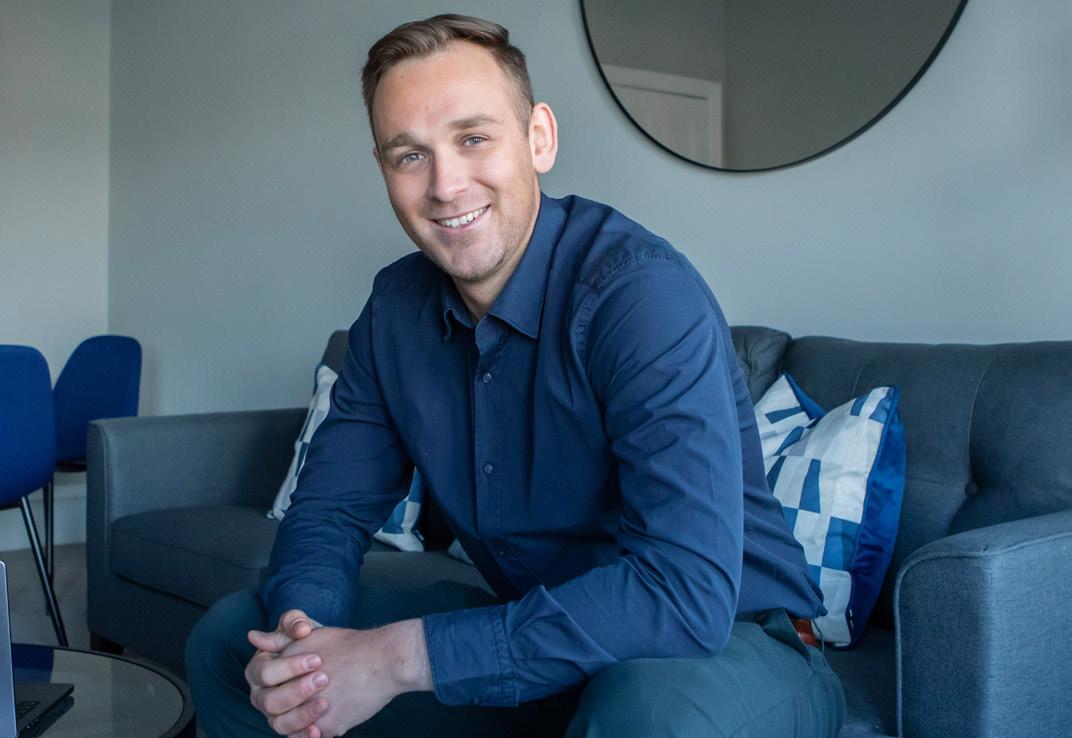
The £3m valued challenger brand – described as ‘Starling Bank for the broadband industry’ – features app-based technology specifically designed for full-fibre networks that enables users to run their entire broadband service from their mobile phone or tablet device.
Brillband CEO, Duncan Di Biase comments on the announcement: “Brillband’s technology is what sets us apart. To our knowledge it’s a world-first – nobody else has it or can copy it – and its beauty lies in its simplicity. It removes the obstacles that so many people associate with broadband providers, but it’s only there when people need it. It takes the friction out of broadband.”
LABOUR TURNOVER IN 2021 HIGHEST IN NOT-FOR-PROFIT SECTOR
According to an analysis of labour turnover between January 2021 and January 2022 by Cendex, part of XpertHR, the total labour turnover of all companies surveyed stood at 14.4%, whilst voluntary labour turnover was at 9.5%. Organisations in the not-for-profit sector saw much higher rates of staff moves with a total labour turnover of 18.1%, and a voluntary labour turnover of 12.5%, the highest of all sectors surveyed.
For those private sector companies, the voluntary turnover rate was 8.7%, with a total labour turnover rate of 11.7%. Within the public services sector, there was a higher level of employee departures, with a total labour turnover rate of 15.6% and a voluntary labour turnover rate of 8.8%.

June/July 20224 NEWS
71% OF UK WORKERS SAY WORK-FROM-HOME PLATFORMS CAUSE DISTRACTIONS AND MISTAKES
New research reveals that the overuse of collaboration tools like Teams and Zoom during the pandemic has led UK workers to make more mistakes, with younger age workers reporting these tools make them feel disengaged from their company and colleagues.

The survey of over 1,323 British workers, conducted by Kantar Research and commissioned by Sapphire Systems, reveals workers want employers to invest in helping them work faster, smarter, and simpler. The result could improve productivity, morale, creativity, and company loyalty.
Chris Gabriel, Chief Strategy Officer at Sapphire, said: “With British companies already facing a perfect storm of the Great Resignation, a skills shortage, and an inflation crisis, this survey shows that workers want their company to help them reduce the confusion, exclusion, and mistakes, all of which is diluting productivity and causing frustration.

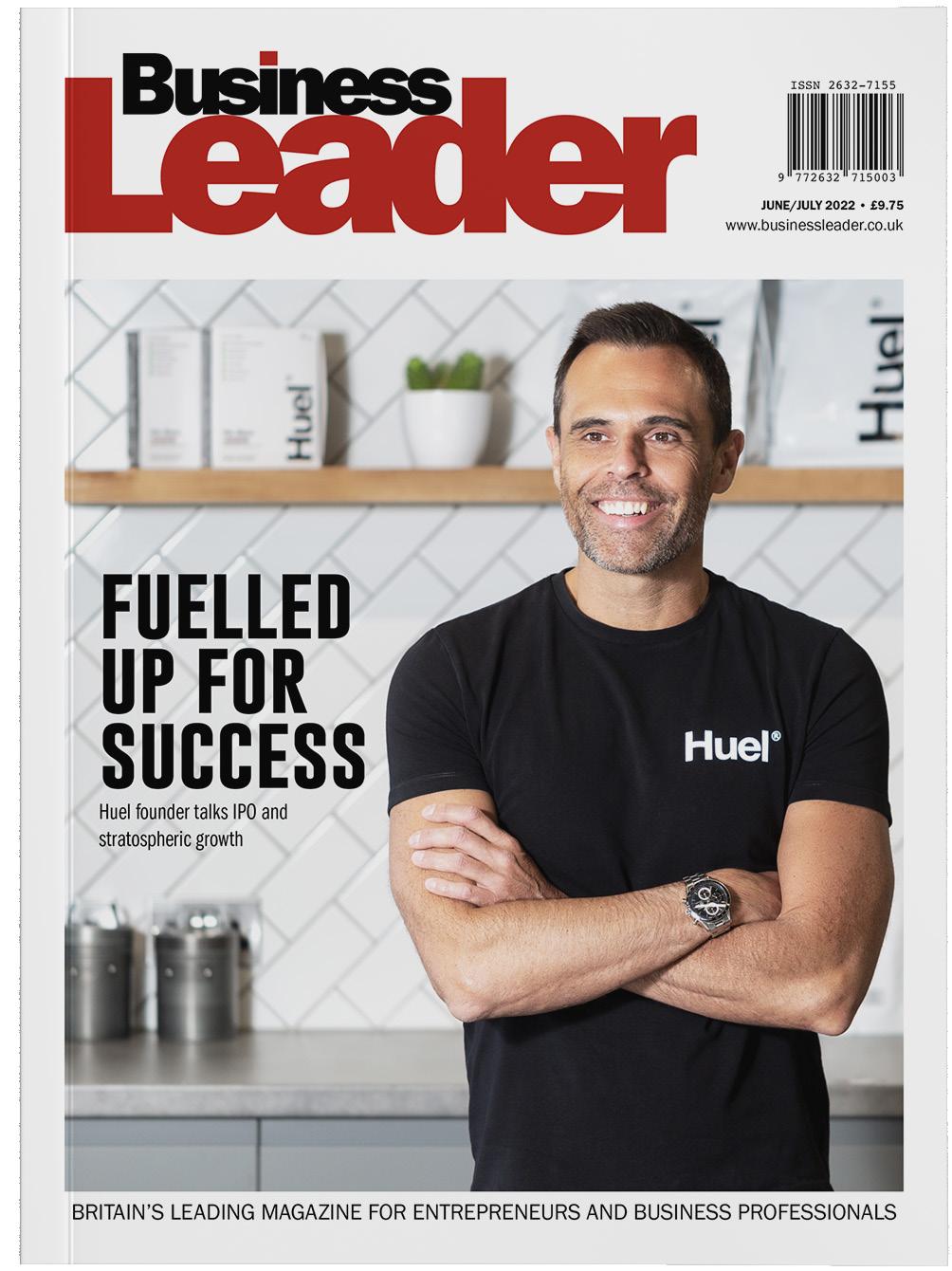
“They want to work faster and smarter, with one-in-five already asking to be given personal digital robotic assistants to automate repetitive day-to-day tasks. It is clear, workers want more investment in the tools that take them forward faster into a new era of digital productivity.”

Business Leader - Inspire • Inform • Connect 5 NEWS
the uk's voice for business NOW, MORE THAN EVER, YOU CAN’T AFFORD TO HIBERNATE How can you communicate with the Business Leader audience? • Bi-monthly national print magazines • Industry-leading live, online events • Sector-focused roundtable events • Digital packages built around you • Daily/weekly news emails Receive your copy of Business Leader Magazine at home Sign up to our weekly newsletter View our Digital edition To find out more about our audience and how you can connect with it, call 020 3096 0020 or email editor@businessleader.co.uk to talk to our team or request a media pack. www.businessleader.co.uk
NESPRESSO ACHIEVES B CORP CERTIFICATION
INHERITANCE TAX RECEIPTS UP BY £0.7BN YEAR-ON-YEAR, HMRC DATA SHOWS

New HMRC data shows that IHT (Inheritance Tax) receipts for April 2021 to March 2022 were £6.1bn – £0.7bn higher than the same period a year earlier.
HMRC expressed that it expected a larger amount of receipts due to ‘higher volumes of wealth transfers that took place during the Covid-19 pandemic.’
The data also showed that receipts were higher from VAT, income tax, capital gains tax and National Insurance Contributions, corporation tax, stamp taxes and hydrocarbon oils.
The report also showed that cash receipts were higher from VAT by
£55.6bn, particularly because of the VAT payment deferment policy.
Julia Rosenbloom, Tax Partner at Tilney Smith & Williamson, comments: “The latest reported year-on-year rise in IHT collections will be welcomed by the Treasury that needs every pound it can get at the moment to pay for the government’s ambitious spending commitments against a backdrop of ongoing global uncertainty.
“Given that the Office for Budget Responsibility recently forecasted that the Treasury will receive £37bn in IHT payments over the next five years, now is the time for families to take action and look carefully at their tax planning.”
Nespresso has announced its certification as a B Corp. The brand joins a movement of more than 700 purpose-led UK and ROI businesses and 4,900 around the world, verified by B Lab to meet high standards of social and environmental responsibility, accountability, and transparency –including Patagonia and The Body Shop.
Guillaume Le Cunff, Nespresso CEO, said: “B Corp™ Certification reflects a 30-year Nespresso commitment to sustainability, transparency and responsible business.
“We are immensely proud to be joining a community of like minds who share our belief that profit and purpose go hand-in-hand. This certification brings added value for our customers and affirms to Nespresso fans that their favourite coffee brand is doing business the right way.”

SMES INCREASINGLY LOOKING AT TIKTOK TO MARKET PRODUCTS

Small businesses are increasingly looking to TikTok to build their sales, according to Iwoca’s ‘top online channels for small businesses’ list.
The findings reveal that one-in-ten business owners under the age of 44 now use TikTok, doubling since pre-pandemic, when just 5% used the platform. However, only 1% of small business owners over the age of 44 currently use TikTok for their business. The growing popularity of TikTok as a channel for small businesses to market their products and services reflects the growing number of people on the platform, with over 13 million active TikTok users in the UK.
Use of social media channels by small business owners also grew over the pandemic, with a 14-percentage point increase in owners deploying Facebook, Instagram and TikTok to market their products and services.
June/July 20226 NEWS
Why some CEOs go further and higher
As a business leader, you know that the hardest climb isn’t Kilimanjaro, Denali or Everest. It ’s the CEO ’s leadership journey, and it ’s fraught with all kinds of challenges and opportunities, setbacks and advances. The good news is you don’t have to go it alone. You can travel with an experienced guide who knows the lay of the land and an elite team of peers who’ve got your back.
You can equip yourself with world-class resources to navigate changing environments and uncertain conditions. You can take an approach forged over 60 years and travelled by 100,000+ CEOs of small and medium sized businesses around the world.
With that kind of support, how high could you ascend?
If you’re ready for the climb of a lifetime, the path starts here. Learn more at vistage.co.uk

CEO Climbers Wanted


Join a team of peak performers and take your business and your leadership to a whole new level. Start with your FREE guide: Journey to the Summit The CEO’s 7 Laws of Leadership Visit vistage.co.uk/what-is-the-climb/
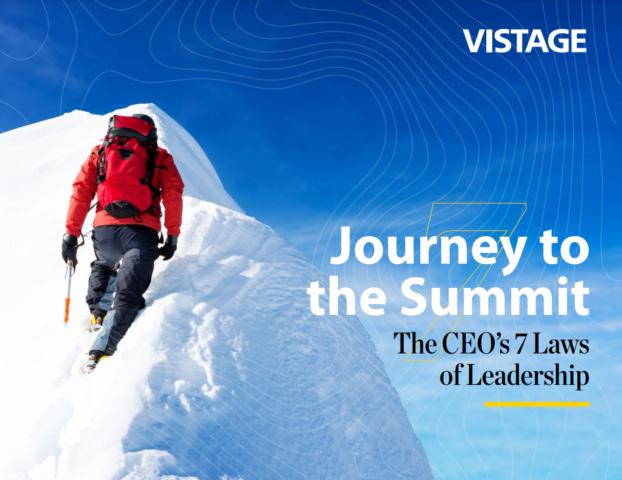
HARROGATE-BASED EXTREME WINS PITCH TO HANDLE MARKETING FOR ICONIC HENRY VACUUM
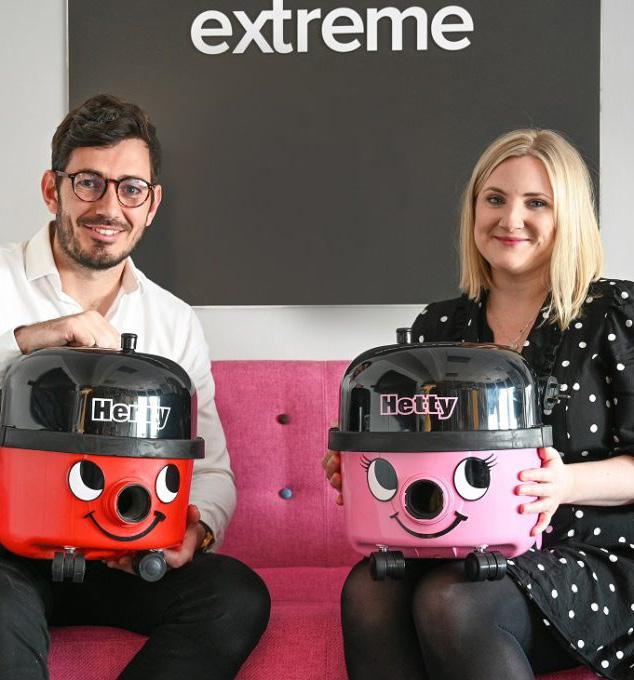
Yorkshire-based digital marketing agency
Extreme has won a competitive pitch to handle marketing for Numatic International’s iconic Henry vacuum brand.
The full-service team has been retained to focus on Henry’s Search Engine Optimisation, Pay Per Click and Paid Social Advertising. The marketing brief was shaped by the brand’s desire to build on demand for its Henry products. Henry, which is manufactured by Numatic International, is a household name proudly built, tested and packed in the UK since 1981.
Extreme’s multi-award-winning team is based in Harrogate and has worked with a range of B2B and B2C local, national and international brands including Severfield plc, Nisa, Lovat Parks, Black Sheep Brewery, Glorious!, Kura Organics and many more.
Andrew Ernill, Head of Marketing and Communications at Numatic International said: “We are excited to be working with Extreme to grow and evolve our eCommerce platforms in order to provide the best service for our customers.”
James Brunyard, Client Services Director at Extreme said: “We’re really excited to have the chance to work with such a legendary brand. Henry is an icon and one we’re all familiar with, so our team is revelling in the opportunity to help get these products in front of new audiences in a variety of creative ways.”
BRISTOL-BASED SPECIALIST RECRUITMENT FIRM TANDEM TALENT REPORTS POST-PANDEMIC GROWTH
A Bristol-based firm specialising in recruitment for some of the world’s best-known architectural projects has announced significant growth as build programmes return to pre-pandemic levels.
Tandem Talent was founded by Dan Huckle and Sam Jenkinson to bring a new kind of in-house agency approach to the built environment, IT and retail sectors. The business has scaled quickly since it was formed in
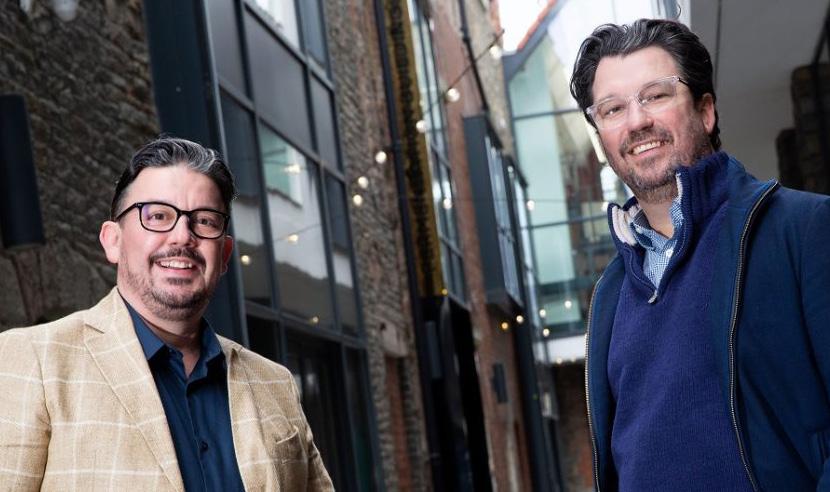
WHEN IN ROME LAUNCHES WORLD’S FIRST PAPER WINE BOTTLE
Alt-format wine specialist When in Rome has announced its latest innovative packaging solution – the paper bottle. The new, sustainable paper bottle has already been selected by Ocado.
“Our paper bottles are made from 94% recycled paper and have a carbon footprint 84% lower than a single-use glass bottle,” explains Rob Malin, Founder of When in Rome.

2020 and now employs seven people. The founders are looking to double this in the next 12 months.
Dan Huckle comments: “As the market has bounced back, so have businesses in this scaleup phase, which is great to see. However, it can be a tricky stage where leaders are still wearing lots of hats, so you need a senior consultancy that truly understands you from the inside out to create the necessary impact.”
“The Frugal Bottle combines all of the eco advantages of our bagin-box format with the obvious advantage that it has the same shape, capacity and price point of other premium brands still being sold in single-use glass bottles.”
June/July 20228 NEWS
(L-R) Dan Huckle and Sam Jenkinson Founders, Tandem Talent
Convenience shop chain McColl’s was set to go into administration, but Morrisons has won a battle to rescue the company after beating a rival offer for McColl’s from the EG Group.
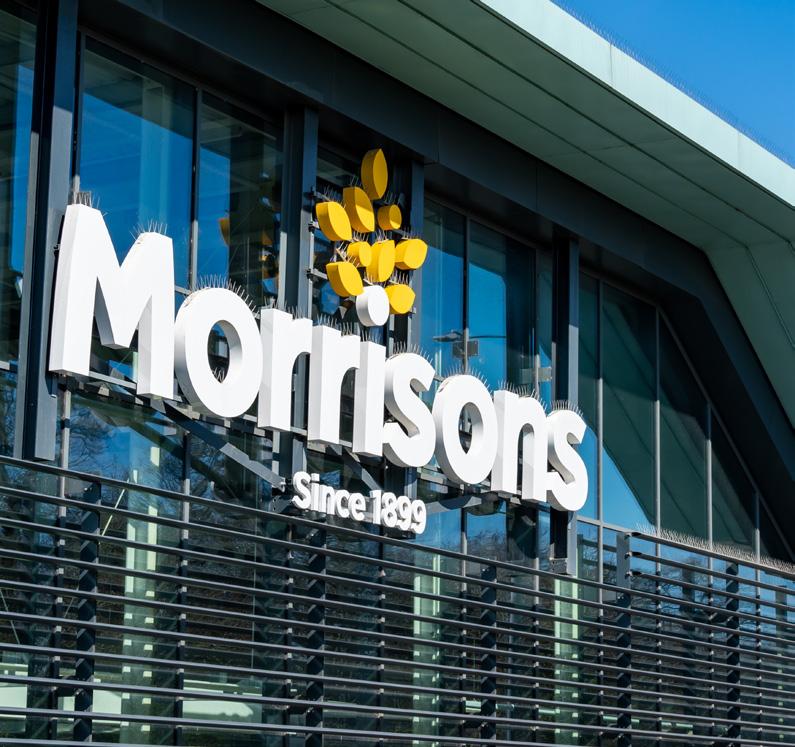
Retail expert from the University of Salford Business School, Dr Gordon Fletcher, explains: “As a decision about the future of McColl’s bounced around different board rooms, the drip-feed of information also provided a slow unwrapping about the state of the UK high street.
“What remains is a question about the sustainability of the UK supermarket and convenience sector. The trajectory towards too many, too large stores and too few smaller convenience retailers is not a game that can be won on an inevitable downward spiral towards the lowest price point. If this current model of retailing continues, there will be further failures.
“However, the acquisition adds value to Morrisons for its owners and could provide a new spark of life to the Morrisons Daily brand.” Dr Fletcher continues. “The deal makes even more sense when the alternative prospect of decoupling Morrison’s wholesale agreement with McColl’s and rearranging the McColl’s management of Morrison’s Daily would have been potentially messy and expensive.
The pre-pack administration also sorts out McColl’s debt and continues to support the existing pension – something EG Group was reportedly more reluctant to pick up.”
The following sentence may be a little uncomfortable for many business leaders and marketers to digest, so here goes:
Your name – brand – no longer commands your customers attention in the way it once did pre-March 2020. Rather, they place greater value on those product and service providers who are operating their businesses along more sustainable lines and positively contributing to society.
Paul MacKenzie-Cummins Managing Director, Clearly

However, there has been a spate of businesses publicly called out in the media (and rightly so) for making false claims about their so-called green and purpose-led agendas. The reputation of those businesses found guilty of green-washing and purpose-washing will take a beating.
But what frustrates me most is that their actions are suffocating those of the many businesses who are doing remarkable things for people and the planet. Indeed, we are seeing an increase in the number of businesses who are keeping quiet about how they have become more environmentally and societally responsible. The reason for this is fear that their customers, competitors, or even the media might accuse them of using sustainability to gain a competitive advantage by tapping into the growing consciousness of today’s customers.
This makes sense, but it is not an obstacle that cannot be navigated. Customers are increasingly being drawn to those businesses who are giving more than they take To win favour and credibility businesses now need to back up their claims through what we call Responsible Reporting Communications.
This is an extension to your existing communications and public relations strategy in that Responsible Reporting conveys everything that the business has done, is doing, and plans to do when it comes to people and planet.
More important, it demonstrates the impact these initiatives have, whether it is reducing the company’s carbon consumption through a new waste reduction programme or boosting youth unemployment in the local area by providing paid internships, for example.
Responsible Reporting is set to become just as important as financial performance reporting. There will be no hiding from this, consumer and client demand will necessitate it.
Business Leader - Inspire • Inform • Connect 9 NEWS
COMMENT IS FEAR SILENCING YOUR ESG INITIATIVES?
T: 0333 207 9477 clearlypr.co.uk If your business has something to say, let us communicate it clearly for you. paul@clearlypr.co.uk WHAT DOES MORRISONS’ RESCUE OF MCCOLL’S MEAN FOR THE RETAIL SECTOR?
CREATING ONE OF THE UK’S FASTEST GROWING BUSINESSES
BUSINESS LEADER MET WITH HUEL FOUNDER JULIAN HEARN
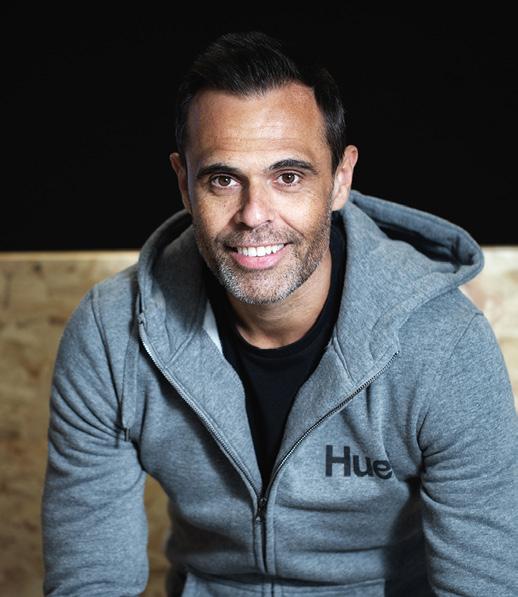
WHO IS JULIAN HEARN?
I’m the Founder and CMO (Chief Marketing Officer) of Huel. I built my first company (Mash up Media) from scratch as the sole founder with a £1,500 investment. Within three years
Mash up Media was making over £2.5m profit per year, and I successfully sold it to Internetbrands in 2011.
I’m now the Founder of Huel, which I bootstrapped to over £40m in revenue and a valuation of £220m within four years of launch. We’ve just completed our fifth year in which we generated £72m rev + EBITDA profitable.
• 1972: Born in Buckinghamshire, England
• 1988: Left school at 16 with virtually no qualifications (two Es at English, my forte)
• 1988: Worked in a shop for a year
• 1989: Worked as a labourer - dug holes in the road for two years
• 1991: Girlfriend said I was too bright to dig holes, so went back to college
• 1993: Passed college with distinction, couldn’t get a job, so went to uni
• 1996: Left uni with a 2:1
97-08: Worked my way up the marketing ladder to Head of Marketing (Starbucks, Tesco, Waitrose, MFI, Emap, etc.)
• 2008: Started my first company with a £1,500 personal investment
• 2011: Sold Mash up Media to Internetbrands for a multiple of the £2.5m annual profit it was generating in its third year
• 2012: Launched next business, Bodyhack
• 2013: Paused Bodyhack and started work on Huel
• 2015: On 17th June, Huel was launched from my garage
• 2018: After bootstrapping Huel to £40m annual run rate, we took £20m investment from Highland Europe, valuing the company at £220m
WHY DID YOU CREATE HUEL?
I wanted to create something I was proud of.

My first business was a cash generator. It solved my objective at the time to make my family financially secure, but it wasn’t a business I was proud of.
Huel is completely different; money wasn’t the objective. Sure, the lifeblood of a business is money, but Huel is so much more than that. Even if it were a tenth of the size, I would still be into it just as much.
I wanted to create a business that did the right thing for the planet, for its staff, and most importantly, for its customers.
I wanted to create a brand that people would be proud to be associated with.
DID YOU ALWAYS WANT TO BE AN ENTREPRENEUR?
Entrepreneurs and start-ups are considered trendy today, but it wasn’t like that when I was starting my career. I left school with no qualifications and worked in a shop and as a labourer, but I didn’t think ‘I want to be an entrepreneur’.
I didn’t even know what the word ‘entrepreneur’ meant and there certainly wasn’t a culture around people wanting to be one, like there is today. Obviously, people were entrepreneurs in those days, and they did start businesses, but there was much less of a conversation around it.
COVER STORY
•
“I WANTED TO CREATE A BUSINESS THAT DID THE RIGHT THING FOR THE PLANET, FOR ITS STAFF, AND MOST IMPORTANTLY, FOR ITS CUSTOMERS.”
DO YOU FEEL THAT THE WORD ENTREPRENEUR HAS BEEN STRETCHED TOO THIN AND LOST ITS TRUE MEANING?
Yes, I think it has. It has become a cool thing to say and even if somebody has the tiniest business, you call yourself an entrepreneur. I often think people do it because they have heard other people say that they are. Being an entrepreneur means trying to solve a problem and finding market fit by creating a profitable business, that you may exit and then start another business.
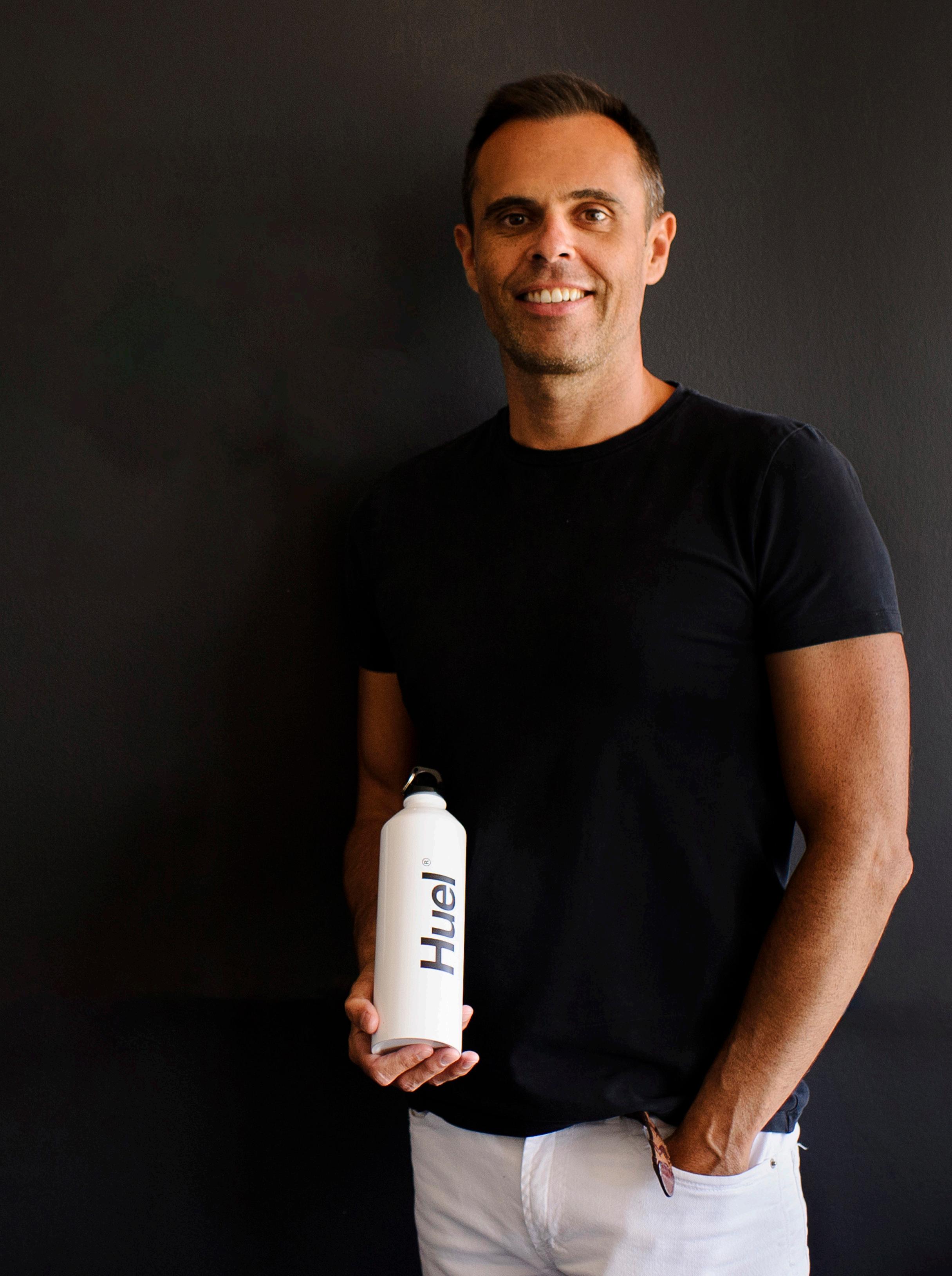
DO YOU THINK IT IS AN ADVANTAGE FOR ENTREPRENEURS NOT TO DO WELL AT SCHOOL?
To be an entrepreneur, you must be a certain type of person. I think sometimes that means that you may be a bad employee or student. I always thought I was okay as an employee, but I didn’t always follow the rules. I didn’t always respect the people who were in charge of it, and I always felt they should approach things in a different way and that meant conflicts.
That tells you that you should be going it alone because you can see your own path, rather than follow somebody else’s instructions. I think sometimes the best employees will follow the instructions to the letter and do as they’re told, and I wasn’t always doing as I was told.
JULIAN HEARN
Cont.
It’s very easy for me to argue that schools and curriculums are out of date, but they work for some, just not for all, entrepreneurs because being a success in business often requires a different mindset.
At school, they’re teaching you stuff that you think I’m never going to use this today. I’ll leave school, I’m never ever going to use this stuff again. So, why are you telling me so you can get a bit disillusioned with it?
WHEN DID YOU FIRST HAVE THE IDEA FOR HUEL?

I had a previous business called Bodyhack but it wasn’t getting enough traction, and the feedback from the users were that this business is too hard to follow and I don’t have enough time in my day to cook and weigh all my food from scratch, so I saw that there was a problem to solve. It was a problem I was facing too, and this is how Huel was first born.
The starting point for the business was ‘How do I solve this problem rather than how do I make money?’ because the latter is a terrible place to start. You need to start with how can I solve a problem in the world and create enough interest in buying that solution.
It was one of those ideas that once you get it in your head, it keeps going and you can’t shake it off. I think sometimes they’re the best ideas because you are always thinking about it, and you don’t forget about it. I was riffing on the same idea, and it has grown from this.
WERE YOU THE FIRST TO DEVELOP A FAST-GROWTH MEAL REPLACEMENT BRAND?
I don’t like the term meal replacement and I think it’s a category that is a bit old and dusty. Huel is nutritionally complete food, and it certainly wasn’t something new because the native Indians of America had a product around 200 years ago where they would blend berries, fats and nuts and squeeze it into a nutritionally complete product. When they went on long trips, they would carry that with them.
Moving forward into the 70s and 80s, there were more powdery products, which were close to being nutritionally complete, but there needed to be a more modern approach that gave the body all the essential nutrients that it needs and in a single product. A year into scoping out the product, I came across some that were on the market in Europe and there was one in
America, but when I launched, there was nothing like this in the UK.
WHAT HAS DRIVEN THAT SUCCESS IN YOUR OPINION?
Well, as mentioned I think we have clearly achieved something that is product-market fit and I feel we also have a very good product. I also feel that being a direct-toconsumer (DTC) product has allowed us to scale very fast. If you compare us with successful food and drink brands like Red Bull, Fevertree or Innocent Drinks, we have done very well because we will achieve £103m revenue in our sixth year, whereas these brands were much smaller at this point. We also have a healthy EBITDA, so this gives you an idea of our success.
I think the reason that their growth was slower compared to ours was that we were DTC and we were also operating in multiple countries very early, whereas it is a much slower burn when it comes to retail, until you get to full distribution and the big numbers.
That combination of satisfying latent demand, being international and being DTC was a recipe for success. We have also executed very well in terms of our customer service, and we have been innovative in terms of new products and finding new customers.
I AM GUESSING THAT BEING A DTC BUSINESS MEANS THAT YOU CAN TRACK AND FIND NEW CUSTOMERS?
Yes, when you are utilising online channels, it is very trackable and very measurable and, therefore, it is very easy to optimise. If you’re an online business, you must rely on the retailer pushing your product and giving you the right shelf space. Or you need to invest in outdoor advertising or television and that can be difficult to track and optimise.
YOU CALL YOURSELF THE ‘CMO SLASH FOUNDER’? YOU CLEARLY VALUE THE IMPORTANCE OF MARKETING?
I get frustrated as a marketing person that a lot of businesses are run by finance people. I don’t think finance always generates sales. I don’t think finance makes customers happy. And I think marketers have a mindset, which is based around the questions ‘How do I make a customer happy?’ and ‘How do I tell this customer that this product exists?’ I think that this should be the driving force of any business.
June/July 202212 COVER STORY
“I THINK WE HAVE CLEARLY ACHIEVED SOMETHING THAT IS PRODUCT-MARKET FIT AND I FEEL WE ALSO HAVE A VERY GOOD PRODUCT. I ALSO FEEL THAT BEING A DIRECT-TO-CONSUMER (DTC) PRODUCT HAS ALLOWED US TO SCALE VERY FAST.”
If you look at the most valuable business in the world, it is probably Apple and it was driven by a marketing person, and Elon Musk, although an engineer by trade, understands marketing and is very good at it.
My view is that a business should be driven by the Chief Marketing Officer (CMO), not the Chief Financial Officer (CFO). The latter can lead to cost cutting and they are often not customer-first.
WHERE DO YOU STAND IN REGARD TO INVESTING IN YOUR PERSONAL BRAND?
I’m a person who doesn’t particularly like the limelight, so I don’t like doing public speaking. I don’t really like to stand up and do speeches at work and I’m not really a person who’s mad keen on social media. So, I feel a bit bad sometimes because I don’t arguably do enough of it. And I’ve seen other businesses where they’ve been very successful with the founder being this almost, you know, sort of showman or someone who really can bring attention to a business.

YOU ARE POTENTIALLY LOOKING TO IPO AT SOME POINT. CAN YOU TELL US ABOUT THAT, AND WHY YOU WANT TO DO THAT?
A company called Highland Europe invested £20m in 2018 and everybody within the business has share options, which means that they are invested in the company. I like the idea of that, and I think it’s motivating for recruitment and retention. So, there must be some sort of exit event at some point for people to realise those investments.
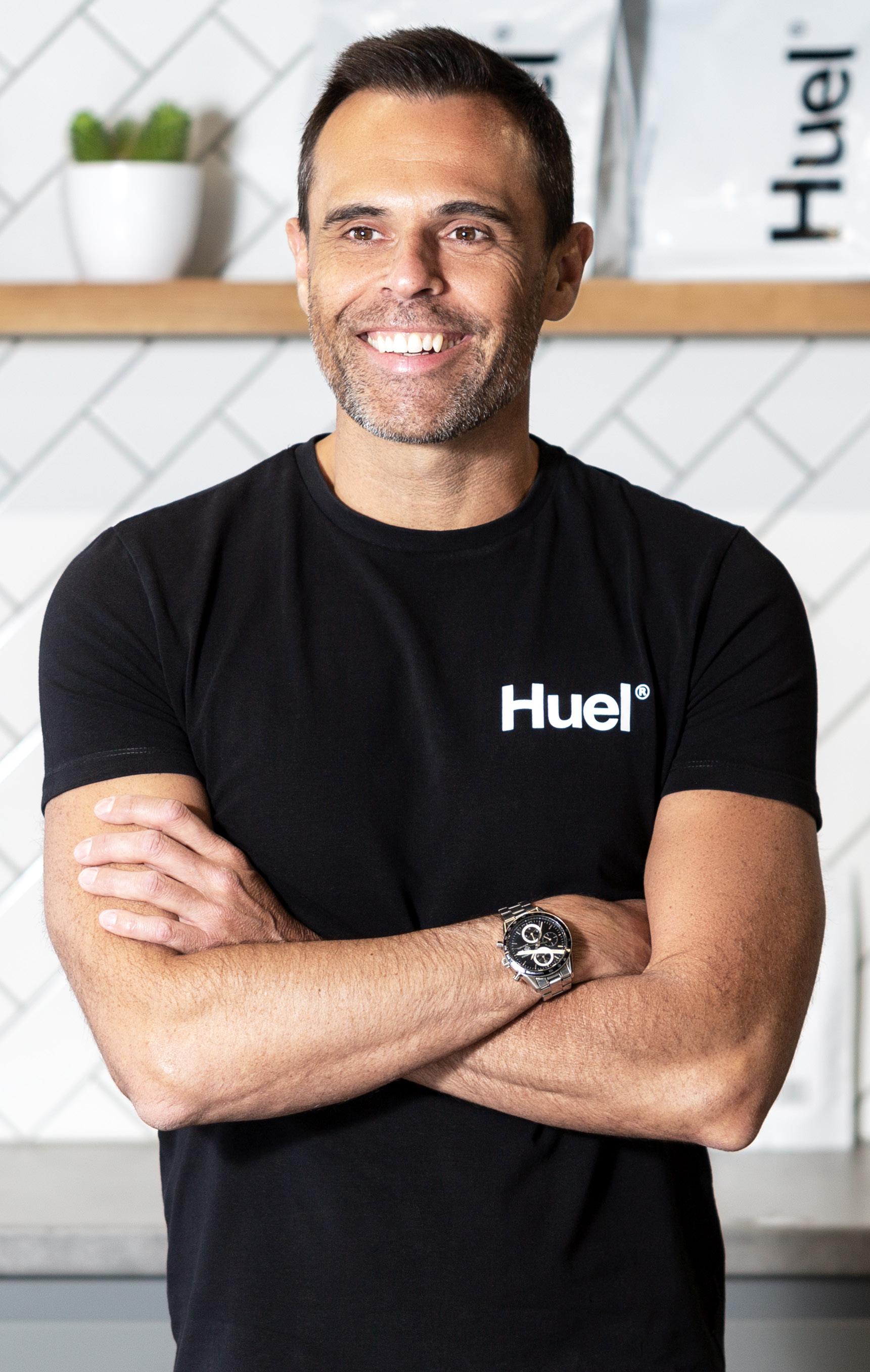
The options on the table are to sell to trade parent or to go it alone forever and be like Mars and try to stay private and release dividends at some point. For me though, an IPO works best because I certainly wouldn’t want to sell it to someone who wouldn’t love it enough, would under resource it and not ensure it reaches its full potential.
A listing makes most sense to me now because you have more control over your destiny, and when I look at the greatest businesses in the world, they are listed.
Business Leader - Inspire • Inform • Connect 13 JULIAN HEARN
Cont.
“I’M A PERSON WHO DOESN’T PARTICULARLY LIKE THE LIMELIGHT, SO I DON’T LIKE DOING PUBLIC SPEAKING. I DON’T REALLY LIKE TO STAND UP AND DO SPEECHES AT WORK AND I’M NOT REALLY A PERSON WHO’S MAD KEEN ON SOCIAL MEDIA.”
REGARDING EMPLOYMENT, WHERE DO YOU FEEL HUEL WILL BE IN THE NEXT COUPLE OF YEARS?

It is difficult to know because we have recruited over 100 people during lockdown, and I think we need to slow recruitment down a little bit and settle those people into the business and let them get up-to-speed.
When you bring a huge number of people in, it can be difficult to keep both the pace of the business and to keep culture and unity.
WITH SO MANY PEOPLE JOINING THE BUSINESS, HAVE YOU EVER BEEN WORRIED ABOUT THE CULTURE OF THE COMPANY BEING WATERED DOWN?
No, not really, because I think we’ve got very good processes in place that ensure we retain a strong culture. I still interview near enough everybody who joins the business and if I can’t make an interview, which is quite rare, then the CEO will do my job for me.
We have a very long and clear recruitment process – if the person joining doesn’t align with our culture, they don’t join the business. We have a high bar which ensures we very rarely make mistakes, and we typically will hire the right person.
HOW HAS YOUR APPROACH TO PRODUCTIVITY CHANGED AS THE BUSINESS HAS GROWN?
It has changed over time and in the first few years I was working crazy hours, but more recently, I have reduced my hours to four days a week and I have developed more of a work-life balance.
DO YOU OPERATE WORK FROM HOME OR IN THE OFFICE? OR IS IT MORE FLEXIBLE?
For me, working in the office is the best solution, but of course, it is important to offer some flexibility. However, I generally like to engage face-to-face. We would lose staff if we made people work in the office all the time because some people are used to working from home now, so we’ve switched to three days in the office and two days from home. I feel that if you don’t spend time in the office, it is harder to build a culture and people miss out on conversations or moments that they will benefit
top tips for success
START – Without action you have zero chance. Reading, researching, planning and talking can be useful but they are NOT starting. Take real action, get a product out in the market asap, so you can learn from real customers.
WORK YOUR ARSE OFF – There are no shortcuts. Being successful is going to take a lot of work. You want to do every job in the business for the first six months at least, so you can teach the next person how to do it the way you want it done. You will need to become obsessed for a certain period of time.
MAKE CUSTOMERS HAPPY – Understand what customers want, talk to them, be a customer, engage on social media. Then give them what they want.
CREATE A POWERFUL AND ENDURING MISSION – A clear and concise mission should be your north star. It aligns the whole company to move in the same direction.
CREATE A BRAND PEOPLE LOVE TO BE ASSOCIATED WITH – The late Steve Jobs said: “People buy brands, not products.” So, make sure you create a strong brand. Be proud of what you do and really care about every detail.
REMEMBER, BRAND IS EVERY TOUCH POINT – The product, the look and feel, the way you speak to customers, the delivery box, emails, website, adverts, etc.
SPEED WINS – Learn how to get stuff done as quickly as possible, set short deadlines, hustle. You are in a competitive race, so aim to work faster and smarter.
DON’T BE AFRAID TO FAIL – Everyone fails, Huel is not my first company but it’s my most successful. Why? I’ve learnt along the way by failing.
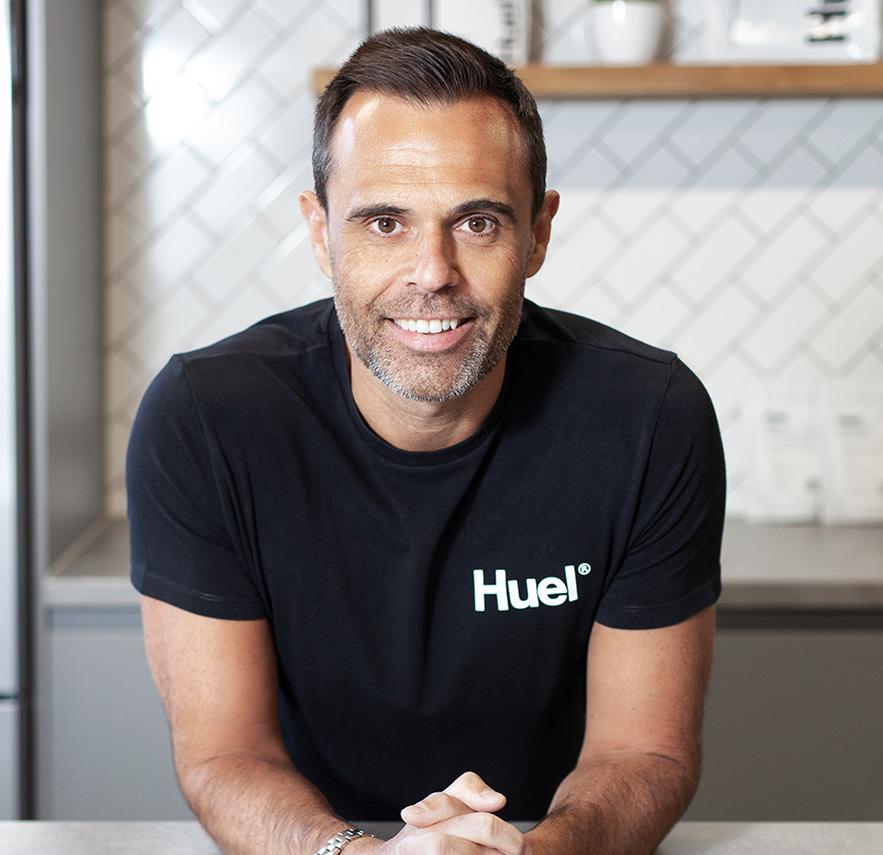
GO AROUND, OVER, UNDER OR STRAIGHT THROUGH BARRIERS – There will be a new problem every day. You are marking a new path, so you need to solve problems and get past new barriers every day. Learn to be creative and don’t take no for an answer.
ENSURE YOU HAVE A POWERFUL AND LASTING MOTIVATOR – Startups are hard, they can take a toll on your health, your friendships, and your relationships. So, if you don’t have a burning motivator inside, you will struggle to last the distance.
CREATE A STRONG CULTURE – Without a great team you can’t make a great company. You need to create a culture where the best people want to work. I recommend writing down a culture document as early as you can. Outline what your DNA is and how you want the team to behave.
NEVER REST ON YOUR LAURELS – Your competitors will improve, so you need to improve to stay ahead. Too often companies slow down and stop innovating. Stay hungry, keep pushing, keep innovating. Otherwise, another brand will steal your lunch.
June/July 202214
from. COVER STORY JULIAN HEARN
CAN I GIVE MY EMPLOYEES SUPPORT WITH THEIR BILLS?
The average family has seen a £693 increase in their energy bills each year.
this to rapidly growing food and fuel prices, as well as a 7% inflation rate, and the issue becomes clear.
you, as an employer, choose to support teams financially,
do you need to
TAX BANDS
Clare Bowen Director, Monahans

Extra finances for employees can be arranged to be paid net via payroll. However, a note of caution as this could be significant for someone on higher rate tax.
For example, if you wanted to add an extra £100 into an employee’s pay packet, £125 would have to be given for net pay after tax deducted to still amount to £100, if in the 20% tax bracket. However, for any employee who earns within the 40% tax bracket, employers would have to give approximately £170. Not only must caution be exercised, but employers must consider if this is fair.
INDIVIDUAL IMPLICATIONS
Employers must think carefully about what individual consequences may occur if a salary increase is given. For example, if an employee receives child benefit, then this is theirs to keep if they earn less than £50,000 per year. However, if additional income bolsters their salary to over £50,000, this makes them liable to pay back £1 for every £2 they go over the threshold.
TAX-FREE OPTIONS
Perhaps direct salary support is not an option for your company, but there are other support mechanisms that can be put in place which are tax-free. For example, vouchers for goods such as food, clothes and experiences can be a taxfree benefit, as can childcare support.
If you would like to discuss how you can best support your team during this difficult period, please contact our friendly team.
Business Leader - Inspire • Inform • Connect 15 ADVERTORIAL Monahans June 2022 BL Ad Outlined.indd 1 18/05/2022 17:33 COMMENT T: 01225 472800 www.monahans.co.uk
Add
If
what
consider?
are we set for another record year of m&a activity in the uk?
For its latest quarterly mergers and acquisitions review, Business Leader spoke to some leading people in the space to get their views on buy and build strategies, current trends and whether we’re on course for another record year.
WHAT ARE THE KEY TRENDS YOU ARE SEEING WHEN IT COMES TO MERGERS AND ACQUISITIONS?
Jason Varney, Corporate M&A Lawyer at Thomson Snell & Passmore: “One key trend we are witnessing when it comes to M&A activity post-Covid is that shareholders of manager-owned businesses are increasingly being asked to roll some of their equity and stay on as minority shareholders to support the new purchaser of the business (instead of fully exiting the business on day one).
June/July 202216 MERGERS AND ACQUISITIONS
“This is partly to help the purchaser retain a level of expertise and experience within the business, but it also helps reduce risk for both sides. As the seller will continue to have a stake in the company’s success, they are more likely to ensure it is in the best possible shape prior to the sale.
“Another trend we are seeing is the increasing popularity of warranty and indemnity insurance as part of transactions.
“Historically, it was quite rare to seek this type of insurance, given the high premiums, but we now see it being used in most of our larger deals given the current lower premiums (as a result of the additional competition in the W&I insurance market).”
Mark Clephan, North Corporate Finance Partner, EY: “Throughout the first quarter, consumer-facing businesses have experienced significant challenges linked to understanding demand at a time when the cost of living is rising, dealing with supply chain issues and ongoing geopolitical uncertainty. In turn, this is causing private equity to be more thoughtful when considering businesses which may be adversely affected by consumer spending over the coming year.
“The London IPO market has experienced a difficult start to 2022, again reflecting the current geopolitical and macroeconomic landscape which has ultimately created uncertainty for the future cash flows of businesses looking to float. Compared to the record year in 2021, we have witnessed the market slow in 2022, as signs of capacity within diligence providers appear, which was rare in 2021.
“Although, the market is cyclical, and we will hopefully see a return to a stronger market later in the year. We expect 2022 to be a year of better balance between supply and demand for transactions.”
Joshua Rowe, Head of M&A at Clearcourse: “The technology and software sector has seen a good spring in revenue and new orders. Software solutions continue to be universally sought-after, reminding us that the need to automate and interact digitally remain front of mind for most businesses.
“These priorities are particularly urgent amid a tough labour market and costof-living concerns: research from the Federation of Small Businesses shows that SMEs’ confidence in their growth has declined by around 12% since last year due to direct concerns about these issues.”
“ALTHOUGH, THE MARKET IS CYCLICAL, AND WE WILL HOPEFULLY SEE A RETURN TO A STRONGER MARKET LATER IN THE YEAR. WE EXPECT 2022 TO BE A YEAR OF BETTER BALANCE BETWEEN SUPPLY AND DEMAND FOR TRANSACTIONS.”
Mark Clephan
Rob Starr, Head of M&A, Shaw & Co:
“The market is still seeing a vigorous level of activity; the deals are still happening and haven’t tailed off.
“The main trend, of course, is the toughening economic situation where inflation, rising interest rates, national insurance increases, energy prices, etc. have added further pressure to businesses already trying to pay off their CBILS loans. Consequently, sale prices may begin to fall slightly as the adverse economic headwinds start to kick in. Nevertheless, I still expect them to hold up well for a good business with healthy prospects and a strong offering, although sectors such as retail, consumer and leisure will be more vulnerable.
“It is also important to remember that this is actually a very good time to do a deal as becoming part of a larger entity will help hugely in terms of lightening a cost
base, providing economies of scale and such. This strength in numbers could be vital if the economic situation continues to worsen.”
WILL BUY AND BUILD STRATEGIES CONTINUE TO INCREASE IN POPULARITY?
Varney: “Yes, absolutely. There are generally two main growth strategies a business can take: either slightly slower organic growth or a buy and build strategy.
“Buy and build is particularly attractive now as not only are there a raft of interesting businesses available for sale, perhaps more importantly, it is almost impossible to grow organically if you cannot employee good people. While the employment market is so challenging, buy and build is the only viable option for quick growth.”
Clephan: “Across the market we are witnessing an increasing number of companies adopting a buy and build strategy. Buy and build can create equity value because the platform business can often bring significant synergies to the acquired businesses. This, in turn, drives private equity interest and success, and the continued availability of finance in the market supports private equity investment in those types of equity generation stories.”
Rowe: “As an acquisitive buy-and-build business, the level of competition in our market – small-to-medium technology businesses – feels consistent.
“The merits of buy-and-build strategies (their scalability and recurring revenue) are continually gaining traction. Aside from the momentum of buy-and-build in the US, more global private equity firms are eyeing up Europe, which has very favourable market conditions. In the UK technology sector, we have a mass of ambitious small enterprises and a relative scarcity of big software businesses. This makes it perpetually attractive to ‘fill the gap’ by integrating brands and creating value.”
Starr: “Buy and build strategies have always been ubiquitous in the marketplace but the actual level of consolidation depends on the specific sector or type of business. For example, historically, the dentistry, care homes, funeral homes and veterinary sectors have seen swathes of acquisitions and mergers.
QUARTERLY REPORT
Business Leader - Inspire • Inform • Connect 17
Cont.
“One significant development has been that, while consolidation in these sectors was asset-backed, activity in newer sectors - fuelled by private equity - is being driven by the acquisition of online/digital assets, something which has been hastened by the Covid pandemic.
“This is demonstrated by various B2B online/digital-enabled businesses such as MSPs (Managed Service Providers), which provide IT support, seeking geographical growth, while accounting, recruitment, and HR are also seeing a number of concerted buy and build campaigns.”
MERGER AND ACQUISITION VOLUME IN 2021 WAS THE HIGHEST ON RECORD - ARE YOU ANTICIPATING A RECORD 2022?
Clephan: “2021 benefitted from the strong availability of finance, overseas investment into the UK and potential Capital Gains Tax changes which encouraged entrepreneurs to transact. Together, these factors led to 2021 being an exceptional year for dealmaking, which we would not expect 2022 to exceed.
“Further, 2022 sees specific challenges making that less likely, including strong headwinds because of the war in Ukraine, supply chain issues as a result of the pandemic overhang, high energy and commodity prices, inflationary pressures and associated interest rate rises. We expect to see a healthy market this year, but these factors have the potential to negatively impact certain sectors.”
Rowe: “Speculation is reasonable, considering traded markets sold off significantly this first quarter and
persisting uncertainty around inflation and the Ukraine crisis.
“However, we have seen more engagement than ever from business owners considering a sale or exit. Businesses were tied up with adversity through 2020, while their focus was trained on recovery and progression in 2021. In 2022, teams are beginning to look ahead and weigh up the merits of what a sale might mean for them.
“Importantly, this shift in focus doesn’t always translate into more dealmaking. Those who once made rapid acquisitions are taking a breath and aiming for fewer, bigger deals to reap the most significant financial impact on their top line. As a consequence, we may start to see more realistic valuations.”
Starr: “There was an extraordinary level of pent-up demand in 2021 which resulted in frenetic levels of activity. Economic headwinds such as inflation, rising interest rates, and global political instability will certainly dampen the market in 2022, particularly affecting sectors that are in the consumer and retail space, as disposable income is squeezed. Nevertheless, demand for the best quality, robust businesses will always remain high. There is undoubtedly still plenty of money in the marketplace, so any SME business owner looking to sell or acquire should be bold.”
Andy Denny, Director at specialist sellside advisor BCMS: “It’s hard to predict with certainty, but all the pointers suggest that 2022 should be as good as 2021. We’re still seeing shareholders and ownermanagers of businesses actively exploring their options and succession strategies, as they continue to face some challenging trading headwinds –including
materials and supply chain shortages, the logistics network playing catch-up following the pandemic, and inflation affecting consumer spending.
“Contrast that with the capital available in the market – and some of the high values and deal multiples being paid for businesses – and many owner-managers are acutely aware that now is a good time to pursue a competitive sale process. Additionally, many of our clients recognise that partnering with a larger organisation is the key to taking their business to that next level.”
CAN YOU GIVE A CURRENT ANALYSIS OF THE MARKET - FIRST COUPLE OF QUARTERS - WHAT ARE YOU SEEING? ANY TRENDS?
Denny: “The activity we are seeing at BCMS in 2022 is as good as we have known for many years. We have multiple clients at ‘offer accepted’ stage and a very strong pipeline behind that, where we are meaningfully engaged with a range of potential buyers. We’re typically able to generate a range of competitive offers for our clients’ businesses and are consequently able to get terms on the table that our clients find extremely attractive.
“There are two interesting trends worth noting. In an M&A market where demand for great businesses outstrips supply, the first is the ‘jilted acquirer’. In one project in the tech space – due to complete soon - a number of bidders have expressed their disappointment at previously losing out on a similar acquisition target. Understandably, they are keen not to miss out again, and we believe this is reflected in the formulation of their offers. Pencils are being sharpened!
“The second theme is deal structures that reflect the differing requirements of our owner-manager clients. Deal-making in 2022 is not just about headline price. The right deal for our clients will often hinge on the cultural fit between buyer and seller – an obvious differentiator if one or more shareholders are staying on posttransaction to drive the business forward.
Across all deal types, our clients will typically choose a partner who looks to secure the legacy of the business, build on its current positioning, and deliver tangible future opportunities for loyal staff. Not just the one who offers the most money.”
June/July 202218 MERGERS AND ACQUISITIONS QUARTERLY REPORT

Delivering the best possible future for you and your business www.bcms.com YOUR M&A PARTNER Considering your succession planning and exit options? Talk to someone you can trust BCMS – supporting privately owned businesses since 1989
Independent corporate finance firm Corbett Keeling is helping UK bosses navigate a busy M&A market – and fulfil their dreams
@CorbettKeeling
Like all markets, mergers and acquisitions will have its good days and bad days. And, depending on what side of the deal you are on, that could mean one of two things: there is an abundance of sellers – meaning prices will fall, or there is an abundance of buyers – meaning the price will go up. Usually, someone wins and someone loses.
According to Emma Keeling, Chief Operating Officer at Corbett Keeling, an independent firm with a strong focus on selling UK privately owned companies, what we are seeing now is highly unusual.

“The M&A market we have right now has probably only happened a couple of times over the past 30 years. There are plenty of both sellers and buyers which is cancelling out any advantage the other side may have, but it is making for an extremely busy time.”
Corbett Keeling has been going for 30 years, initially set up by Jim Keeling, whose father and grandfather worked in the same industry. They have an industry high figure of a 90% deal completion rate with 45% average uplift in sale value. They are well placed to talk about the current M&A climate.
Emma explained the reason why there is so much money around for deals at the moment. “The period leading into the pandemic was relatively quiet in the M&A world, then the pandemic hit, Private Equity firms hesitated, both here and abroad, and held money they would have otherwise spent, looking to see how things would pan out.
Emma Keeling COO, Corbett Keeling Corporate Finance
“Business owners spent their time trying to navigate the fluctuations in their specific sectors as lockdowns came and went, supply chains got blocked and rules on what we could and couldn’t do changed.
“As we came out of the pandemic, the Private Equity firms had a war chest that was unusually full with investors actively looking to spend money and business owners thinking about selling.”

INTERVIEW
In 2021 Globalscope, a global group which Corbett Keeling is part of, was involved in selling companies to the tune of more than $8 billion across 226 transactions. That is more than an average of four deals every week and Emma does not see that high rate of sales stopping any time soon.

A recent survey Corbett Keeling conducted of leading Private Equity firms in the UK found that they had billions still to spend. What has made this the perfect storm is that many business owners, having got through the pandemic, have had enough of struggling through and do not want to have to deal with another crisis so are looking to sell, while others have brought forward retirement plans by up to ten years due to the interest – and the price they can now get for their business.
Their appetite to have to negotiate another global disaster, or deal with more supply chain issues – whether that is because of a ship stuck in the Suez Canal or a pandemic, has gone.
Emma added: “At Corbett Keeling, we will only take on a handful of deals each year. This is not because the work is not there, but because we offer a bespoke service. We will sit with you to understand what it is you need and when you need it by.
“There are plenty of issues that we have seen that you may not even have thought about – staff, infrastructure, handover period, introductions, earnouts – the list goes on. But a buyer will want everything sorted before they part with their money and we make sure every single “i” is dotted and every “t” crossed.
“Business owners have realised they are not mortal, have been through the pandemic and they have started to think ‘do I want to go through this again’. If they were thinking of selling in 3-5 years, they have brought that process forward so they can make the most of life.”
Corbett Keeling, which will deal with businesses worth £10m£200m has found that there is no particular sector that is hotter than any other at the moment, they are all seeing a huge uptick in businesses for sale. Private Equity companies, both within the UK and abroad, have billions to spend, as have big trade buyers.
Brexit may have worked in favour of sellers as buyers from abroad want to have a business that is based in Britain and Corbett Keeling is seeing increased interest from Europe and North America.
Harry Knight, Corporate Finance Director, at Corbett Keeling, said: “The cost of living is, without a doubt, rising and, with interest rates going up, you would think this would dampen the market. But we are not seeing a slow down as yet, quite the opposite but who knows how long this will last for if inflation continues to rise.”
While the market is hot, it is tempting for business owners to try to find a buyer, but Emma urges caution. “Often, a seller will have worked for years building up their business, will have staff and clients who have become friends, and selling can fracture these relationships if not handled properly. Whenever you decide to sell, please make sure that you tread carefully and take expert advice.”
“WHAT HAS MADE THIS THE PERFECT STORM IS THAT MANY BUSINESS OWNERS, HAVING GOT THROUGH THE PANDEMIC, HAVE EITHER HAD ENOUGH OF STRUGGLING THROUGH AND DO NOT WANT TO HAVE TO DEAL WITH ANOTHER CRISIS SO ARE LOOKING TO SELL, WHILE OTHERS HAVE BROUGHT FORWARD RETIREMENT PLANS BY UP TO TEN YEARS DUE TO THE INTEREST – AND THE PRICE THEY CAN NOW GET FOR THEIR BUSINESS.”
Emma Keeling is COO to Corbett Keeling Corporate Finance www.corbettkeeling.com
CORBETT KEELING
the business leader deal room
Business Leader highlights a selection of significant deals that have taken place in the last few months.
MANUFACTURING
Corporate Finance advisor BCMS has advised the shareholders of Geotek – a world-leading supplier of instrumentation and services for the analysis of geological cores – on the sale of the business to Judges Scientific plc, a UK group focused on acquiring and developing companies in the scientific instrument sector.
The transaction has a total consideration up to a maximum of £80m, plus excess cash. This is Judges Scientific plc’s largest-ever acquisition, and the first to derive a substantial proportion of revenues from services.
TECHNOLOGY
Tech firms Connectus Business Solutions and KTSL have merged to create the Connectus Group. The businesses and their 60 employees will continue to operate from six UK and Ireland sites and ambitious plans are in place to create further job opportunities across their commercial, delivery and support functions.

FOOD & DRINK
Cook Corporate Solicitors have acted for Agnes Ephraim in the purchase of loose-leaf tea business, Cup of Tea.
Somerset-based Cup of Tea specialise in selling loose leaf tea, tea caddies and tea-related accessories to the trade and consumer markets.
LEGAL
Following a period of considerable growth through the pandemic, Stowe Family Law has made its first acquisition of the well-established London-based family law firm, Chapman Pieri. Stowe saw year-on-year growth of 20% from April 2020-March 2022, whilst their office portfolio increased by 113%, from 22 locations to 47 through the same period.

FINANCE
Carlisle-based wealth management business Fairstone has announced the acquisition of Financial Concepts, extending the group’s footprint across Cumbria. Established in 2000 and specialising in pensions and investments, the acquisition of Financial Concepts brings 10 advisers and staff into the group as well as more than 1,700 clients and more than £135m FUM.
CREATIVE
Wasserman Music has completed an acquisition of Paradigm Music UK’s live music representation business. Wasserman Music launched in April 2021 with the acquisition of Paradigm’s North American live music representation business, and its roster of globally represented artists includes Bastille, Billie Eilish, Disclosure, Drake, Frank Ocean, Liam Gallagher, Louis Tomlinson, Pharrell, and Skrillex.
June/July 202222
DEALS ROUND-UP
the only certainty

Uncertainty is part of life, but the world has changed so rapidly that finding creative ways to keep pace
a huge challenge.
provide ambitious businesses with pragmatic advice to help them adapt and grow.
is change When
is
We
www.ts-p.co.uk 01892 510000 @pragmaticlawyer
The importance of IP due diligence when preparing for sale
HGF is one of the largest intellectual property (IP) firms in Europe, with approximately 200 patent attorneys, trade mark attorneys, IP solicitors and attorneysat-law across 22 offices in seven European countries. With a focus solely on IP and related work, its scale and geographical reach allows the firm to provide a wideranging mix of scientific rigour (all of the firm’s patent attorneys have a first degree in a scientific discipline, many with PhDs and post-doc research experience in their technical field) together with expert knowledge of IP law. The firm also has a group of IP transactional and litigation solicitors who work with the patent and trade mark attorneys to provide a dynamic and complete IP solution.
IP DUE DILIGENCE
IP due diligence is the assessment of the IP risk associated with a transaction, such as the sale and purchase of a business, or financial investment in a business. A typical IP due diligence will review the status and enforceability of IP, ownership, inventorship, freedom to operate, potential or actual third-party challenges, and licensing activities. The degree to which each of these is investigated will vary depending on the nature of the transaction. However, an important step in assisting with an efficient due diligence is to be clear what IP assets are owned or are part of the sale.
Taking an IP inventory and keeping an up-to-date list of IP assets is essential. Some IP rights are registrable, and it may be possible to obtain information on those from public registers. Some registrable rights might not have been published yet and other valuable IP assets such as
trade secrets/know-how are, obviously, not public. Having confidentiality agreements in place with prospective investors or purchasers is important before discussing such assets.
POTENTIAL EFFECT ON SALE
If potential holes in a company’s IP strategy are found in the due diligence review, this can materially affect the sale value of a business, whether a sale or purchase of a business completes, or whether a company can secure investment from private equity or a VC investor, for example, and the terms of that investment. This is why a business in which IP is likely to be a valuable asset, such as a technology-based business, should really nail down its IP strategy at an early stage of its development to ensure that it is aligned with the business plan, particularly where future investment from private equity or a VC is needed or where the exit strategy is trade sale, M&A or an IPO, for example.
The relevance of IP to each transaction or financial investment will vary such that there is no onesize-fits-all approach when it comes to IP due diligence. HGF has developed a bespoke suite of IP due diligence related services, called HGFVenture, which is tailored to each transaction.
The attorneys at HGF like to get to the
heart of a business in order to identify what is the best IP strategy to support the business aims and secure maximum return on investment, and this forms part of the HGFVenture approach. Kerry Rees, a Partner at HGF, would welcome the opportunity to discuss how HGFVenture may benefit your business.
Kerry Rees Partner & Patent Attorney

ADVERTORIAL
June/July 202 Kerry Rees T: 0207 776 5100 Email: krees@hgf.com www.hgf.com

Global Markets in Focus
In this column, my objective is to take the reader around the world to discuss the business, economic, and financial mega-trends which are top-of-mind for executives, investors, and policymakers.

@gregoryperdon
USA
Jerome Powell, the Chair of the Federal Reserve is flexing his interest rate muscles, reaffirming that the central bank is on a mission to tighten policy. What’s the quantum? Another ½ per centage point at each of the next two meetings…
But the trillion-dollar question is whether the Fed can dodge the recessionary bullet as the odds of a soft landing reduce… My take? The Fed is playing catch up – but they won’t go all the way to 3.5% so quickly and will pause before. And that ‘surprise’ will open up opportunities for us as portfolio managers. Everybody thinks you can’t make money investing in fixed income – this, my dear reader, is not true.
What is clear is that Powell is not alone. Other members of the Fed are coming out and telegraphing their support for this intentional tightening of financial conditions as they play catch up to fight off significant
inflationary pressures in the US – so the path is clear.
How will this impact markets? Economists are reducing their forecasts for US growth, such as Goldman, from 2.6% down to 2.4% this year. What about equity strategists? They are recommending to ‘stay invested’ because the labour market is still strong. Okay, they have been ‘long and wrong’ year-to-date, but I suspect they will be
Gregory Perdon Co-Chief Investment Officer Arbuthnot Latham

vindicated eventually as it’s very difficult to have a US recession with such high demand for labour, as evidenced by the vacancy to unemployed ratio (for every unemployed there are 1.9x vacancies – almost double the historical average).
UK
The bad news? Inflation is sky high. The good news? Retail sales unexpectedly rose in April. What was prominent on shopping
COLUMNIST
lists? Supermarkets reported bumper sales of alcohol, which could mean a couple of things: Perhaps we were stocking up for the Jubilee celebration; or maybe we were planning more house parties, as opposed nights out at the pub; or perhaps consumers got depressed after reading too many economic forecasts citing macro headwinds! I am going with option two. But in all seriousness, in the face of the real price pressures, a strong retail sales number is encouraging, especially on the heels of all the doom and gloom we are hearing from policy makers such as Andrew Bailey and his recent comments on food prices.
What does the National Institute of Economic and Social Research have to say on inflation? They believe that the BoE is going to have to hike rates to 2.5% and keep them there until the middle of the decade to bring inflation under control. I’m always a bit sceptical about long-term forecasts but your mind is like a parachute… it works better when open.
In brighter news, house price growth was still circa +10% from a year ago and unemployment fell to its lowest rate in nearly half a century, as the number of job vacancies rose to a new high of 1.3m.
EUROPE
Weaponising energy?! That’s President Putin’s plan as Russia’s state-owned gas supplier has said it will cut shipments
to Europe. This has fuelled one of the biggest questions on European investors’ minds: What happens if there are serious disruptions to energy flow? The cold-hard unwanted response is that growth would falter and energy prices would rise again. And if inflation rises too much then the ECB would need to act by hiking rates more aggressively, which would tighten financial conditions.
Perhaps this is the reason Brussels has sadly given the green light for the EU to burn more coal over the next decade as it tries to wean itself off Russian gas and oil. So much for net zero in the short term which is a real tragedy.
rate setter must maintain current monetary stimulus to create sustainable increases in prices, corporate profits, jobs, and wages. If only it were that simple…
And on the COVID re-opening, Japan intends on relaxing its COVID border restrictions from 1 June by doubling the cap on daily international arrivals which could give a helpful uptick to the economy if the trend continues.
As for China, with special thanks to their zero-COVID policy, the recent economic data has not been brilliant. Retail sales in April shrunk 11% and auto sales plunged almost 50%. But Fixed Asset Investment (FAI)which Beijing is counting on to save the day as exports lose momentum - still rose circa 7% in the first four months.
In addition, more monetary magic seems to be on its way as mortgage rates were just reduced, which might hopefully help the struggling property market.
We have been talking about fiscal and monetary stimulus and it’s starting to come, but we need to remain mindful of the time lag to market.
ASIA
An early exit from QE and the end of easy money in Japan? I doubt it. According to the deputy head of the Bank of Japan, the
Finally, analysts at J.P. Morgan have turned positive on certain Chinese internet stocks – after only a few months ago calling the sector ‘un-investable’. A bear market rally or a phoenix rising? Now that’s a good question.…

GREGORY PERDON
“WHAT DOES THE NATIONAL INSTITUTE OF ECONOMIC AND SOCIAL RESEARCH HAVE TO SAY ON INFLATION? THEY BELIEVE THAT THE BOE IS GOING TO HAVE TO HIKE RATES TO 2.5% AND KEEP THEM THERE UNTIL THE MIDDLE OF THE DECADE TO BRING INFLATION UNDER CONTROL.”
a cost of living crisis:
WHAT DOES INFLATION REALLY MEAN FOR BUSINESSES?
Inflation’ is a word in the minds and mouths of many UK residents and business owners. Continuous lockdowns caused by a global pandemic, increased energy costs, and the war in Ukraine have all had a role to play in the rising cost of goods and services.
Experts are warning that Britain could face the first doubledigit inflation rate for the first time in 40 years. But what is inflation? And how can we expect it to impact UK businesses? Business Leader investigates.
WHAT IS INFLATION?
According to the International Monetary Fund, economic inflation is the measurement of the increased price of goods and services within a year.
We know the rate of inflation because the Office for National Statistics looks at the price of a range of the most commonly used goods and services in the UK – this may include a pint of milk, a loaf of bread, a car, or a holiday.
The overall cost of these items tells us the Consumer Price Index (CPI) for that year. The CPI is then compared to the previous year to find the rate of inflation for that year – this year the rate of inflation has been at 7%, but experts expect this could increase to 10% by the end of 2022.
Inflation happens for a variety of reasons. In this case, the Covid-19 crisis had a major impact on driving up the price of goods and services.
When society re-opened after the pandemic, the demand for goods increased. Some businesses struggled to get products, particularly products from abroad, to their customers – this caused goods to rise in price.
Global factors are also having a major impact on the price of goods in the UK. The pandemic and Brexit had already caused major supply chain issues. Additionally, the price of gas and oil increased, the war in Ukraine caused energy prices to hike further and continued lockdowns in China have made it difficult to import goods to the UK – all these factors have driven up the rate of inflation.
WHAT IS THE GOVERNMENT DOING TO MITIGATE THE IMPACT OF INFLATION?
The government has ambitions to get the rate of inflation down to 2%, but there isn’t much the government can do about external factors abroad impacting the cost of energy and goods.
Despite this, The Bank of England has said there are things they can do to control inflation and bring it back down if it continues to rise.
June/July 202228 FEATURE
Increasing bank interest rates is one way to keep inflation stable. This makes it more expensive to borrow money and encourages the public to save, helping to push inflation down over time.
Although achieving the government’s goal of inflation at 2% isn’t impossible, the country’s central bank has predicted it will take at least two years before we reach this number.
WHICH INDUSTRIES WILL BE IMPACTED THE MOST?
Inflation is likely to impact industries that are more volatile. Consumer-facing businesses, construction and capital goods industries - including tools, machinery, vehicles and computersare likely to feel the impact of inflation too.
As rising costs cause a squeeze on household income, the public is making careful decisions about where they want to spend their money. This has included cutting back on luxury and ‘big-ticket’ spending such as for holidays and cars.
Even streaming-giant Netflix saw a major decrease in its stocks in the first quarter of this year, partly due to a large percentage of paying users opting out of their subscription due to decreased spending money.
“WITH INFLATION NOW FORECAST TO REACH 10% BEFORE THE END OF THE YEAR, ITS IMPACT WILL CONTINUE TO BE PARTICULARLY HARD FELT BY SMALL AND MEDIUMSIZED FIRMS, WHICH LACK THE FINANCIAL LEGROOM TO ABSORB THE COST OF SOARING PRICES.”
Small-to-medium sized businesses will also be impacted at a disproportionate rate as they have fewer financial resources to help them absorb the cost of inflation. Paul Christensen, CEO at Previse feels that the government needs to do more to support businesses.
He comments: “With inflation now forecast to reach 10% before the end of the year, its impact will continue to be particularly hard felt by small and medium-sized firms, which lack the financial legroom to absorb the cost of soaring prices.
“If these businesses are to successfully battle inflation, Westminster must find new ways of tackling the real cash flow problems that they face - like slow payments and difficulty accessing finance.
“Slow and late payments, for example, continue to stifle SMEs of much-needed cash and have been a problem for years. Three-infive UK businesses are currently owed money in late payments, while over 400,000 SMEs are on the brink of closure due to the late payment of invoices.”
HOW ARE BUSINESSES RESPONDING TO INFLATION?
When inflation occurs, businesses experience increased supply chain, manufacturing, and overhead costs. Most businesses will attempt to absorb the increased costs that arise from inflation to avoid losing customers. Consumer goods companies can scale back any discounts and offers, reduce their supply chain to achieve larger margins, and reduce the size of their products –as consumers are more likely to respond to increased prices over smaller sizes.
Business Leader - Inspire • Inform • Connect 29
COST OF LIVING
Paul Christensen
Cont.
Lynne Blakey, Director in the Advisory Consulting team at Tilney Smith & Williamson, explores what businesses can do in the face of inflation. She comments: “With inflation currently at 7%, and the Bank of England predicting it could rise even higher, businesses and individuals alike are feeling the squeeze.
“Businesses, particularly those operating on low margins, need to take action to deal with the impact of increasing costs and energy pricing and rising interest rates.
“One obvious strategy is to increase the price point at which you sell your goods or services. The extent to which you can do this will depend on the price elasticity of the products or services that you supply. However, remember that your customers are facing the same inflationary pressures. Therefore, you must ensure that these increases are sustainable and not negated by any reduction in demand.
“When operating in an inflationary environment, it is important that businesses have clear visibility of their end-to-end costs split by category, functions, and processes. Businesses should make sure that they have a robust budgeting process in place, reviewing profit and cash flow forecasts regularly against actual results and sensitising them to understand the worst-case scenario. Where are you potentially exposed and what levers can you pull to address this?”
The way businesses deal with rising costs varies. Larger businesses may have the resources to smooth out prices where there are input costs. Whereas smaller-to-medium sized businesses may not have the financial resources to do this. As a result, these smaller businesses are likely to feel the impact of inflation more obviously.
Christensen: “Liquidity challenges are compounded by difficulty accessing finance itself. A recent survey by the Federation of Small Businesses found that the proportion of SMEs having their applications for finance approved was at a seven-year low. These factors seriously dent the ability of firms to manage inflationary pressures, leaving them without the cash flow they need to adapt to soaring bills.
“It doesn’t have to be this way. When the technology is ready and available to tackle these challenges, the government must move away from vouchers, incentives and traditional forms of financing, and instead support companies to harness tech-driven solutions as a means of addressing these long-term pain points.”
According to a recent report, lending to UK businesses is set to grow by 2.8% in 2022 and 3.3% next year – back to the pre-pandemic rate. Despite this, experts expect funding for businesses is likely to decrease due to geopolitical and economic uncertainties.
Dan Cooper, UK Head of Banking and Capital Markets at EY, comments on the report’s findings: “It is a financially challenging time for many UK households as the cost of living rises and for businesses recovering post-pandemic. For the lenders supporting people through this period, the picture is mixed. Growth is expected on all lending fronts – albeit subdued in many cases – and interest rates look likely to increase further, which will help boost interest margins.
“However, we cannot ignore that loan defaults –which have largely been kept low thanks to the pandemic support offered by the Government and Bank of England – are expected to rise this year, especially on the consumer credit and business loan side. Overall, while the banks will, of course, continue to offer assistance to those facing financial difficulty, care will be needed as they manage their balance sheets in the face of persistent economic headwinds.”
June/July 202230 FEATURE
“WHEN OPERATING IN AN INFLATIONARY ENVIRONMENT, IT IS IMPORTANT THAT BUSINESSES HAVE CLEAR VISIBILITY OF THEIR END-TO-END COSTS SPLIT BY CATEGORY, FUNCTIONS, AND PROCESSES.”
Lynne Blakey
WHAT CAN BUSINESSES DO IN THE FACE OF ECONOMIC UNCERTAINTY?
Experts have suggested that the road out of inflation will not be a short one. Businesses will need to make decisions about how they are going to absorb the costs of inflation wisely and create a long-term plan for dealing with economic and geopolitical uncertainty.
Adrian Palmer is a Professor of Marketing and Head of the Department of Marketing and Reputation at Henley Business School. His research covers consumer behaviour and the impact of inflation on businesses.
He comments: “In the short term, firms may sacrifice margins and hold prices, especially in competitive consumer markets where being first to raise prices will be noticed. Firms sometimes use ‘tricks of the trade’ to mitigate the effects of inflation, for example, shrinking pack sizes while prices are held, and restricting supplies of less profitable product formulations and distribution channels. Once prices start moving, inflation can become built into buyers’ expectations.
“In the medium-term, firms can reformulate products to reduce reliance on expensive inputs - such as replacement of sunflower oil with cheaper palm oil. Where labour costs are rising fast, there is heightened pressure towards automation in labourintensive sectors. With competitors’ prices continually changing, this can be an opportunity for firms to strategically adjust their price positioning in a market.
“The longer-term raises bigger questions for firms. Rising prices without having rising wages based on productivity gains are likely to reduce overall demand in the economy, first affecting end-consumers who make small cuts in their spending. This soon filters through to capital goods companies who face much lumpier cuts in capital expenditure as consumer goods companies’ falling levels of confidence leads to reduced or deferred investment in production capacity.
“These are the classic precursors of a recession. In the longer term, recessions tend to reduce inflation as demand collapses. The big question in business planning is whether governments can continue to intervene to support economies without stoking further inflation, or will this be too much for governments, leading international economies to collapse into recession? Economics is never dull, but this is the big question facing many businesses right now.”
“IN THE SHORT TERM, FIRMS MAY SACRIFICE MARGINS AND HOLD PRICES, ESPECIALLY IN COMPETITIVE CONSUMER MARKETS WHERE BEING FIRST TO RAISE PRICES WILL BE NOTICED.”
Adrian Palmer
WHAT WILL HAPPEN NEXT?
The possibility of a double-figure inflation rate makes many reminiscent of the 1970s. Thankfully, inflation is currently only a fraction of what it was at this point in history – believe it or not, the UK economy is growing and experts have said it is expected to grow by 3.8% this year.
What makes experts nervous for the future is the sharp increase in the rate of inflation that has occurred. This may mean that despite a growing economy currently, a higher rate of inflation and even a recession may be on the cards.
The National Institute of Economic and Social Research (NIESR) predicts that GDP will fall 0.4% in the last three months of this year. This would show two consecutive quarters of contraction, a commonly used indicator of recession.
According to reports, a recession could leave 1.5 million households in the UK struggling to pay for their energy and basic necessities like food. The knock-on impact this will have on businesses is yet to be seen.
Business Leader - Inspire • Inform • Connect 31 COST OF LIVING




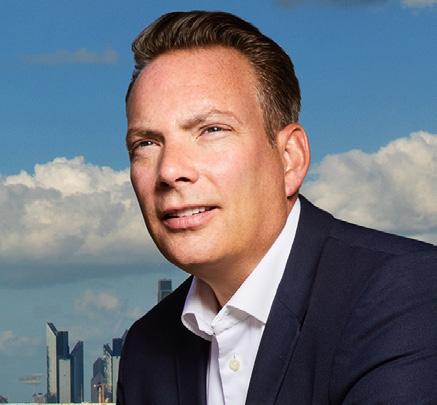
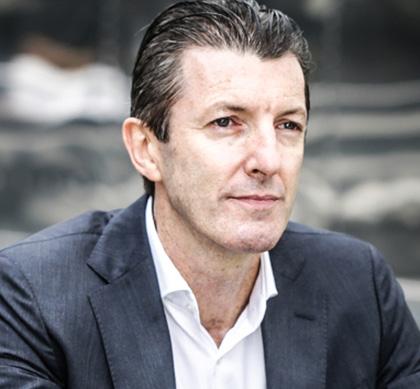
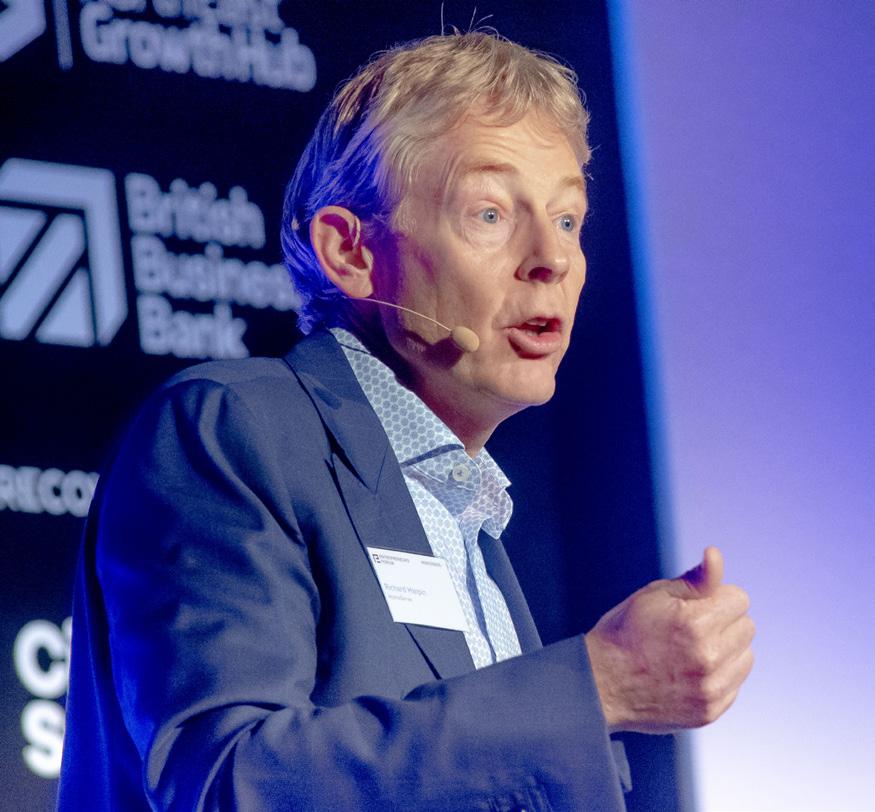





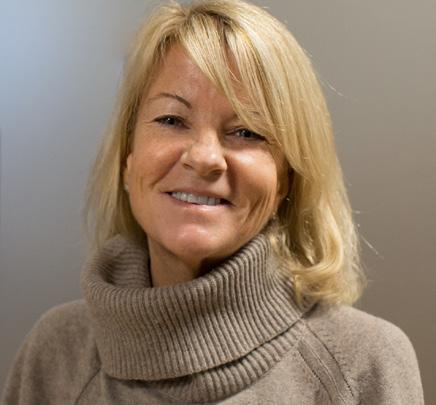









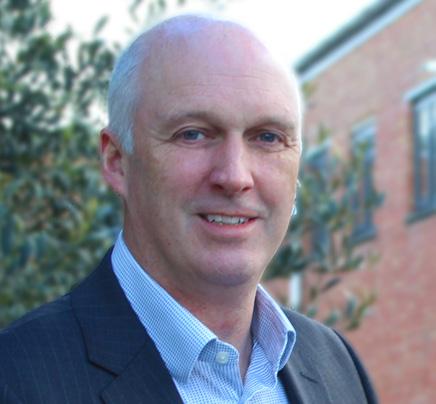

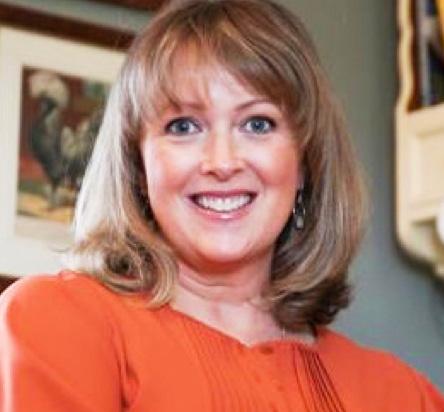


INDEPENDENT JUDGING PANEL INCLUDES:
JOHN STAPLETON
MARK NUTTER
SUSAN HOOPER
MATT GUBBA
CAPRICE BOURRET
TOUKER SULEYMAN
Richard Harpin
PIERS LINNEY
DONNA O'TOOLE
JACKIE FAST
JONATHAN LISTER PARSONS
JOSH ROBSON
CHARLIE ROBINSON
IRENE GRAHAM OBE
JULIET BARRATT
STEVE MALKIN
VERITY BROWN
GUY RIGBY
ZULEIKA SALTER
PAUL BROWN
DR SAIMA RANA
DOUGLAS HANSEN-LUKE
MAGGIE RODRIGUEZ-PIZA
ALPESH PATEL OBE
MANJULA LEE
REBEKAH BROOKS


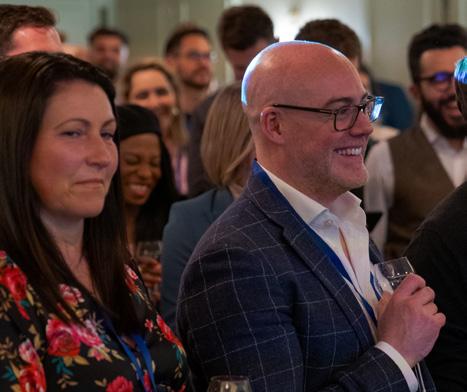
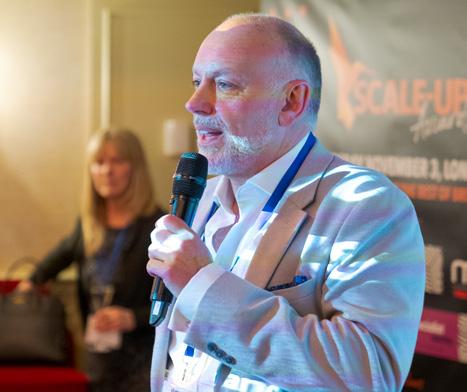
THE SCALE-UP AWARDS ARE BROUGHT TO YOU BY BUSINESS LEADER 2022 Sponsors TO GET INVOLVED, CALL 020 3096 0020 OR EMAIL: SPONSORSHIP@BUSINESSLEADER.CO.UK BECOME A SPONSOR AND CONNECT WITH BRITAIN’S TOP BUSINESS LEADERS Sponsoring the Scale-Up Awards aligns your brand with excellence, innovation and success. It positions your business in front of the UK’s top business leaders, key influencers and emerging stars. The Awards offer enormous marketing, branding and sponsorship opportunities including; • Your brand is included in high-profile consistent advertising, direct mail, e-mail marketing and promotional material • Coverage and branding on the Awards website • Major editorial coverage across Business Leader magazine • Pre & post-event PR and promotional opportunities • Extensive use of your branding during the awards ceremony itself • Your branding incorporated within the video roll at the ceremony • Logo remains on the awards website for one month after the event • Coverage in the high-quality, keepsake programme of events Find out more 2022 LAUNCH EVENT HELD AT HOME GROWN PRIVATE MEMBERS’ CLUB IN MARYLEBONE Did you attend the ScaleUp launch?' If you didn't watch the video highlights here
there hasn’t been the correct inflation in our industry for years
It is well documented that the hospitality sector was hit hard by the pandemic, but many brands also pivoted into new areas, which has seen them thrive. Commentators also point to the residual problems of supply chains and people transcending the pandemic – with many in the sector still searching for answers on how to solve them.
To find out more about the challenges and opportunities companies face, Business Leader partnered with PKF Francis Clark to host a debate at The Pig Hotels near Bath.

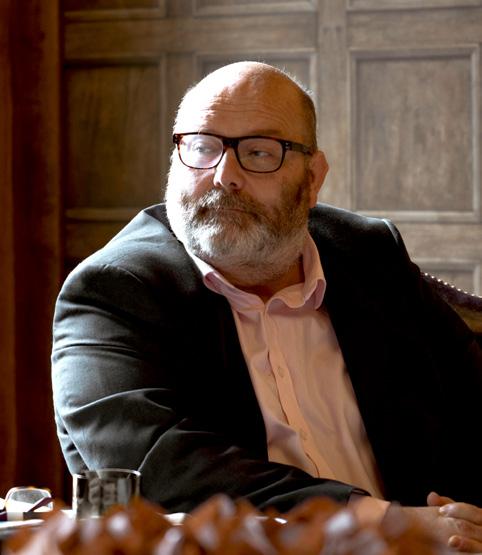
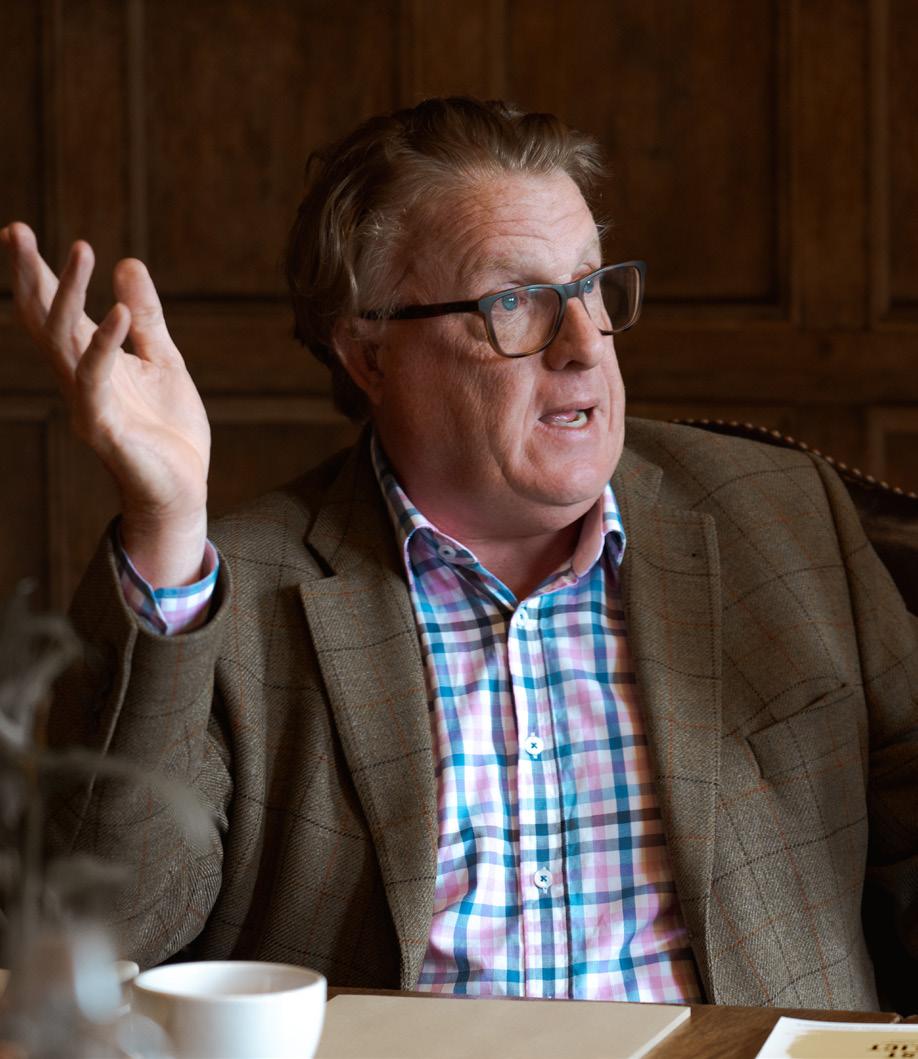
Steve Ashworth, who is Business Services Director at PKF Francis Clark, kick started the conversation by talking about some of the challenges his clients
He said: “Even before the pandemic there were people that said the system around food was broken, which I am not sure I agree with, but there are long-term issues the sector has been facing and the pandemic fast-forwarded many of them.
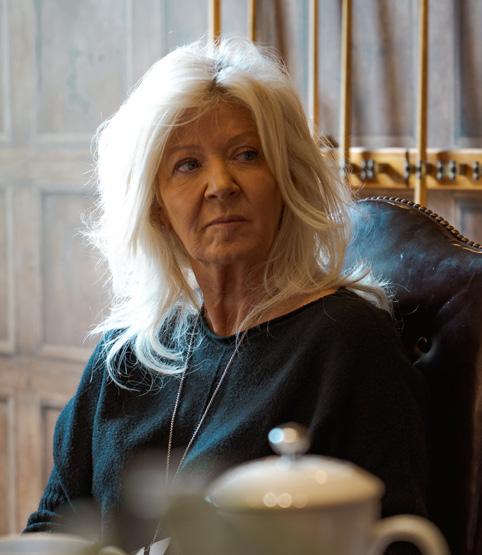
“Businesses are telling us that they are seeing a shortage
not just about recruiting them, but it is also about retaining them too. You can add in supply chain costs, inflation and the end of government support and it is a tough environment, but you also can’t escape from the sense of confidence that surrounds the sector again.”

Nick Farrant, who is a Partner at PKF Francis Clark and heads up the Food and Drink team, agrees with Ashworth that although challenges exist, there is optimism too.
He explains: “If you think back to 2019, many in the sector were saying that 2020 was going to be the year of expansion and there was a huge amount of positivity, with corporate finance at the forefront of their plans. Then what happened, happened and there are now concerns about economic headwinds and how to forecast for growth, but that original optimism is returning.”
DEBATE
IS THE FUNDING AVAILABLE TO MATCH AMBITION?
Daily Telegraph food critic, Masterchef judge and businessman William Sitwell also attended the debate, and he has recently set up a fund to invest in food and drink start-ups.

On whether there is the funding available to match ambition in the sector, he says: “There are a lot of start-ups in the hospitality sector that have a strong appetite for growth and we’re also seeing more established companies that are looking to expand too. The funding is there if the business can demonstrate a path to profitability or a previous track record.
“So, investors are lining up and looking at businesses and there is capital available, with lots of money waiting to be invested. The only blocker could be the instability in the world over Ukraine and a sense of whether to hold on and see, but good businesses with good track records will find investment.”
Sitwell says that a good example of a business ready for funding is Clays Kitchen. It operated a small restaurant that couldn’t open during the pandemic but started doing deliveries across the UK, bringing highquality Hyderabad cuisine to homes using couriers that vacuum pack the food.
This part of the business has now taken off and Sitwell says they are ripe for funding.
WHAT IS NEXT FOR THE SECTOR?
William spoke further about what is next for the sector and he believes that the hype around the ‘vegan revolution’ may dissipate.
“For me, a lot of it doesn’t stack up in terms of the environment as you can’t be a functioning and sustainable vegan as so much of the food is imported. It also worries me hugely that a lot of vegan food is ultra-processed.”
Looking deeper at the future for the sector, Sitwell says that he is also concerned about many of the business failures that are yet to come to fruition.
He explains: “We haven’t seen some failed businesses come through yet because of the government support they have received. There was duly concern from the sector about the government closing them down and last-minute changes around Christmas, but when you look at the whole picture, the support from government was pretty good in trying to keep the sector alive. It is difficult as it is such a broad sector, and the needs will always be different for each business within it.”
Sitwell says that the pandemic rescued some companies and many that went bust have blamed Covid but were failing before, due to spending too much on rents and for not tackling the food margin crisis that was
Tom Ross, who is Managing Director at The Pig Hotels, added to the conversation about the future for the sector by talking about integrity.
He says: “I do agree that it’s been a hugely challenging time, but the government did OK and although many didn’t feel the funding was right, it is difficult due to the diversity in the sector when it comes to the type of business.
“We’ve benefited from a very loyal and responsive database, and we worked hard to communicate with our customers as much as possible. I would also say that this comes down to integrity too – in how you treat your staff, source your products and how you communicate. Future success in this sector will rest a lot on trust and integrity.”

FOOD & DRINK
Cont.
“THERE ARE A LOT OF START-UPS IN THE HOSPITALITY SECTOR THAT HAVE A STRONG APPETITE FOR GROWTH AND WE’RE ALSO SEEING MORE ESTABLISHED COMPANIES THAT ARE LOOKING TO EXPAND TOO.”
William
Sitwell
FIXING THE PEOPLE PROBLEM

Next on the agenda at the debate was the subject of people and finding the talent needed. Imogen Waite, who owns three restaurants and a bakery, gives her view. She comments: “It’s always been a challenge, but it is a different one now in that we used to get hundreds of applications and we’re getting less now, but the quality is higher. Two of our restaurants are Spanish and it is harder now to employ people from mainland Europe, but we are working on this and trying to make it easier to recruit from Spain.
“I feel we have a head start because we have been focused on our employees for a long time and sometimes, I do visit some restaurants and wonder how they are employing people as they’re not treating them great.”
Waite says that the challenge is not about competing for customers but competing for staff. She says that there are very few people working over the age of forty in the sector, unlike in other countries, and to give countenance, you need to ensure people have a career path, a balance of working hours and can deal with the physicality of the work.
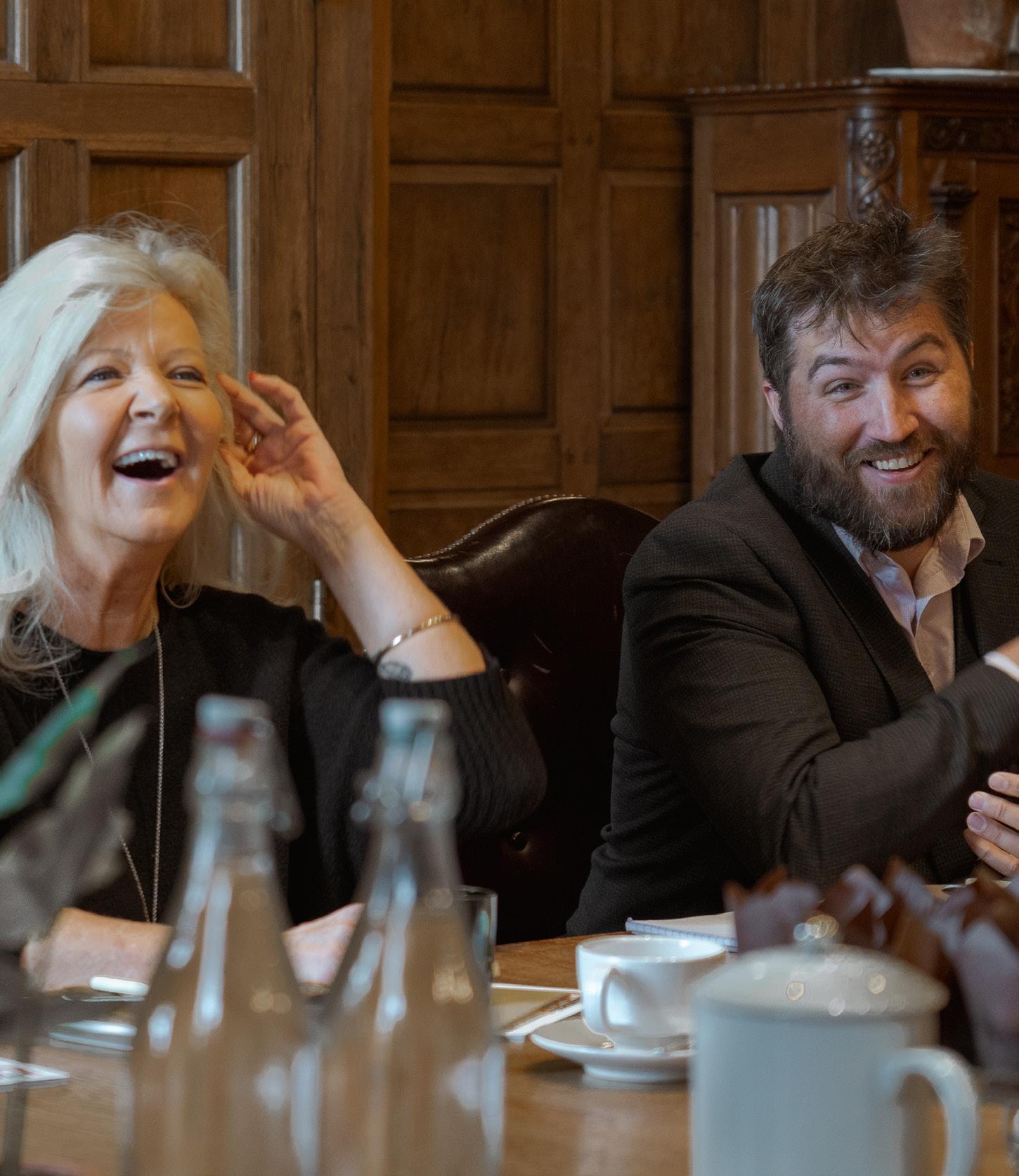

About finding talent – Jesse Pattison, who is owner of Brown & Forrest Smokery, says: “We’re a small business and trying to get people interested enough to learn how to make a whole salmon look like a work of art can be difficult. But the opportunity is multi-faceted as you are learning about smoking, sales, and the whole business. It’s a challenge sometimes working with education providers as it can be a case of the computer says no as we want

somebody that is going to come in and take on all aspects of the role.
“We’ll invest in our staff though, and we have put one of them through university to do a degree in history and we’ve said to him that he needs to commit to us for a certain period and he’ll learn everything and hopefully end up as a director one day.”
Imogen Waite
DEBATE
“I FEEL WE HAVE A HEAD START BECAUSE WE HAVE BEEN FOCUSED ON OUR EMPLOYEES FOR A LONG TIME AND SOMETIMES, I DO VISIT SOME RESTAURANTS AND WONDER HOW THEY ARE EMPLOYING PEOPLE AS THEY’RE NOT TREATING THEM GREAT.”
Amanda Stansfield, who is Managing Director and owner at ice cream business Granny Gothards, says she has a different issue when it comes to recruitment.

She explains: “I only need one production manager and one production supervisor, so I feel exposed in the sense that I want to reward my staff and my production supervisor will make a great manager, but the manager wants to stay and develop, so it can be a challenge.
“I am also blessed with a great business development manager, but her next role is my role, and I don’t want to lose her, and you don’t have these issues in a bigger
organisation. It’s a case of finding other ways to keep them motivated and happy in the business.”

PRICE RISES
Unquestionably, an issue that is affecting the hospitality sector is inflation and price increases, but will customers stomach a price rise?
Waite says: “We have been putting prices up and I would say our customers will be willing to pay due to the quality of our product and service. It is also interesting because in Bristol, prices are generally quite low compared to South Wales, for example, where I would say it is a third more expensive. To a certain extent we don’t have a choice, but the demand is there, which gives us confidence.”
Ross comments: “People will absorb a price increase if they are getting a great product. I found a menu from 1993 and the prices aren’t that different. There hasn’t been the correct inflation in our industry for years and it is the time now for it to happen.”
The rising cost of produce and doing business doesn’t always need to be passed onto the customer though, as Pattinson explains: “Fresh salmon has doubled since November but I can’t double my prices, so I started to look at the whole operation and one of my biggest costs was for food delivery and buying in polystyrene which is derived from crude oil and not great for the environment.
“So, I switched to triple skin cardboard, and this has reduced costs for us by taking £6.50 out of each delivery. You can’t keep on pushing costs onto the consumer and you can’t compromise on the quality of products either.”
Watch the debate summary here
NEW DATA FINDS PUB AND BAR STAFF ARE THE HAPPIEST SHIFT WORKERS

Pubs and bars are the happiest workplaces in hospitality, according to new data released by Deputy, the workforce management app.

52% of the shifts worked by pub and bar staff resulted in them feeling ‘happy’ in the first four months of 2022, compared to just 26% for those who work in fast-food restaurants and takeaways.
The data has been recorded using Deputy’s new Shift Pulse feature. Workers rate how they’re feeling at the end of their shift on a sliding scale from ‘stressed’ to ‘frustrated’, ‘ok’, ‘good’ and ‘happy’. More than 92,500 UK shifts were measured between 1 January 2022 and 30 April 2022.
David Kelly, General Manager for EMEA at Deputy, said: “It’s great to be able to share some really positive feedback with pubs and bars after the turbulent time they’ve had in recent years.”
FOOD & DRINK
digital global trade will overtake physical by 2025
A recent report by IBM revealed that the UK is one of the nations that most frequently falls victim to a cyber-attack. Worryingly, with Russia’s invasion of Ukraine and subsequent sanctions turning the invader into an international pariah, many experts are saying that cyber-attacks against the UK could increase.
For many businesses though, cyber security is still a rarefied thing that is difficult to plan for and difficult to understand. To help Business Leader readers gain more of an understanding into what the threat landscape looks like, we recently held a debate on the subject. Sergio Caltagirone, who is Vice President of Threat Intelligence at Dragos, opened the conversation by giving an assessment of the current threats companies are facing.
He comments: “The biggest cyber security threat for companies is resilience in a changing threat environment and being able to keep up with what is going on. “Dragos recently commissioned some research which showed that in 2020, 36% of companies in the industrial sector had external internet facing connectivity but in 2021, this had jumped to 70%, meaning there has been a huge increase in the remote management of systems and
remote access to technology, which will mean a big increase in threats.
“In 2019, we didn’t see major intrusions into the industrial sector but in 2020 and 2021, we did and there was a lot more direct attack.”

With cyber-attacks seemingly more common, what can businesses do to mitigate the threats?


Caltagirone says: “It is not yet sufficiently reaching board level. Many are aware of the risks, but they aren’t actively managing it well. It’s not enough to just brief your board because until it is in your risk register, it is not getting dealt with. Another issue is that many companies have insufficient visibility, and they can’t tell you what has happened.”
“THE UK IS ONE OF THE MOST-ATTACKED TERRITORIES, AND CRITICAL INFRASTRUCTURE AND MANUFACTURING ARE MOST ATTACKED BECAUSE THESE GROUPS PREY ON PEOPLE THAT ARE GOING TO PAY THEM.”
Laurance Dine is Global Lead, X-Force IRIS Incident Response at IBM, and comments on the threat landscape.
He says: “Ransomware attacks are increasing along with phishing attacks and data theft is increasing a lot too, where company information is being stolen and sold to
Laurance Dine
38
Vicki Bowles is a Data Protection Partner at VWV and says that human error is also still a key actor.
She comments: “Phishing is still a common threat our customers are dealing with and, in particular, human error, where an employee is responding to a corrupt email and inputting information that creates risk. In addition, we’re seeing more organisations that
Vicki Bowles
Bowles says that businesses can mitigate risk by training staff and making sure that you do regular testing because for many companies, the organisational side isn’t as good as it should be.
If a business is attacked, it can often be a struggle to know what to do next and what legal recourse you have. Bowles explains:


“A lawyer shouldn’t be the first person
become a buzzword, but what it means is the shift from companies being analogue or highly offline to more digital and we’re seeing more companies in the industrial and manufacturing sector embrace digital transformation because you can gain economies of scale by leveraging software and sending telemetry offsite.
“It is a risk though, because you’re adding more organisations to what you do, and this means onboarding more threats and more partners that may be breached and impact your business.”

Business Leader - Inspire • Inform • Connect
Cont.
“PHISHING IS STILL A COMMON THREAT OUR CUSTOMERS ARE DEALING WITH AND, IN PARTICULAR, HUMAN ERROR, WHERE AN EMPLOYEE IS RESPONDING TO A CORRUPT EMAIL.”
digital supply chain, and we are shifting from physical trade to digital trade. By 2025, the global trade of physical products will be surpassed by digital purchases and sales. This is huge and, of course, it is going to mean more risk. Too many industries are archaic though, and working on paper, for example, and this will change fast.”
which means bringing on new adversaries, but you just need to manage your environment in a way that assumes there are threat actors out there.
are also seeing a lot of major breaches happen with mergers and acquisitions because a company will acquire another and then bring on their systems and you’ll see that the breach
UFC Champion Amanda Nunes to Offer Personal Training in the Metaverse

The Sports Metaverse, the world’s first virtual world specifically focused on sports, recently announced a signed partnership with UFC icon Amanda Nunes to offer personal training in her metaverse gym.
Nunes, a two-division Ultimate Fighting Championship (UFC) champion and widely considered to be the greatest female mixedmartial-arts (MMA) fighter of all time, is building her personal gym in the Sports Metaverse where she’ll appear in 3D and coach users on how to fight.
She commented: “It always was a dream to have a gym. You want to be in control of your stuff, you want to train the way you want. You want to be able to share with the fans. I’m building my own gym in the real world and now I have one in the metaverse. It’s very exciting!”
supply chain but asking you to pay for it. We have seen it a couple of times already, but it will happen more often.”
Watch the debate here

June/July 202240
“We
EXAMINING EUROPE’S INDUSTRIAL CYBERSECURITY LANDSCAPE
BY ANTHONY ATKINS – ACCOUNT MANAGER, UK & EU
It has been just over a year since the widely publicised cyberattack against American oil distributor, Colonial Pipeline, took place. The incident attracted global attention and highlighted that long gone are the days when a cyberattack caused a simple IT outage.
The Colonial Pipeline incident provided a real-world example of the physical and societal consequences of cybercrime.
After attackers had gained access to the company’s IT network, concern over them moving laterally and reaching the operational technology (OT) led to plant operators shutting down systems and halting the supply of gas.
The consequences of the attack are widely known: Not only did the world’s most powerful nation suddenly find itself in the midst of a major fuel shortage, but the world was also harshly awakened to the true threat cyberattacks on industrial organisations present.
In response to the attack, governments across the world have been actively prioritising the cybersecurity of their industrial infrastructure. But to prioritise defences effectively, it is vital to understand the attack landscape and the threats most active today.
So, what threats should Europe’s industrial organisations be aware of and what can they do to improve their defences against them?
Europe’s industrial cybersecurity landscape
It is safe to say that Europe is a valuable target for adversaries and criminals exploiting OT environments for geopolitical reasons or financial gain. In the last few months alone, the world has witnessed
attacks on Oiltanking Deutschland, Nordex Designs and Finland’s Foreign Ministry and Defense Ministry. These instances are growing in severity and frequency and are being heightened by the ongoing Russian invasion of Ukraine.
When it comes to attacks targeting Europe’s industrial organisations, ransomware remains a key threat to IT and OT environments. According to the recent Dragos European Industrial Infrastructure Cyber Threat Perspective, victims headquartered in Europe accounted for 26 percent of Dark Web ransomware notice postings between June to December 2021.
In total there were 79 ransomware attacks on industrial organisations in Europe, and of these Germany and Italy experienced the largest number – with 19 incidents taking place in each of these regions. This is likely because these countries both have large manufacturing industries. Manufacturers are a top target for cybercriminals, with the industry suffering 61 percent of total ransomware infections that took place in Europe.
As was demonstrated in the Colonial Pipeline incident, one of the biggest concerns about ransomware is that it targets IT and then spreads to OT. This risk is heightened when organisations do not possess enough visibility and segmentation across their networks to prevent it spreading.
However, according to Dragos’s findings, the biggest cybersecurity weakness European asset owners currently face is a lack of visibility into their networks, which means they cannot protect them comprehensively and actively monitor for threats.
So, what can Europe’s industrial organisations do to improve the cybersecurity of their networks?
Increase visibility
You can’t protect what you can’t see, so improving visibility is a critical pillar of industrial cybersecurity, especially as digital transformation efforts unfold.

Industrial operators are advised to inventory all connected devices on their network and ensure each is visible and being tracked by security tools.
Take time to understand what devices are connected to the network and then apply security and vulnerability assessment and management programs across them. When devices cannot be secured or updated with vulnerability patches, use segmentation to keep them away from the crown jewels. This helps prevent attackers exploiting weaknesses in them and then moving laterally across the network to reach OT.
Learn through threat intelligence Learning from adversaries enables organisations to understand their techniques, tactics and procedures so they can improve their defences against them.
Build a strong cybersecurity culture Industrial business leaders must encourage and nurture a strong security culture.
Train staff on the dangers of threats and attacker techniques, run incident response training regularly and imbed security checks into all business and supply-chain processes.
Business Leader - Inspire • Inform • Connect 41
CYBERSECURITY Business www.dragos.com
UK DEAL ACTIVITY IN TECHNOLOGY - WHAT SHOULD WE EXPECT IN THE SECOND HALF OF 2022?
In January, most commentators were confidently predicting that UK deal activity in the tech sector would beat the records set in 2021, despite the economic consequences of COVID and the wellpublicised chip supply issues.
The conflict in Ukraine, inflation and rising interest rates seems to be dampening that confidence a little - particularly with respect to M&A activity. However, there are reasons why UK deal activity in the tech sector should remain buoyant in 2022.
Most significantly, PE and VC funds, both in the UK and further afield, raised record breaking levels of capital over the last 1218 months and they still have significant cash resources to deploy. Investment officers, will also be under pressure - and will be incentivised - to deploy that capital. Also, the UK remains one of the best places to start and scale a technology business. As such, there is also no shortage of UK tech companies looking for seed, later stage or growth capital.
There is also the recognition that sustainable growth in the UK economy will only come from the development and deployment of new technologies and the creation of jobs that companies - new and established - will need to fill.
The prospects for the UK M&A market in the second half of 2022 are more difficult to predict. M&A remains a quick way for companies to scale and innovate. Well-funded companies under increasing competitive pressure may look to M&A as a way to accelerate their own innovation and growth. The uncertainties in the market will also encourage some UK tech entrepreneurs to de-risk by selling a proportion of their equity stake, or cash out entirely.
Only time will tell how significant the current global political and economic factors will be, but it’s certainly going to be an interesting few months.
For more information, please contact Nathan Guest in VWV’s Technology team on 0117 925 2020 or at nguest@vwv.co.uk.
FOUR IN TEN FINANCE WORKERS
WOULD WORK FOR A ROBOT BOSS
46% of the UK’s frontline finance workers say they believe a piece of software would be a more effective line manager than their current boss, according to new research from technology provider Tradeshift.


Tradeshift’s ‘Are Friends Electric?’ report polled attitudes to automation among 500 finance and accounting professionals, roles which are often cited as being at risk from disruption by technology. The research revealed that globally, 40% of respondents believe a machine would be more effective as a line manager than their current boss, rising to 48% of respondents in the US.
“If you believe the doom-mongers, you’d think today’s workers are terrified that automation will steal their jobs, but our research shows the reality is very different,” said Mikkel Hippe Brun, Co-founder and General Manager, Payment Automation, at Tradeshift.
June/July 202242 COMMENT
How Right Size Technology can save you thousands on fuel and energy costs
According to Government data, In 2020 1.27 billion tonnes of goods were carried by trucks and HGVs across the UK, covering 16.2 billion road miles.

Due to recent socioeconomic and political factors the cost to fuel these HGVs has risen by £173 per week. Diesel has hit a record high of £1.70 per litre, while petrol now costs an average of £1.61 per litre.
With fuel and energy costs soaring; Inflation is at its highest level for over 30 years and most of these price rises are being passed onto the consumer as firms simply cannot absorb such significant increases.
How Ribble Right Size Can Help?
By introducing Right Size technology into your packaging supply, you will gain the ability to create the perfect size box for any of your products on-site, on-demand. With Right Size there is no need for additional protective packaging materials such as bubble wrap or Styrofoam peanuts as your boxes will now fit your products perfectly, increasing product protection, decreasing the weight of your packages, and making your packaging process fully sustainable.
Ribble Right Size solutions improve your company’s vehicle utilisation by 25%. This means companies who have implemented Right Size can fit 25% more product in each vehicle, drastically decreasing fuel consumption and transport costs. Every cubic inch of your packaging that doesn’t contain your product is costing you money, so why would you continue to waste money shipping bubble wrap and Styrofoam when you could Right Size your packaging supply and save thousands?
There are also many other benefits of using our Right Size solutions, these include: up to a 30% reduction in total
packaging costs, huge savings on labour costs through increased automation, increased warehouse space and more.
Rising fuel prices are putting further pressure on retail supply chains. This adds to other cost pressures from labour shortages, commodity price increases and rising energy prices, so until some pressures ease, it’s likely prices will continue to rise.
Future proof your packaging supply today with Ribble Right Size.
Visit: www.ribble-pack.co.uk/right-size to find out more or Call: 0161 284 9000
Without Right Size 50 packages per 2 vehicles With Right Size 75 packages per 2 vehicles
ceo in focus



CEO IN FOCUS
AIR UP® lena jüngst
Lena Jüngst is the Co-founder, CEO and inventor of air up, the world’s first drinking bottle that flavours water just by scent. After developing a prototype for air up® during her Bachelor Thesis, she launched the product to market in July 2019. Since then, Lena has featured within Forbes DACH 30 under 30, and air up has served more than one million customers across Europe. Lena chatted to Business Leader about air up’s journey from prototype to becoming a disruptive force in the soft drinks industry.

CAN YOU TELL US ABOUT YOUR BACKGROUND AND WHAT YOU WERE DOING BEFORE YOU FOUNDED AIR UP®?

My background is rather creative, not the typical business background. I was born and raised in Munich and studied Product Design at the University of Schwäbisch Gmünd.
YOU CREATED THE PROTOTYPE FOR THE AIR UP® BOTTLE WHILST STUDYING AT THE UNIVERSITY OF SCHWÄBISCH GMÜND – CAN YOU TELL US MORE ABOUT THIS EXPERIENCE?
My Co-founder, Tim Jäger and I both wrote our Bachelor thesis under the name “Neuroscience Meets Design”. At the time, we were watching many Ted Talks on neuroscience and then stumbled across the so-called ‘retronasal smell’ - taste which is transported through the air. We were very excited about this new knowledge, and immediately had some ideas in our heads that could perhaps be implemented with this phenomenon, and that could, therefore, provide flavour without any additives.
Together with Tim, I then started looking for the perfect project for our Bachelor Thesis. This not only led to the idea
of designing a drinking bottle that can flavour water just by scent, but also to some crazy first prototypes. It started with a room scent! We put a straw into it, brought the straw to our mouth and at the same time were drinking from a glass of water with a second straw.
DO YOU THINK THE DEMAND FOR ALTERNATIVES TO SUGAR-FILLED FIZZY DRINKS WILL CONTINUE TO GROW?
WHAT ARE THE BARRIERS PREVENTING TAKE UP OF HEALTHIER ALTERNATIVES?
Yes, I definitely think so! Due to evolution, we humans basically can’t resist flavourful food and beverages and as such, can often end up drinking less tap water as it’s quite bland in comparison to other drinks you may find in the supermarket. Yet with air up®, people don’t have to decide between health and flavour, it offers the possibility to experience taste without adding sugar or any other additives to their diet.
LENA JÜNGST
Cont.
I think in terms of healthier alternatives, we must think new and offer new products that are attractive choices for the consumers. Life is short, we don’t want to miss the fun part, so a healthy alternative must be fun, easy and simply not worse than the unhealthy one.
WHAT HAVE BEEN THE BIGGEST CHALLENGES YOU’VE FACED IN YOUR CAREER AND HOW HAVE YOU OVERCOME THEM?
Well, founding a company, in general, is really challenging! But the biggest challenge was in the beginning, to step over from my creative-work bubble into the startup world. This was quite a big change for me, and I realised I have a completely different way of thinking than people from the business world. I overcame this together with my team, as I realised that the more diverse the team is, the better the ideas, products and company.
WHAT IMPACT HAS BREXIT HAD ON AIR UP® AND YOUR INDUSTRY?
Brexit hugely impacted our UK market entry in June 2021 (and even delayed it).
We found that there have been lots of question marks from the UK government when dealing with EU companies operating in the UK post-Brexit due to the changing regulations. As we were newly entering the market, we had the fundamentals, i.e. VAT registration number, new customs regulations, etc. to deal with.
For example, we had to wait for our VAT number for several months – but before Brexit, this would have been applied and distributed within two weeks.
HOW WERE YOU AFFECTED BY THE PANDEMIC?
This is hard to tell as we are still such a young company. But I really think our adaptability played a big role in how we reacted and were impacted by the pandemic.
For example, we have been a remote-first company since the beginning, meaning we did not have to build a completely new work infrastructure for our employees, as they are all used to working from home, so the lockdowns did not affect our normal workflow too much.
The air up Founders
On top of that, consumer behaviour changed during the pandemic – people would buy online much more than before, and some even decided to fight forced sedentarism by adopting a healthier lifestyle: paying more attention to their nutrition, exercise and hydration habits to prevent weight gain.
WHAT CAN WE DO TO BETTER SUPPORT FEMALE ENTREPRENEURSHIP?
In my opinion, the real necessity is to promote good ideas and entrepreneurship altogether, supporting more creative profiles and mentoring them on how to step into a business/startup world, which indeed, and unfortunately, is still male-dominated.

I have a personal theory here: like with everything else, we tend to like and perpetuate what we know or what is familiar to us. In a business and entrepreneurial context, still very much dominated by men with a background in business, that would imply that investors tend to favour profiles that resemble them. Basically, what I think is that we need more female investors to support and foster female founders.
YOU’VE DOUBLED YOUR WORKFORCE SINCE THE BEGINNING OF THE YEAR AND YOUR REVENUE IN 2021 MORE THAN DOUBLED THAT OF 2020 – HOW HAVE YOU MANAGED TO ACHIEVE SUCH SUBSTANTIAL GROWTH?
In the beginning, we almost couldn’t meet the high customer demand. Our product offers something very attractive for the generation of tomorrow - combining responsible consumption with an attractive product experience.
I believe due to our innovative idea and a healthy dose of pragmatism, we managed to grow step by step - first in the German-speaking countries and then across Europe. We are now active in nine different markets and our team consists of 240 talented members. They are all part of the success, and everyone is helping to achieve this substantial growth – that makes me very proud.

CEO IN FOCUS 46 June/July 2022
“I THINK GOOD LEADERSHIP IS ABOUT TRANSPARENT COMMUNICATION, BEING HUMAN, BEING INSPIRING AND TAKING MORE OFTEN THE RIGHT DECISIONS FOR THE TEAM.”
Lena Jüngst
HOW IMPORTANT IS SUSTAINABILITY IN THE SOFT DRINKS INDUSTRY AND WHAT NEEDS TO HAPPEN TO MAKE THE SECTOR ECO-FRIENDLIER?
I would say sustainability is important in every industry! But in the soft drinks industry, the problem is the lack of innovation. Our product, for example, is sustainable by design – and this is the key! I think you have the biggest leverage if you already think about reducing waste and emissions while concepting the new product. The later in the supply chain that innovative thinking happens, the lesser the impact.
It is great to see that many brands now, for example, only use R-PET to ensure single-use plastic bottles are made of recycled materials, but this will not change the horrifying levels of plastic pollution in our oceans. Therefore, we need to think of ways to make tap water more attractive. It’s the cheapest, it’s the healthiest and the most sustainable way to consume drinks.
One big sustainable downside of the soft drinks industry is the carbon-heavy distribution. Every brand and every step that is taken to help reduce waste and carbon emissions within the industry can make a huge difference, making the whole sector more eco-friendly.
WHAT MAKES A GOOD/BAD LEADER?
I believe that there are many different ways of being a good leader - every manager at our company brings their own leadership style. But in general, I think good leadership is about transparent communication, being human, being inspiring and taking more often the right decisions for the team.
TELL US ABOUT YOUR LATEST ROUND OF FUNDING
We successfully closed our last funding round in September last year and raised more than €40m (£34m). This only happened after completing our Series A fundraise, at the beginning of 2021.
The investment round was led by Five Seasons Ventures (co-led by PepsiCo, Ippen.Media and Oyster Bay) and was based on our rapid growth across Europe. With this latest injection of growth capital, we will accelerate international expansion across Europe (we already launched in the Swedish Market in March) and the United States within this year.
WHAT ARE YOUR PLANS FOR THE FUTURE?
We now know that we must change the way we consume, develop and produce products. Unfortunately, this is nothing we can change from today to tomorrow, but I believe that companies should play a major part in it. My plan for the future is to develop more products that make it easier for people to consume in a more responsible way.
A life of Climb
Whether you’re a brand new start up, a business struggling to get a foothold in the market or a roaring success, all aspirational businesses will have one thing in common. A good leader who recognises that things could always be better, and who will work to make that happen.
This mindset - this quest for success - is what we at Vistage call a Life of Climb. Every business leader begins their ascent from the bottom of the mountain. However, it’s only those who climb with purpose who can take their business - and their leadership skills - to a higher elevation.

A new perspective can change everything. Here’s what a Life of Climb is all about.
THE HARDEST CLIMB
For many, “the hardest climb” will conjure up images of the trek to the summit of Everest or K2. For business leaders, “the hardest climb” is far closer to home.
Your climb is internal. It’s about facing your fears. It’s about overcoming obstacles, runs of bad luck and the fear of failure as you ascend. It’s about scaling peaks that are far beyond your normal comfort zone.
There’s no denying that a life of climb can be a struggle at times. For those tough moments, though, there’s plenty of help along the way.
CHOOSING THE RIGHT PARTNERS IN CLIMB
While it’s true that you alone are responsible for determining and defining the peaks you want to reach, you don’t need to go it alone. Choosing Vistage as your expedition partner can ensure that you’ve got both a guide and fellow climbers joining you.
Your guide? An experienced Vistage Chair. What better guide than someone who has already reached the summit themselves - and who has guided several other climbers on the same journey.
It’s not just your guide who will help you succeed, but your fellow climbers - Vistage members and the wider Vistage community - too.
Who you surround yourself with on your ascent is vital. Vistage members will encourage you, support you, equip you and challenge you to reach heights loftier than you had ever imagined.
READY TO SUCCEED AT A WHOLE NEW LEVEL?
TAKE THE FIRST STEP
LENA JÜNGST 47Business Leader - Inspire • Inform • Connect
people & appointments
Business Leader gives a rundown of recent appointments and promotions across various sectors.
HARLEY STREET’S ECHELON HEALTH APPOINTS NEW CEO
Echelon Health, a provider of health assessments, has announced the appointment of Ahmed Elbarkouki as its new Chief Executive Officer.

In his new role, Elbarkouki will be responsible for further enhancing the client experience through the integration of luxury elements that will contribute to ensuring the Echelon Health journey is seamless.
PAPA JOHNS MAKES EXECUTIVE APPOINTMENTS
AFTER RETIREMENT OF COO
Papa John’s International, Inc. recently announced the retirement of Chief Operating Officer, International, Jack Swaysland. Amanda Clark was promoted to Chief International and Development Officer and will now oversee international strategy in addition to her global development responsibilities.
Liz Williams was also named Chief International Operations Officer, reporting to Ms. Clark. She will assume Mr. Swaysland’s role and will be responsible for the company’s international markets and international team.
GLOBAL PAYMENTS PLATFORM TRANSACT365 APPOINTS NEW CEO
Transact365, a UK-based global payments platform, has appointed David Lambert as its new CEO. Lambert will oversee the fintech’s expanding merchant customer base and card schemes. He will also work closely with the rest of the senior management team to expand the business into new markets and take advantage of new opportunities in the fast-evolving payments landscape.
FINBOOT HIRES PARIS DUFRAYER AS ITS FIRST CHIEF REVENUE OFFICER
UK-based tech company Finboot recently announced that it has appointed Paris Dufrayer as its first Chief Revenue Officer. Dufrayer joins with extensive experience in sales and marketing for cutting edge tech solutions including UCC, Cybersecurity, BI, and has led worldwide enterprise projects and sales teams for companies including Avaya, Cisco, Qlik, Akamai, among other Blue Chips and Start-ups.
OPEN SYSTEMS HIRES CHIEF PEOPLE OFFICER TO MEET GROWING DEMAND
Open Systems, the cybersecurity services provider with Mission Control, has appointed Alaska May as its Chief People Officer to lead the global people organization.
Among her responsibilities, May is charged with recruiting and retaining additional cybersecurity experts the company needs to meet the growing demand for its managed detection and response (MDR) and secure access service edge (SASE) services.
SHAW & CO APPOINTS NEW HEAD OF M&A
Shaw & Co, the South West corporate finance advisory firm, has appointed Rob Starr as its new Head of Mergers and Acquisitions.
Rob joins the company from UHY Hacker Young, one of the UK’s Top 20 accountancy networks, where he was Corporate Finance Director. In his new role, he will be responsible for leading and developing Shaw & Co’s M&A division, which offers expert advice on all aspects of buying and selling a business.
June/July 202248 APPOINTMENTS ROUND-UP
top 32 uk’s biggest exporters
For our latest Top 32 list, we have profiled the largest exporters of goods and services in the UK along with the leading companies that rely on exports for a large portion of their business. We also took a closer look at the senior figures that lead these businesses.


HOW HAVE THE TOP 32 BEEN CHOSEN?
We asked our readership to suggest companies and individuals that deserve to have the spotlight shined on them for their impressive exploits in the export world. Others have been included because of the sheer volume of their exports.
However, if you feel there are others that deserve to be included on this list, then please email editor@businessleader.co.uk and they will be included in the digital version on www.businessleader.co.uk. This list is in no particular order.
UK’S BIGGEST EXPORTERS
virtual internships
DANIEL NIVERN
Virtual Internships is an Edtech company exporting services to 11,000+ host company partners in 110 countries and over 561 universities, colleges and government institutions across 61 countries. Founded in 2018, they deliver a comprehensive global work experience program that helps young people pursue their dream careers and bridges the gap between education and the workforce. Virtual Internships make internships accessible to all and prepare young people for future work.
streetbees
TUGCE BULUT
Streetbees is a global intelligence platform based in London. Its chat-style app allows more than 4.5 million users across 189 countries to share moments from their daily lives, and through applying advanced natural language processing technology to the results, Streetbees uncovers not just what its app users do, but also why they do it, and what drives them – and predicts what they may do next. The AI platform then provides these rich insights to high-profile clients like Sony Pictures, Carlsberg and cosnova.
Pascal Soriot CEO, AstraZeneca
 Emma Walmsley CEO, GSK
Emma Walmsley CEO, GSK

astrazeneca
PASCAL SORIOT
AstraZeneca is a global, science-led biopharmaceutical company that focuses on the discovery, development and commercialisation of prescription medicines. Headquartered in Cambridge and founded in 2009, the company experienced incredible growth during the pandemic due to its role in developing the Oxford-AstraZeneca Covid-19 vaccine.
The pharmaceutical giant operates in over 100 countries and its innovative medicines are used by millions of patients worldwide.
GSK
EMMA WALMSLEY
GSK (formerly GlaxoSmithKline) is a science-led global healthcare company. Its self-proclaimed special purpose is to help people do more, feel better, and live longer. According to Forbes, GSK is the world’s sixth-largest pharmaceutical company as of 2019. It has nine manufacturing sites in the UK along with its corporate HQ in Brentford and a global R&D site, whilst around 80% of the pharmaceutical and consumer healthcare products that GSK manufactures are exported.
manière de voir
REECE WABARA
Sports-luxe clothing company Manière De Voir was founded in Manchester in 2014, and the brand was created to fulfil the need of fashion-forward enthusiasts, who desire trend-focused contemporary designs with competitive prices. Although the UK are their biggest market, the USA is its second-largest and they export to over 95 countries around the world, generating £30m in revenue in 2021 without outside capital.
mondi group
ANDREW CHARLES WALLIS KING
Mondi is a global leader in packaging and paper, creating innovative packaging and paper solutions that are sustainable by design. Its UK headquarters are in Weybridge, but the company employs around 26,000 people and has around 100 production sites across more than 30 countries, predominantly in Europe, Russia, North America and South Africa, from which its range of paper and packaging products are sent around the world.
June/July 202250 TOP 32
Duncan Graham Wanblad CEO, Anglo American PLC

tala
GRACE BEVERLEY
TALA was founded with the aim of producing high-performance, eco-friendly activewear. To fulfil its aim, the company partners with sustainable factories in Portugal, Turkey, China, Italy and Vietnam to produce a wide selection of stylish clothing that is manufactured from 92% of upcycled or recycled materials. Founded in 2019, the company has a loyal international audience, particularly in Australia and the US, but recently raised $5.7m (£4.6m) in order to further international expansion.
british american tobacco
JACK BOWLES
Founded in 1902, British American Tobacco, a multinational manufacturer of cigarettes, tobacco and nicotine products, is the largest tobacco company in the world based on net sales as of 2019. With operations in around 180 countries, they sell more than 200 tobacco brands in over 200 markets and employ more than 50,000 people worldwide. In 2021, the company generated more than $16bn (£12.9bn) in revenue in the US, whilst sales in Europe and North Africa generated $8.2bn (£6.6bn) and revenue for Asia-Pacific and the Middle East stood at $6.3bn (£5.1bn).
anglo american plc
DUNCAN GRAHAM WANBLAD
Headquartered in London, mining company Anglo American plc is the world’s largest producer of platinum, accounting for around 40% of the world’s platinum output. Ranked as the 274th-largest public company in the world in 2020, Anglo American is also a major producer of diamonds, copper, nickel, iron ore and metallurgical and thermal coal. With operations in Africa, Asia, Australia, Europe, North America and South America, the mining giant currently employs more than 90,000 people.
Grace Beverley CEO, TALA

Business Leader - Inspire • Inform • Connect 51 UK’S BIGGEST EXPORTERS
Tania Boler CEO, Elvie

elvie
TANIA BOLER
Elvie is a health and lifestyle brand developing smarter technology for women. Committed to building extraordinary products that improve the health and lives of women everywhere and at all stages of life, Elvie has offices in London and New York and ships its innovative products to around 30 countries worldwide. The Femtech platform raised £70m in Series C funding in 2021, which it plans to use to drive more growth by entering new markets and diversifying its product range.
johnson matthey
LIAM CONDON
Chemical manufacturers Johnson Matthey’s vision is for a world that’s cleaner and healthier, today and for future generations. The company traces its origins all the way back to 1817 but has expanded far beyond its London roots. Now operating from 43 manufacturing sites that are dotted around the world in more than 30 countries, the sustainable tech giant opened a catalyst manufacturing plant in North Macedonia, which has since become the largest exporter in the country.
Liam Condon CEO, Johnson Matthey

 Jakob Stausholm CEO, Rio Tinto Group
Jakob Stausholm CEO, Rio Tinto Group
rio tinto group
JAKOB STAUSHOLM
The second mining company to appear in our list, and the world’s second-largest metals and mining corporation, the Rio Tinto Group was founded in 1873. Operating in 35 countries, Rio Tinto focuses on four product groups: aluminium, copper, minerals and iron. The mining giant sells the latter through 15 ports in China to 80 customers around the world, whilst more than 230 marine vessels transport their products.
bae systems plc
DR. CHARLES WOODBURN
BAE Systems plc provides some of the world’s most advanced, technology-led defence, aerospace and security solutions. As the largest defence contractor in Europe and the biggest manufacturer in Britain, BAE employs 85,800 people in more than 40 countries and exported £3.9bn of goods and services in 2020. Although its largest markets are the UK and US, other major markets for the company include Australia, Canada, India, Saudi Arabia, Turkey, Qatar, Oman, Sweden, and Saudi Arabia.
Dr. Charles Woodburn CEO, BAE Systems PLC

June/July 202252 TOP 32
smith+nephew
DR. DEEPAK NATH
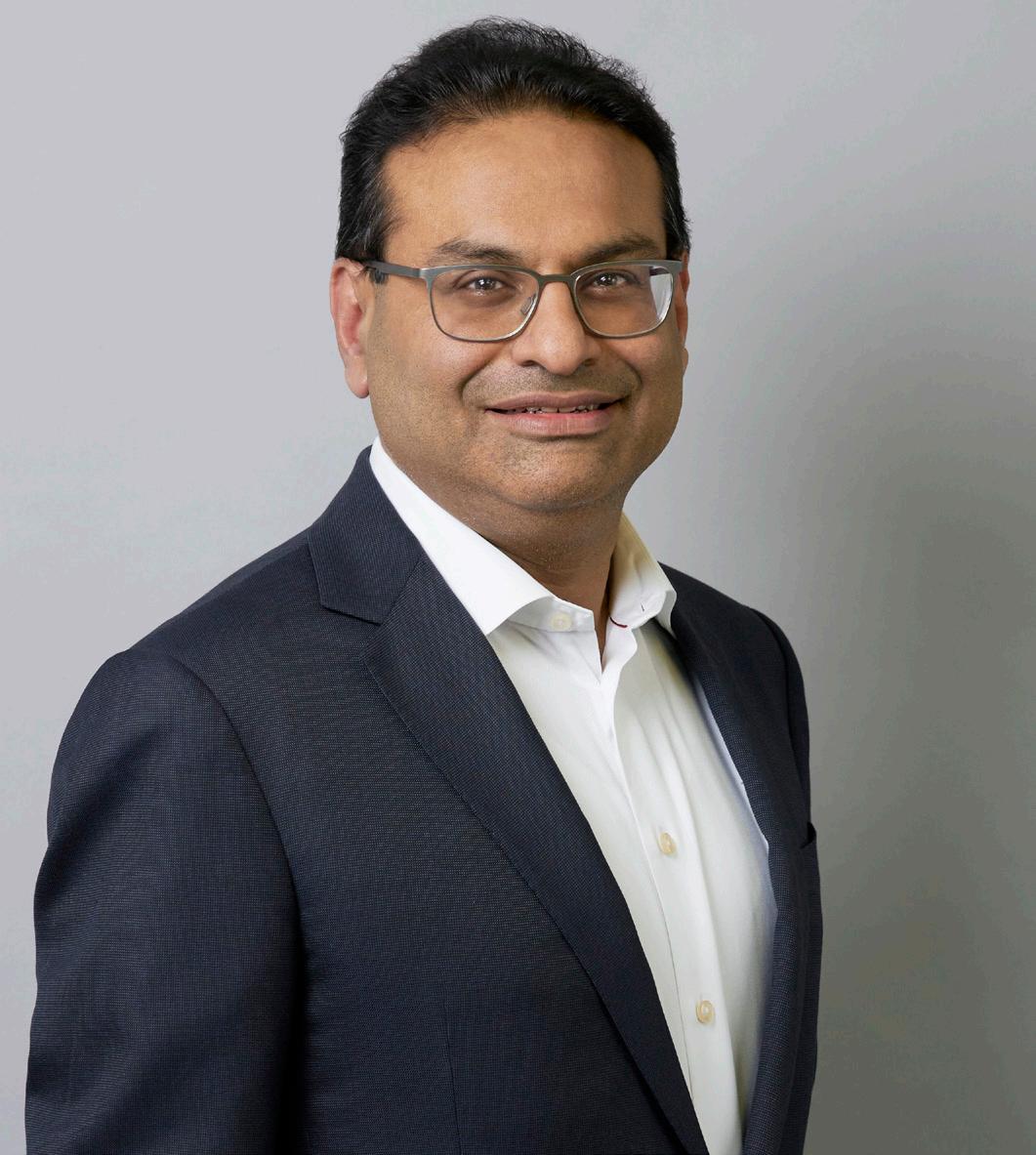
Smith+Nephew is a global medical technology company that designs and manufactures technology that takes the limits off living. Founded in Hull in 1856, today the company supports healthcare professionals to return their patients to health and mobility by providing them with advanced wound management products, arthroscopy products, trauma and clinical therapy products, and orthopaedic reconstruction products, which are sold in over 100 countries around the world.
bt group
PHILIP JANSEN
BT is the world’s oldest telecommunications company, founded in London 175 years ago. In addition to being the largest provider of fixed-line, broadband and mobile services in the UK, it has a large number of subsidiaries and operations in 180 countries around the world. In Q3 2021/22, revenue for BT Global Services, which supplies telecoms services to corporate and government customers worldwide, stood at £871m.
weetabix
SALLY ABBOTT
Food processing company Weetabix Ltd. operates with the purpose of helping people live better lives by providing better breakfasts. Headquartered in Burton Latimer, the company is one of the UK’s biggest cereal manufacturers, providing wellknown breakfast cereal brands such as Weetabix, Alpen, Crunchy Bran and Ready Brek, which are sold in 80 different countries. Weetabix Ltd. also has factories in Europe, East Africa and North America.
Dr. Maria Chatzou Dunford CEO, Lifebit

reckitt
Multinational consumer goods company Reckitt is headquartered in Slough, but it has operational centres in 60 countries. The consumer goods giant also sells its wealth of health, hygiene and nutrition products in nearly 200 different countries around the world. Established more than 200 years ago, Dettol, Disprin, Strepsils and Veet are just a few of the company’s numerous brands which helped its revenues grow to £13.2bn in 2021.
lifebit
DR. MARIA CHATZOU DUNFORD
Lifebit is pushing forward the frontiers of health and knowledge by democratising access to omics data, enabling all researchers, whether novice or advanced, to run complex analyses and generate meaningful insights fast. The tech platform utilises AI to empower data custodians in 15 countries to make their biomedical data findable and usable for data consumers, whilst their impressive client list includes the Danish National Genome Center, the Hong Kong Genome Project, and a long-term AIpartnership with German pharma giant Boehringer Ingelheim.
Business Leader - Inspire • Inform • Connect 53 UK’S BIGGEST EXPORTERS
LAXMAN NARASIMHAN
Laxman Narasimhan CEO, Reckitt
Alan Jope CEO, Unilever

proximie
DR. NADINE HACHACH-HARAM
Proximie is a technology platform that uses a combination of machine learning, artificial intelligence and augmented reality to allow clinicians to virtually ‘scrub in’ and collaborate with each other from anywhere in the world. Operating in five continents and 35 countries, by allowing clinicians to share their skills in real-time, Proximie reduces variation in care and improves the care quality for patients all around the world. Since the company was founded in late 2016, there have been 10,000+ Proximie aided procedures.
unilever
ALAN JOPE
Headquartered in London, Unilever is one of the world’s largest and most geographically diverse consumer goods businesses, with presence in 190 countries, serving 3.4 billion people every day. Its products include everything from food and condiments to beauty products and cleaning agents, whilst the company is the largest producer of soap in the world. Unilever owns over 400 brands and had a turnover of more than €52bn in 2021.
Dr. Nadine Hachach-Haram CEO & Founder, Proximie

June/July 202254 TOP 32
jaguar land rover
THIERRY BOLLORÉ
Jaguar Land Rover produces luxury and sport utility vehicles from plants in China, Brazil and India, although its manufacturing is centred in the UK. More than 80% of the vehicles built by the automotive giant are sold around the world, whilst in 202021, the company sold 439,588 vehicles in 127 countries. The company’s head office is located in Coventry, but Jaguar Land Rovers employs nearly 40,000 people worldwide.
diageo
IVAN MENEZES

Alcoholic beverage firm Diageo operates in more than 180 countries and has production sites in more than 140 locations around the world. It was the world’s largest distiller until being overtaken by China’s Kweichow Moutai in 2017, although the company remains the world’s largest producer of Scotch whisky. Selling more than 200 brands globally, Diageo employs more than 25,000 in over 135 countries and exports 27 million cases of spirts from Europe to the rest of the world each year.

amn group
MICHAEL DARCY
Many African countries have good mobile network coverage in towns and cities, but not in rural areas. However, AMN offers operators across the continent a simple and compelling solution: expanded coverage, more subscribers, increased revenues, guaranteed positive margins and no capex. Headquartered in Milton Keynes, the company covers 2,000 base stations in 10 countries and holds ambitions to cover almost every country in sub-Saharan Africa.
bp
BERNARD LOONEY
Founded in 1909, BP is one of the seven oil and gas “supermajors” (the term used to describe the world’s largest publicly traded oil and gas companies). With operations in nearly 80 countries and 18,700 service stations around the world, BP produces approximately 3.7 million barrels of oil equivalent per day, whilst its oil equivalent reserves currently stand at 19.945 billion barrels.
Ranked as the 357th-largest public company in the world by some estimates, BP is a major reason why oil is one of the UK’s biggest exports.
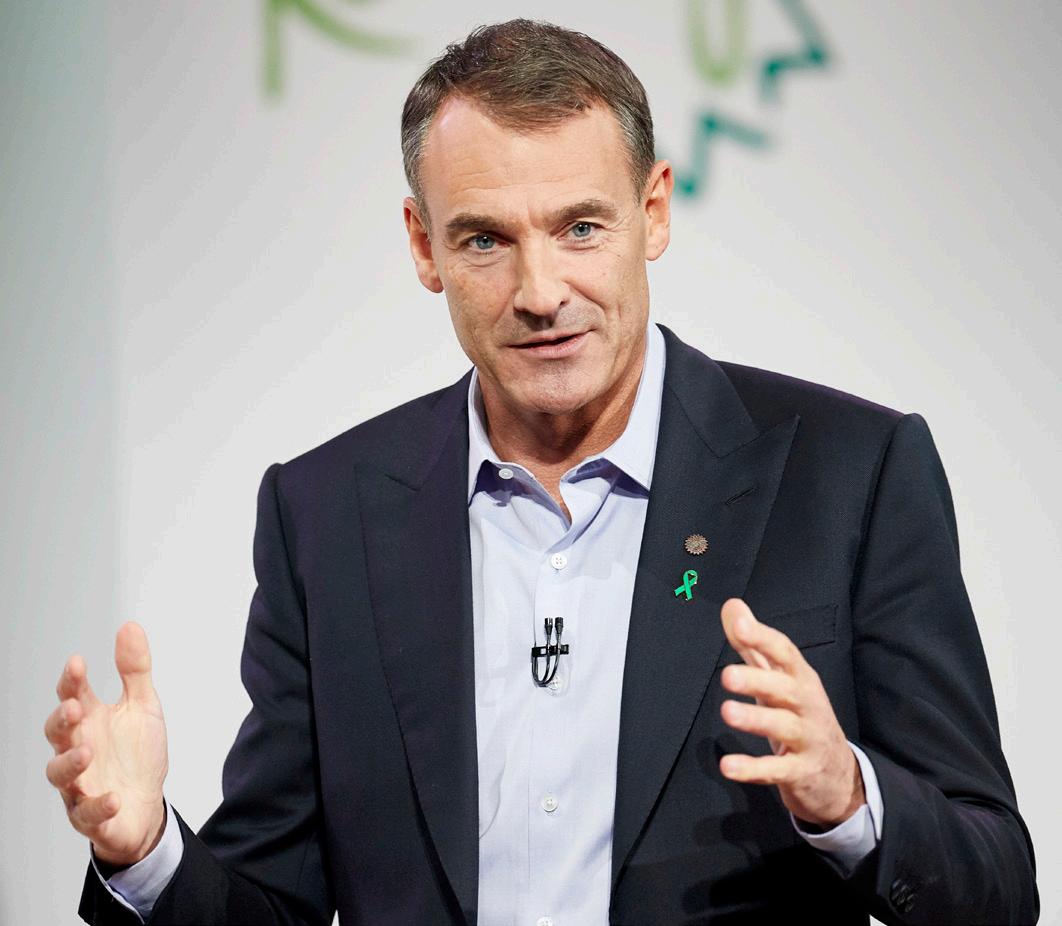
Business Leader - Inspire • Inform • Connect 55 UK’S BIGGEST EXPORTERS
Bernard Looney CEO, BP
Thierry Bolloré CEO, Jaguar Land Rover
Ivan Menezes CEO, Diageo
Noel Quinn CEO, HSBC


hsbc
NOEL QUINN
One of the UK’s four major clearing banks, HSBC was founded in Birmingham back in 1836. In addition to operating around 1800 sites in the UK, HSBC provides financial services to an international network of around 7,500 offices in over 80 countries and territories in Europe, the Asia-Pacific region, the Americas, the Middle East and Africa. HSBC is currently the second-largest bank in Europe and employs more than 226,059 people worldwide.
Sir Nigel Wilson CEO, Legal & General
legal & general
SIR NIGEL WILSON
Established in 1836, Legal & General is one of the UK’s leading financial services groups and a major global investor. Its products and services include investment management, lifetime mortgages, pensions, annuities, and life assurance. The financial powerhouse is headquartered in London but has operations in the USA along with investment management businesses throughout Europe, the Middle East and Asia. In 2021, international external net flows for their asset management arm stood at £29.5bn, constituting 85% of its total external net flows.
Kike Oniwinde Founder & CEO, BYP Network

trurating
GEORGINA NELSON
Founded in 2014, TruRating is an innovative, multichannel feedback solution utilised at checkout. It enables businesses to easily track how customers feel against how much they spend, thereby deepening their understanding of the consumer experience. Headquartered in London, many companies that use the platform are based in the US, such as Microsoft and Mastercard, although Shopify is another large international client of theirs. TruRating also has offices in Atlanta and Sydney and is always on the lookout for new talent across the globe.
WTW
CARL HESS
Formed in 2016 after a merger between London-based Willis Group Holdings plc and US-based Towers Watson & Co, WTW is the third-largest insurance broker in the world. Based in London, the firm offers professional consulting, support, and outsourcing services in the areas of insurance and reinsurance, pensions and retirement planning, health care insurance, technology, and risk management, and has more than 40,000 employees serving clients in more than 140 countries.
June/July 202256 TOP 32
Thierry Garnier CEO, Kingfisher plc
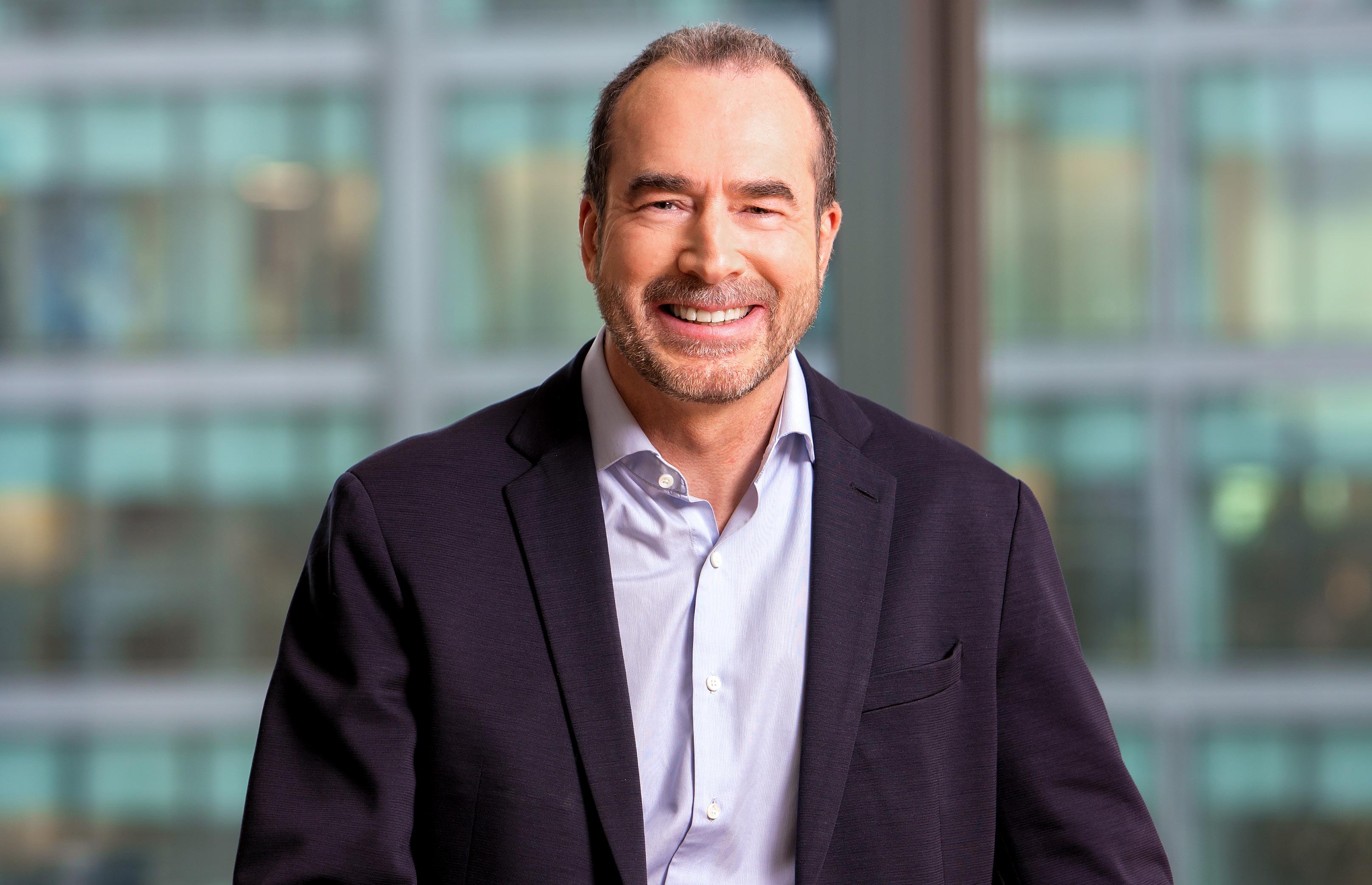
pickfords
MARK TAYLOR
Pickfords was established in 1646 and is the UK’s largest removals and storage company. The company has been helping people move home in the UK for generations, but also provides an international removals service to help people from all over the UK and Ireland move to any country across the globe. Pickfords is highly renowned for its global removals export service, as exemplified by the fact they’ve won ‘International Moving Company of the Year’ at the EMMAs for two years in a row.
kingfisher
THIERRY GARNIER
Kingfisher plc is an international home improvement company with over 1,470 stores in nine countries, supported by a team of 82,000 colleagues. The multinational retail giant, headquartered in London and founded in 1982, also has regional offices across France, Poland and Romania, whilst its brands include B&Q, Castorama, Brico Dépôt and Screwfix. For the most recent financial year, its statutory pre-tax profits were over £1bn and international revenues were dominated by France, where margins were up by 70 basis points and sales grew by over four percent to £4.5bn.
payara
STEVE MILLIDGE
Malvern-based Payara is a born-global software company that was founded after popular application server, Oracle GlassFish was dropped in 2014. 95% of their services are exported to 32 countries and the Payara Platform includes comprehensive commercial support options for development projects, inproduction support, and consultancy solutions. Recipients of the Queens Award for Enterprise in the International Trade category in 2021, Payara’s global customer base includes Japanese credit card provider Rakuten Card, Canadian telecoms giant Bell, and German logistics giant Hermes.
byp network
KIKE ONIWINDE
The BYP Network helps to connect ambitious future leaders with each other for networking purposes and with corporations for job opportunities. Working with more than 1,000 partners, which includes industry-leading brands like Google, TikTok and eBay, the platform has over 150,000 members located across five continents and 65 countries.
Business Leader - Inspire • Inform • Connect 57 UK’S BIGGEST EXPORTERS
how underinsurance can impact your business
Underinsurance can affect any organisation, and you may not know you are underinsured until you need to make a claim. Andy Ferguson, Managing Director at Gallagher in Bristol, outlines some of the key areas of commercial underinsurance.

Could your business afford to meet a substantial shortfall if an insurance payout turned out to be lower than expected? In many cases, underinsurance happens when valuations are out of date, roughly estimated, or incorrectly calculated. In the event of a claim on the policy, it could mean the claim amount exceeds the maximum limit that can be settled by the insurer—potentially leading to significant financial repercussions for your business.
Current market conditions and supply chain challenges have exacerbated the issue, and as your business continues to operate and evolve in these conditions, your insurance may need to keep pace.
Here are the key areas of underinsurance to watch out for:
PROPERTY: Letting your asset valuations become outdated and inaccurate could have negative implications for your cover. If your insurance doesn’t cover the total cost of rebuilding (the reinstatement value), and you needed to make a claim, you may not get the pay-out you were expecting, whatever the size of the claim.
STOCK AND CONTENTS: While it may seem sensible to select a cover amount you feel is appropriate, if it doesn’t accurately reflect the cost of replacing all your contents and stock on a new-for-old basis, this will count as underinsurance. Likewise, if supply chain issues have led you to stockpile some materials or components, your stock sum insured should reflect the increased value of materials you are holding.
PLANT, MACHINERY AND EQUIPMENT:

Even if your machinery is not the most up-to-date on the market, or if a certain piece of equipment is not frequently used, taking the ‘new for old’ approach will help to avoid underinsurance and limit business interruption should a machine break down or become damaged.
BUSINESS INTERRUPTION: A common insurance oversight for business interruption is that the period of cover selected to protect the business financially turns out to be far shorter than the actual period of disruption. It’s important to get a true picture of the time and resources your business needs to achieve pre-loss turnover levels. As the move to automation and digitalisation increases, for some business, it may take longer to replace key equipment, so this may need to be factored in.
CYBER LIABILITY: Cyber-attacks are everpresent, with 39% of businesses reporting
a cyber-attack in 2021 . Many companies may assume that cyber incidents will be covered under a standard business policy. This is unlikely to be the case, so specialist cyber insurance can be vital to help protect your data, finances and reputation— particularly as many employees are now working remotely, which can heighten your company’s cyber risk.
SUPPLY CHAIN: Without robust insurance, all it takes is a single supplier’s setback to collapse the remainder of your chain and cause serious financial issues. Organisations sometimes make the mistake of only naming tier-one suppliers in their business interruption policy, providing no insurance protection in the event of a catastrophe that occurs further down the chain.
The importance of an insurance review
Discovering you’re underinsured at the point of making a claim could be catastrophic for your business, so it’s important to have an independent professional carry out an audit of your valuations and insurance cover to help close any cover gaps and ensure you have adequate protection in place. If you have made significant changes to your property, assets, stock or business activities, or you think your coverage may be out of date, let your broker know straight away – don’t wait until renewal.
June/July 202258
ADVERTORIAL
www.ajg.com
Advertising so engaging you even read the small print Call 020 3096 0020 or email sales@businessleader.co.uk Let's chat through ideas
is international women’s day really making a difference for women in business?
March 8 marked International Women’s Day and signified a time to celebrate the successes of women around the world.
It also granted the opportunity to reflect upon the struggles of women throughout history and think about what needs to be done to end the subjugation of women and achieve gender equality.
The event is honoured in over 100 countries across the world and is celebrated by businesses of varying sizes and from many industries. Despite this, 2.4 billion women of working age are still not afforded equal economic opportunities and 178 countries have legal restrictions that prohibit women from full economic participation.
Additionally, women across the world still suffer disproportionately from domestic violence and rape, poverty, and objectification – as well as a myriad of other issues caused by the dominating patriarchal system.
So, is International Women’s Day really making a difference for women in the working world?
ANOTHER MARKETING PLOY?
When marginalised groups celebrate their progress, it often becomes commercialised. Every year, LGBTQ Pride Month sees many brands adopting pride awareness into every aspect of their marketing, especially in America. McDonalds, H&M and Nike have all created merchandise or incorporated the event into their brand.
The same is now taking place with International Women’s Day. This year, many women took to Instagram to express
their discontent with brands using the day to sell products. Cosmetics and fastfashion brands, in particular, adopted IWD-themed marketing content – one fast-fashion brand even handed out anti-spiking kits with an extra 10% off for International Women’s Day.
Of course, spreading the word of equality is a positive thing, but only if these brands are actually making an effort to make significant changes in their companies to be more inclusive and end discrimination
and unconscious bias. If not, adopting the event into your brand is simply taking advantage of the occasion, diluting the importance of its real ambitions.
Jacqueline Gold CBE
June/July 202260 FEATURE
Despite this, International Women’s Day is still incredibly significant in reminding us about the inequality women face in the private and public sphere, and many businesses do celebrate the event as a genuine attempt to bring to light these issues.
THE GENDER PAY GAP
The first recorded ‘women’s day’ took place in 1909 in New York. Since then, significant progress has been made towards achieving gender equality – in the UK women have gotten into government, gained control of their reproductive rights and have access to a greater variety of jobs. However, patriarchal ideals and values are so entrenched in the fabric of society that women still haven’t achieved complete emancipation, and a gap between what men and women are paid still exists.
Angelides
In a recent report by CIPD, it found that women are paid 90p to every £1 a man earns in the UK. EasyJet was one of the high-profile companies in the report, with women’s wages standing at just 36p for every £1 earned by a man at the business. Construction was the industry with the biggest gender pay gap, where women received 76p for every £1 earned by a man. The industries with the smallest pay gaps were health, social work, entertainment and transport.
According to the Scottish charity Close the Gap, there are three main causes for the gender pay gap. This includes occupational segregation - whereby women’s skills are being stereotyped, a lack of flexible working hours, and discrimination in pay systems.
“EMPLOYERS SHOULDN’T JUST REPORT THE NUMBERS. INSTEAD, THEY NEED TO UNDERSTAND THE REASON FOR ANY GAP AND BE TRANSPARENT ABOUT HOW THEY PLAN TO TACKLE IT.”
Charles Cotton
Charles Cotton, Senior Policy Adviser for Reward and Recognition with the CIPD, commented on the findings. He said: “Figures show that very little has changed when it comes to addressing the gender pay gap in Great Britain. Employers shouldn’t just report the numbers. Instead, they need to understand the reason for any gap and be transparent about how they plan to tackle it.”
Despite the wide gender pay gap, it has improved slightly –decreasing from 10.2% to 9.8% in 2021/2022 – a small step in the right direction.
MORE OPPORTUNITIES FOR WOMEN?
Over the pandemic, female jobs were negatively impacted as industries – such as hospitality and food services, populated primarily by women – experienced
higher levels of layoffs. This illustrates a significant issue around women’s skills being stereotyped and confined to certain sectors.
When it comes to funding female-led businesses, the odds are stacked against women. According to research, men are 86% more likely to achieve venture capital funding. Moreover, for every £1 of venture capital investment in the UK, on average all-male founder teams get 89p, mixedgender teams get 10p and all-female founder teams receive just 1p.
Clearly, when it comes to funding opportunities, barriers still stop female entrepreneurs from accessing the same opportunities as their male counterparts. Although flexible working has gained popularity as a result of the pandemic, benefitting many mothers, there still aren’t as many women in executive positions as men.
Despite this, there is a lot to feel positive about. Across the globe, the number of women on boards in companies has increased drastically, and in the US, there are 114% more female entrepreneurs than there were 20 years ago. The more women in positions of power the better – as women are likely to voice inequality, challenge bias, and tacitly act as role models to young girls.
When thinking of equality, it’s important to remember that ‘women’ are not a homogenous group. Inequality disproportionately impacts women based on a variety of other identity factors including race, class and sexual identity, age, and disability. For example, many women in executive positions are disproportionately white, and many have been able to attend university.
If the fight for female emancipation is considerate of the intersectional nature of the female experience, we can empower all kinds of women into positions of power.
We spoke to women in business to find out if they feel IWD is really making a difference and what more can be done to empower and progress women:
Business Leader - Inspire • Inform • Connect 61 IWD
Cont.
June
DO YOU FEEL INTERNATIONAL WOMEN’S DAY HAS MADE A DIFFERENCE IN IMPROVING EQUALITY?
Bukola Adisa, CEO and Founder of Career MasterClass, said: “I feel that it’s only a starting point to build from. It is a day that helps us amplify the narrative that women bring a lot to the table on multiple fronts, including in the business world.
“However, multiple data points show that there’s still a lot to be done in bridging the gender equality gap.
“We still have work to do on closing not only the overall gender pay gap but also working on the fact that black women especially are the least likely to be among the UK’s top earners.
“Although progress has been made on increasing female representation on top company boards, the number of CEOs has remained flat and investments from VC to female start-ups needs to be encouraged”.
Angelee Rathor, Managing Director of SevenTravel, said: “I personally think it’s great that International Women’s Day has made it into schools and the national curriculum to celebrate the achievements of women in arts, business, politics and all other fields. This enables the gender equality gap to be addressed in a positive way and shows how far women have come. Inspiring the younger generation of women inspires our future leaders”.
Tash Grossman, CEO and Co-founder of Slip, said: “I think the very fact IWD exists highlights the gender equality that we still face, and I don’t think the day itself makes a direct difference to gender equality. However, the day definitely does highlight a lot of the inequality that women face and can cause indirect action by organisations”
Shabri Lakhani, CEO of SalesWorks, said: “On a baseline level, I think the annual celebration of women has made a huge impact in reminding everyone that inequalities in the business world still very much exist. A lot of commitments and promises are made each year, but at the end of the day, actions speak louder than words and results even more so. I believe that to get to a place in business where gender and the topic of equality isn’t something that needs to be considered, the values, culture and processes of our working models need to be refined.
“In any company, it is everyone’s responsibility to keep gender bias top of mind and that true change can only come to fruition when both women and men come together to find a way that works for everyone”.
Riannon Palmer, CEO and Founder of Lem-uhn, said: “I think it’s impossible for one day to change thousands of years of misogyny and inequality. However, like any awareness day, it puts a light on the issues facing women to ensure it remains central to everyone’s focus, for a limited time at least”.
Hazel McShane, Co-founder of PEEQUAL : “Yes, by raising awareness. It isn't the answer to the problem, but it does get the ball rolling, changing the attitudes and narratives we see play out in the world. By giving women a day to be celebrated and raised up when they may have not previously been is really important, but of course, in an ideal world, we wouldn't need a day for that”.
Emily Keogh, Founder of Palm PR, said: “The day was launched over a century ago – at a time when the movement was urgently needed in the early movements of equality. As time passes, progress is made in some areas but the need to explore current, sometimes new, issues continue. For example, I like the fact that this year, there was a wider lens on ‘Break the Bias’, in a move to end prejudice, stereotypes and discrimination facing women. Refreshing the focus in this way helps tackle new problems and drives progress.”
WHAT MORE CAN BE DONE TO EMPOWER WOMEN IN BUSINESS?
Adisa said: “To quote a review of female entrepreneurship, ‘I firmly believe the disparity that exists between male and female entrepreneurs is unacceptable and holding the UK back’. We need to make access to capital for female startups easier. In UK venture finance, there are few people who are women in senior positions and many teams have no women at all and this needs to change.
“We need to make entrepreneurship more
accessible and increase support for women using mentors and sponsors at all stages of a female entrepreneur’s journey”
Rathor said: “In my experience, the main reason women do not feel empowered is a lack of confidence. It’s daunting to think of starting your own business and seeing your ideas become reality. Part of being an entrepreneur is about taking risks, but also calculating them. Empowerment comes from within but also from your support network and your mentors. I feel the government could do more to help support, as well as larger organisations, by running entrepreneur scholarships to help dreams become reality”.
Grossman said: “Levelling up the funding playing field is a no brainer, so running initiatives to ensure female-led businesses are prioritised in the investment deal flow is imperative. I think school education is also really important as children need to be exposed to female role models in business from an early age to understand that they too can have a successful career”.
Palmer said: “Personally, I think there needs to be significantly more representation of female
June/July 202262 FEATURE
Indra
Nooyi
entrepreneurs. Growing up, I didn’t see women in leadership roles and even when I started working it was mostly men at the top of companies. This led me to believe starting a company wasn't something I could achieve, but I'm so happy I took the leap. Female entrepreneurs, as well as women in general, are also often less confident in their abilities, which can lead their male counterparts to secure more opportunities such as funding, new business and growth opportunities. I believe this imbalance of confidence goes back to how young children are socialised.
“In 2003, Harvard Business School released a report revealing one of the major reasons that women are missing out on progressing in their careers is because girls are taught to put the needs of others above their own, leading women to underestimate their work abilities and not self-promote their skills. This study was conducted almost twenty years ago but the issues persist today. Young girls are still taught that being nice is one of the most important things, and women who
are ambitious are often seen as bossy, rude or not a team player. We need to transform the way we speak to young girls and teach all young people to be confident in their abilities and consider their own happiness”.
Lakhani said: “I’m a big believer that as women in business, we have a responsibility to empower, mentor and educate others to also achieve success. Helping others and lifting them up doesn’t take away from your own successes or achievements; there is enough abundance of creativity and intelligence to help the plethora of challenges the world needs solutions to”.
“I’M A BIG BELIEVER THAT AS WOMEN IN BUSINESS, WE HAVE A RESPONSIBILITY TO EMPOWER, MENTOR AND EDUCATE OTHERS TO ALSO ACHIEVE SUCCESS.”
Amber Probyn, Co-founder of PEEQUAL, said: “Training and awareness for the people in positions of power, be that teachers, bosses, investors, etc. Them having an understanding of the inequality that female entrepreneurs face will enable more support to be given/shown. It may also help them to see their own in-built bias. This will help female entrepreneurs go further in business and not come up against so many barriers”.
Keogh said: “As a parent, I recognize that one huge challenge is female entrepreneurs who are mothers. There’s just not enough done on a systemic level to bridge the gap in childcare. When schools finish at 3.30pm but the average working day doesn’t finish til 6pm, it is incredible that somehow parents are meant to juggle this seamlessly.
“It’s a huge problem that needs resolving, as it’s a massive loss of potential and capabilities. Providing affordable childcare is essential to keeping women in the workforce, and to leading businesses in the UK”.

Business Leader - Inspire • Inform • Connect 63 IWD
Shabri Lakhani
is blockchain the key to a sustainable future?
When most people hear the word blockchain, they tend to think of its most popular use: cryptocurrency. However, the capabilities of this technology are far from limited to crypto. So, with the rising importance of preserving the environment in recent years, there is an important question to ask of blockchain: is it the key to a sustainable future?

TACKLING DEFORESTATION
The effects of deforestation on the environment are devastating. According to the World Wildlife Fund (WWF), up to 15 billion trees are being cut down every year globally, whilst forest loss and damage is the cause of around 10% of global warming. Deforestation also results in the removal of natural habitats for a wealth of the planet’s wildlife. Therefore, the need to address it – and quick –is imperative.
FEATURE
“IF TIMBER IS LEGALLY GROWN – BEARING IN MIND, THERE IS $150BN OF FRAUD IN THE TIMBER INDUSTRY EVERY YEAR - THE FIRST CONCERN WILL BE WHETHER THE LAND THE TREES ARE GROWING ON IS LEGITIMATE.”
Dominic von Trotha Taylor
However, according to Dominic von Trotha Taylor, the CEO of iov42, a blockchaininspired platform that helps businesses digitally codify their processes whilst ensuring for regulatory compliance and security, one thing could be key to tackling deforestation.
He explains: “Blockchain is very skewed in everyone’s minds around crypto and currencies, and I think that’s just a big bubble of speculation. Most people are not using the current blockchain mechanisms for anything other than speculating on coins, so that’s not what I refer to as blockchain.
“There’s a whole new blockchain evolution called enterprise blockchain, which will be less based around coins. It will be more based around providing fantastic services that create greater efficiency, transparency, and trust. Then you don’t need all these big institutions that give us the trust because its already in the core technology.”
But how does enterprise blockchain work, particularly where tackling deforestation is concerned?
“If timber is legally grown – bearing in mind, there is $150bn of fraud in the timber industry every year - the first concern will be whether the land the trees are growing on is legitimate,” continues von Trotha Taylor. “We’ll know it is probably because local governments say it’s legitimate, but you might also want to know that the people working there are getting paid a fair wage, for example. We can put all that on our blockchain and start to trust that.
“Before we existed, a certification agency likely went there and checked to see if the logs came from that area and whatever else, before exporting companies would get a shipping bill of sales. But now, the people working in the lumber mill can put the data onto the blockchain themselves. We ensure it’s not rubbish they’re inputting too because we’re able to track the identity of everyone who interacts with the spreadsheet. So, if something goes wrong, we can go back to each person individually.
“A company like IKEA, for example, would want to know that they’ve sourced wood
that has been grown in the right place and that is true to what it says, so they can tell a consumer where the table they’ve bought has come from and that it’s legitimate. Enterprise blockchain makes this possible.”

Whilst enterprise blockchain might not cover all forms of illegal deforestation, by making supply chains more transparent for legitimate companies, it’s possible to make them more sustainable. And as customers become more eco-conscious, such transparency might become essential for them to operate in the future.
“THOSE OF US WORKING IN CRYPTOCURRENCY AND BLOCKCHAIN MUST ACKNOWLEDGE THAT THEY, LIKE MANY INDUSTRIES, IMPACT THE ENVIRONMENT. IGNORING THAT IS UNACCEPTABLE AND NEGLIGENT.”
Brendan Beeken
DIGITAL’S CARBON FOOTPRINT
Timber is not the only industry where sustainability could be improved thanks to a more transparent supply chain. However, blockchain is a form of digital technology and digital technologies are responsible for a significant total of global emissions.
According to a 2019 study by the Shift Project, the world’s collective digital carbon footprint accounted for nearly 3.7 percent of all greenhouse emissions. This is comparable to emission levels from the aviation industry. The energy consumption from digital technologies also increased by almost 70% between 2013 and 2020, and with the pandemic accelerating the shift to digital for many industries, the amount of energy being consumed is only going to increase.
So, if blockchain continues to increase in popularity, this energy consumption will only increase, and unless the electricity required to power blockchain comes from sustainable sources, the amount of fossil fuels being consumed will increase too.
Brendan Beeken, Founder and Chairman of cryptocurrency trading platform Moni Talks, acknowledges the environmental impact of blockchain.
He comments: “Those of us working in cryptocurrency and blockchain must acknowledge that they, like many industries, impact the environment. Ignoring that is unacceptable and negligent. We should all be trying harder to find more sustainable ways of working. Within blockchain and cryptocurrency, that is happening.
“For some people, using blockchain technology, such as smart contracts, is seen as a step towards environmental responsibility as it reduces the use and waste of physical materials, like paper. That is, for me, too simplistic and ignores the elephant in the room. We should, absolutely, accept our environmental responsibilities, acknowledge the negative impact on climate change elements of blockchain technology have, and develop solutions.”
So, is the industry doing anything to reduce its carbon footprint?
“An obvious example, perhaps, is the use of Proof of Stake as a more energyefficient consensus than Proof of Work, but that doesn’t do enough,” continues Beeken. “So-called ‘green’ smart contracts are another example. If you think it can take thousands of nodes to execute a smart contract, the environmental issue is obvious.
“What green smart contracts propose is storing the smart contracts on the blockchain but using just one node to execute them. You input the information to trigger a transaction, pointing at the specific node running this contract, and that node calculates and outputs the transaction for consensus. This removes the involvement of the full network in complex computations.
Plus, to function, blockchain technology uses computers that are designed to continuously perform micro calculations. In April 2021, the Ethereum blockchain, where most NFTs are currently stored, was consuming 33 terawatt hours of electricity, which is the same amount as the whole of Serbia. Cont.
BLOCKCHAIN AND SUSTAINABILITY
FEATURE
“Of course, there are issues of trust to consider, but mitigation is being developed and the energy-saving benefits of using a single node to execute a smart contract are clear.
“A further example is the Terrapass coin (TPSC). It is an ERC-20 token, stored and sent using Polygon, which runs on the Ethereum blockchain. It was launched last year by Terrapass, a leading carbon offset business. In essence, you, or your business, measure your carbon footprint, buy a metric ton of carbon offsets and receive a TPSC. The money you spend goes into verified projects to combat climate change. You can then hold your TPSC, trade, gift, or if you prefer, use it to buy further carbon offsets.”
According to von Trotha Taylor, iov42 are taking steps to mitigate their impact on the environment too.
He explains: “If you read about some of the first-generation technologies like Bitcoin, you’ll know that individuals are mining on laptops all around the world, which is very inefficient. So, we believe, particularly with dealing with governments and organisations, that we should be using existing infrastructure to help be more efficient. Therefore, we operate out of data centres, using classic data centre technology to scale up quickly.”
A SECURE - AS WELL AS SUSTAINABLEFUTURE?
As the world becomes increasingly digitalised, sustainability is not the only consideration on people’s minds. With so many companies keeping digital records of its users, protecting personal information is paramount for lots of people and Beeken thinks blockchain will have an important role to play here.

He comments: “Cryptocurrency is, perhaps, the most well-known use of blockchain, but the technology offers so much more.
“We are already familiar with smart contracts and the arrival of NFTs, creating a landscape for digital artists. But for me, the most exciting future use of blockchain is in securing personal information and identity. Protecting your own and other people’s data is essential, especially in sectors like healthcare and finance.
We have seen what happens when data is handled carelessly, stolen, or lost. Jurisdictions have attempted to protect
people through legislation, such as Europe-wide GDPR, but blockchain could be a solution that actually works.
“There is also massive potential for straight-through processing (STP) to utilise blockchain to work even more efficiently and securely.”
Von Trotha Taylor concurs: “Today, we don’t really have control of our medical data, for example, but I think all that is going to flip over time and consumers will be in complete control of their own data, whether it’s medical or payments data, or whatever else. Blockchain will facilitate all those sorts of things and I think that’s exciting.”
Blockchain’s ability to create transparency and trust certainly provides an opportunity to create a more sustainable future. However, blockchain companies will need to find ways to offset the carbon footprint of what is currently an energy-intensive technology in order to fully realise its true environmental benefits.

“WE ARE ALREADY FAMILIAR WITH SMART CONTRACTS AND THE ARRIVAL OF NFTS, CREATING A LANDSCAPE FOR DIGITAL ARTISTS. BUT FOR ME, THE MOST EXCITING FUTURE USE OF BLOCKCHAIN IS IN SECURING PERSONAL INFORMATION AND IDENTITY.” Brenden Beeken





By Your Side. On Your Side. www.thomaswestcott.co.uk For more information contact us Tel: 01392 288555 exeter@thomaswestcott.co.uk As you navigate the obstacles and opportunities that lie ahead, having a trusted business advisor on your side is more important than ever.
POWERING
BOARDS















































Chris pointed out that delegating in this way creates a more empowered culture — a team of teams — which helps an organisation to become more nimble, adapt faster to changing situations and get the best out of its people. “This approach also means that the leadership team has the space to do more strategic work and look ahead to what’s coming next,” he said.
Adarsh Mantravadi added that the experience of the pandemic has likely forced organisations to prioritise agile decision-making more than ever before. “I think a lot of leadership teams have realised that their business needs to be adaptable and responsive to changing circumstances,” he said. “This approach can be helped by the
investments you make in technology and other areas to help your team move your organisation forward.”




































































HOW IMPORTANT IS BOARD COMPOSITION AND DIVERSITY?







The panel agreed that the composition of the board is critical and pointed out the advantages of having a diverse board — an aspiration that many organisations are working hard to deliver on. “To make a board more effective, you need to ensure you have the right people around the table, and that you’re efficient in leveraging the time and expertise of your directors,” said Adarsh. He commented that technologies like board management software can help organisations reach a broader range of potential directors and board members.
Gary expressed the view that diversity has come a long way from the days when it was little more than a ‘box-ticking’ exercise, as companies start to realise that “having diversity of thought in your board makes you attached to your customers better, gives you further insight, and helps you outpace your competitors.”







Further, Gary said that hiring non-executive directors is an opportunity to diversify the board by bringing in people who are prepared to be assertive and to challenge established thoughts and views. Jordan agreed, saying that as a co-founder and CMO, she needs to “be aware of what my strengths and weaknesses are, and where I need to plug those gaps.”
HOW CAN ORGANISATIONS DEVELOP THEIR LEADERS?
























The panel went on to discuss how organisations coach and build leaders. Saima pointed out that when a new leader is (inevitably) doing a role they’ve never done before, “you have to allow them to develop and learn, and have that space to grow and be able to do different things in a different context.”
Jordan brought the topic of building leadership back to board diversity, describing having people on the board with a variety of experiences as “the best development that I’ve ever had as a business person. You can pay coaches and go on courses, but when you’re in the thick of it, working with people that have had different experiences from all over business has been the best for me.”
Pursuing the theme of leadership development, Chris talked about organisational leadership. Traditionally, leadership training has been provided to individuals as they move up through an organisation, but his organisation takes a different tack: “We tend to focus much more on organisational leadership,” he said. “For us, teaching and educating leadership right across the whole organisation is really important — focusing on behaviours, decision-making, and information flows.”
Business Leader - Inspire • Inform • Connect 69 LEADERSHIP
EXTRAORDINARY
SETTING THE STANDARD FOR
WHAT
ORGANISATIONS
CAN ACHIEVE
T: 0203 8072317 | E: enquire@onboardmeetings.com | www.onboardmeetings.com
“I
THINK A
LOT OF
LEADERSHIP TEAMS
HAVE
REALISED
THAT THEIR BUSINESS NEEDS TO BE
ADAPTABLE AND
RESPONSIVE TO CHANGING
CIRCUMSTANCES.
THIS APPROACH CAN BE
HELPED BY
THE
INVESTMENTS YOU MAKE IN
TECHNOLOGY
AND OTHER
AREAS.”
Adarsh Mantravadi
“YOU HAVE TO ALLOW THEM TO DEVELOP AND LEARN, AND HAVE THAT SPACE TO GROW AND BE ABLE TO DO DIFFERENT THINGS IN A DIFFERENT CONTEXT.”
Dr. Saima Rana
Watch the debate here
it takes a remarkable amount of practice and skill to be able to maintain that consistency under pressure
HOW DOES THAT KIND OF MINDSET DIFFERENTIATE FROM AN OUTSIDE IN MINDSET?
In a recent episode of The Business Leader Podcast, we sat down with Olympic mental performance coach Charlie Unwin. Unwin was an athlete and platoon commander in Iraq before becoming a mental performance coach for various GB Olympic teams. He is also a speaker and has recently released a book: ‘Inside Out: Train Your Mind and Nerve Like A Champion’, where he shares how anyone can programme their mind to achieve their full potential.
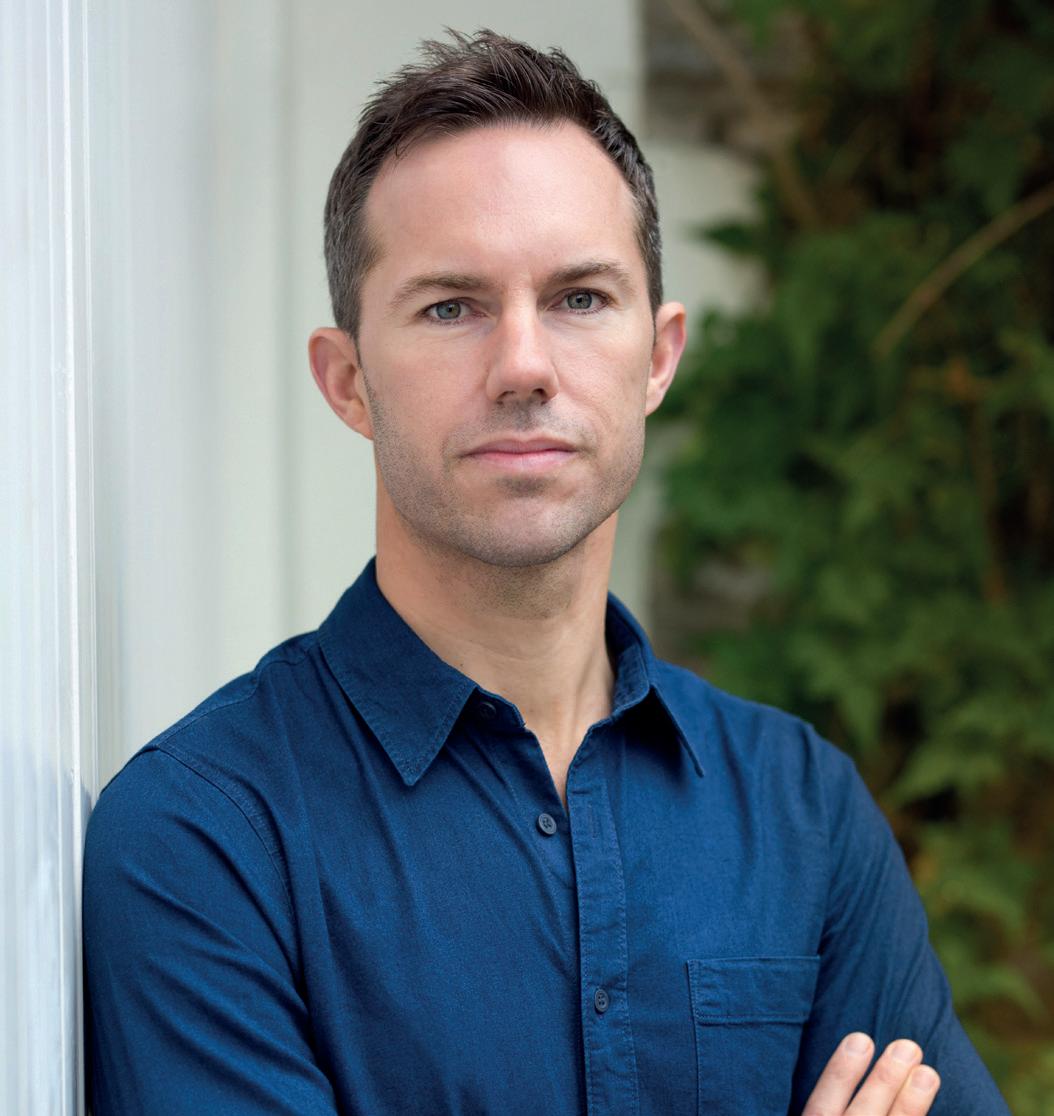
YOUR NEW BOOK ‘INSIDE OUT: TRAIN YOUR MIND AND NERVE LIKE A CHAMPION’ HAS RECENTLY BEEN RELEASED. WHAT IS AN INSIDE OUT MINDSET?
An Inside Out mindset is something that I think we all start with, certainly as kids, where we focus on the mastery of what we do to get good at something without being shackled or hindered by the outcome or an expectation for how good we should be.
Of course, as we move through our careers, or we start to achieve great results, we become far more aware of how the outside world sees us. The temptation becomes that we focus more on being able to protect our reputation. For example, we expect certain results or metrics if we’re in a sales team and as a result, we become preoccupied with those metrics, and it starts to dilute and take away from the quality of focus that we have on our inputs – the mastery that made us good in the first place.
The Outside In mindset is summed up by people who are gifted at what they do, or who find achieving an outcome relatively easy. They never have to apply themselves to the same efforts once they have achieved their goal. This is where I think we have to be cautious about how we use the term ‘talents’, and who we call ‘talented’. Because talent has a nasty way of protecting the talented from the urge to self-improve.
DO THESE IDEAS ALIGN WITH MINDFULNESS?
Of course, our physiology is immensely powerful. It’s the cornerstone of what thoughts present themselves into our consciousness in the first place. How we’re feeling and the sensory experience of the situation that we’re in will depend on how our brain effectively brings thoughts to consciousness, and sometimes you don’t feel in control of that. Certainly, when it comes to physiology, it’s a kind of alien world to a lot of people in business.
Meditation has become universally popular, even now on television there’s Wim Hof’s programme about submerging ourselves into cold water and being able to maintain control. That’s something which I call the development of the challengeresponse, as opposed to the fight-or-flight response. So, it’s about becoming much more aware of how our physiology drives our thoughts, which then drives our behaviours — this is something that I feel really passionate about.
IS MINDFULNESS OR BUDDHISM A PART OF YOUR LIFE IN ANY WAY AND HOW WERE YOU INTRODUCED TO IT?
They are a part of my life and they probably became a part of my life without me realising. I was in the army for eight years
June/July 202270
INTERVIEW
where they train you brilliantly to be able to stay very calm and think correctly in very high-pressure situations. So, ‘applied mindfulness’ is something I came across then. I also competed in sports and modern pentathlon and was on the British team for several years. I did target shooting as a sport, which is what we call a closed-loop sport. In other words, it is dependent on the repetition of what you do to get the same outcome.
It takes a remarkable amount of practice and skill to be able to maintain that consistency under pressure. I found myself doing what we call ‘dry firing’. I would practice the process of firing the perfect shots, saying to myself “calm, control, sights”. I even had specific exercises that made each one of those words create a very powerful sensation. So, “calm” was total relaxation, “control” was a feeling of being able to bring the pistol down onto the targets with total utter control as if I was being supported, and “sights” just allowed me to focus on the sights themselves, which is very important.
I realised that through training in the kitchen, rather than on the range, I was going through this very repetitive meditative process, and I would come out of that with my mind being completely clear and in a very different state from how I’d started. It was only in doing that, and almost ignoring the results, not having the outcome to
worry about to distract me from that process, that I started to perform a lot better in competition.
I started to get the best results I’d ever achieved. I took that very seriously and have now applied that to other areas of my life.
IS SOCIAL MEDIA STOPPING US FROM HAVING AN INSIDE OUT MINDSET?
In short, yes. I do worry a lot about social media and its impact. In some ways, social media doesn’t have a place if you’re a purist in high performance because it encourages a degree of self-editing that takes you away from the flow and your process.
Self-editing is highly detrimental to ‘flow’ when we look at what’s going on in the brain. ‘Flow states’ — which are peak performance states — achieve a complete ‘shutting off’ when we experience self-editing and self-questioning.
But it requires high degrees of focus on a process or ‘applied positive focus’ on what we are trying to do. To be in a ‘flow state’ requires an appropriate level of challenge. So, we have to feel challenged by what it is that we’re trying to do. Too much challenge and this causes our working memory to become overwhelmed. It floods and we go into more of a survival state, so that’s not good.
Social media has very little benefit. It does, of course, have huge benefits for being able to promote what we do.
Business Leader - Inspire • Inform • Connect 71
Cont.
CHARLIE UNWIN
Listen to the interview here
“MEDITATION HAS BECOME UNIVERSALLY POPULAR, EVEN NOW ON TELEVISION THERE’S WIM HOF’S PROGRAMME ABOUT SUBMERGING OURSELVES INTO COLD WATER AND BEING ABLE TO MAINTAIN CONTROL.”
HOW IMPORTANT IS SELF-TALK AND OUR RELATIONSHIP WITH OURSELVES IN THIS?
Self-talk is the sort of dialogue that we have going on inside our heads and we tend to become more aware of our self-talk at points of high pressure, where it can become more negative or more damning.
That’s just a function of the emotional centres and limbic system in our brain becoming more activated, and more sensitive to threats. It’s like a radar looking for things to worry about.
Self-talk is going on all the time in our minds, but we tend to only notice it when it becomes quite negative because then it shouts a little bit louder as well. We must become more aware of our self-talk all the time, rather than necessarily at the point at which it starts to affect us.
IS THE WAY WE UNDERSTAND THE CAPACITY OF OUR MINDS CHANGING?
Visualisation is a concept that is now fairly universal. We cannot expect to perform at our best without first having visualised in our mind what it is exactly that we want to achieve. More than that, visualisation helps us to regulate our emotions more effectively because it emotionally prepares us for the eventualities of what might happen.
With a sport like skeleton, where you’re going down a mountain headfirst on ice at 90 miles an hour, you can’t do that more than twice a day — your body won’t allow it. So, we use visualisation as a way of accelerating every experience that we had, and being able to get better through mental training rather than just physical training. But this is a universal principle, right? This is something that we can all benefit from.
CAN VISUALISATION BE AS EFFECTIVE AS REAL-LIFE PRACTICE?
Studies in basketball have shown this. They took an elite basketball team and split them into three groups. The goal for each of the three groups was the same – they had two weeks to enhance their free-throwing skills from the penalty spots.
One group was allowed to practice as they normally would – so physical practice as much as they wanted to. While one group was only allowed to practice mentally – so they had guided visualisation that allowed them to execute the perfect shots every time but in their head. The final group was a control group: they didn’t do any practice.
The group who visualised scored significantly better results at the end of those two weeks and they performed better than the group who physically practiced over those two weeks.
WHY IS IT IMPORTANT TO APPROACH ADVERSITY WITH A ‘CHALLENGE RESPONSE’?
Stress isn’t a bad thing. Stress is a very important thing for the human condition and human performance. I think we associate stress with negative fear and panic anxiety – that would be what we would call distress. But there is also euphoric stress, which is excitement about what we’re doing. Having a challenge-response trains us to feel excitement more than fear towards what we’re doing.
Now, to do that, we have to be able to fundamentally pull the levers of control that exist within us. By that, I mean practicing breathing, managing our physiology, managing our muscular tension, and managing our focus.
IS THERE A PARTICULAR STORY OR PERSON FROM YOUR YEARS AS A MENTAL PERFORMANCE COACH THAT STANDS OUT?
I suppose Lizzy Yarnold as an athlete always stood out in the sport of skeleton because she went through her own real roller coaster journey, and I talk a lot about her experience in the book.
In our first meeting together, I asked a question I ask many Olympic athletes: “Why does it mean so much for you to win a gold medal?”
She turned it straight back at me and said: “Well, why does it mean so much for you, for me to win a gold medal?” I didn’t know how to answer that and I kind of realised that in these performance environments, we are all susceptible to the same emotions and the same pressures, we all take our job very seriously. I learned a lot from this group.
HOW CAN OUR READERS TURN NEGATIVE THINGS INTO POSITIVE MOTIVATION?
Failure and success are two sides of the same coin. One requires the other, they are totally interdependent on one another. So, there’s a little bit of a mindset shift here that has to occur.
Successes are normally littered with many failures and many successes. Being able to break our performance down into things that are far more tangible and more controllable is a positive.
Focus on the small things that you can commit to and start to derive a sense of satisfaction and pride from doing those small things well, knowing that ultimately, that will lead to better things. So, my question back to you is: “How can you better measure incremental improvements?”

June/July 202272
INTERVIEW CHARLIE UNWIN
TO THE P INT. NO NONSENSE APPROACH.
We could use this advert to tell you how good we think we are.
We could tell you that we are friendly, fair and forward-thinking. That we’re transparent and trustworthy.
We could… But with client reviews like this on the shelf, our accountancy expertise speaks for itself.
albertgoodman.co.uk
IS RETAILER FULFILMENT AND DELIVERY PERFORMANCE KEEPING UP WITH SALES GROWTH?
It’s been over two years since the start of the pandemic, and one thing that we can deduce is that consumer shopping behaviour has changed for good. For retailers, the challenge with this shift is in identifying whether consumers’ appetite for even more ecommerce purchases will continue as the pandemic subsides.
While ecommerce demand has increased, the quality of the end-to-end buying experience has been mixed. Consumers are now far more sophisticated and demanding, and when it comes to what constitutes a good experience, one size does not fit all. Expectations vary greatly, influenced by product value and age group, even nationality, and they extend across the entire buying experience, from purchase through delivery to unboxing and returns.
TOP LEVEL FINDINGS
Online buying continues to grow
48% of the overall respondents say they will make more purchases and deliveries in the future – up 2% from today and 13% pre-pandemic.
Environmental concerns influence buyer behavior
85% of those aged 18-24, and 75% of 25 to 34 year olds consider the environment when placing an order.
It’s all about convenience
Online purchase and delivery is all about convenience (54%) for consumers but even greater for those 55+ (64%).
Delivery is not good enough
Three out of four consumers experienced delivery problems in the last three months.
Retailers, therefore, are needing to address new hurdles, including fast emerging delivery personas, millennials’ concerns regarding the environment, and the over 55s’ desire for convenience. Retailers are aware of the impact on delivery performance created by driver shortages, but how many are considering the long-term implications for brand value and future customer loyalty?
CONSUMERS ACCELERATE ONLINE BUYING HABITS AND REGAINING CONTROL

According to Descartes latest research, well over half (56%) of consumers have increased the number of online purchases with deliveries they made since the pandemic – and for women, that number is 60%. This sustained change in behaviour has transformed the online to in-store purchase ratio.
Because of this, one of the biggest challenges for retailers is retaining control over the experience, especially when compelled by shortages to rely on multiple delivery modes and companies. In the end, most consumers are immune to the retailer’s choice of delivery service, whether outsourced or executed with inhouse fleets. What they expect is a consistent delivery experience and retailers need to match the service of their delivery options with the expectations of their customers. This is why, for example, some luxury retailers have created their own micro-parcel delivery services in select markets for high value clothing, jewellery, household and other items to ensure a high level of delivery service as part of their overall customer experience and brand value reinforcement strategies.
All retailers need to consider what customers now expect as standard, irrespective of product value, and then build on that delivery experience to meet specific needs. Certainly, current delivery status information is essential. However, the occasional status update is no longer good enough; individuals expect realtime tracking, exception alerting and accurate ETAs.
Best in class retailers are now using tracking communication to build greater customer engagement, adding product and service
June/July 202274 ADVERTORIAL
recommendations that are complementary to the current order to drive up cross- and up-selling opportunities.
CONSIDERING THE ENVIRONMENT
According to our research, almost a quarter (24%) of all consumers will think twice about ordering groceries online due to the environmental impact, and 20% restaurant food. For retailers, consumers’ growing green expectations is not just one more pressure in an already challenging market – this is a real opportunity.

For example, a growing number of retailers are offering their customers environmentally friendly delivery options. This is because some “green” options are not only beneficial to the environment, but also to the retailer’s bottom line because they drive delivery density which reduces the distance travelled to make deliveries, costs and carbon footprint at the same time.
Retailers and delivery companies are also beginning to explore the use of bike couriers and electric vehicles, especially within urban areas with congestion charges and clean air zones. With the ability to model parameters and assess the carbon footprint of the chosen delivery model, retailers can start to tell a positive green story to the consumer base – one that compares the carbon footprint of an efficient, optimised home delivery to the miles each customer would have to travel to buy and collect the goods from a local town or city.
FUTURE-GAZING IS NOT WITHOUT ITS CHALLENGES
The research shows that, overall, ecommerce and home delivery is a positive story, but with clear warnings for retailers. For example, home delivery performance has plateaued in the last two years, while consumer expectations for it have not. Regular delivery failures are fatiguing consumers and they are making future purchase choices based upon current retailer home delivery performance.
The delivery capacity crunch, combined with increased complexity and concern over environmental impact, means retailers must rethink their delivery strategies. This requires a
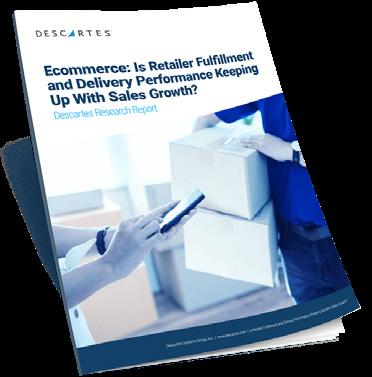
Expectations vary
Customer expectations vary – security (32%), proof of delivery (30%) and tracking (27%) are all more important for the most expensive items; cost of delivery (23%) more important for lower cost goods.
Poor delivery damages consumers’ perceptions
23% of consumers have not ordered from the retailer again, 21% lost trust in the retailer and 16% told friend and families to avoid the retalier due to a poor delivery experience.
unifying technology strategy that helps to ensure consistent execution and delivery visibility for the customer. Retailers should consider this as an opportunity to engage consumers, while simultaneously helping the environment and reducing the cost of home delivery.
Now is the time for home delivery performance to be placed on equal footing with retailers’ other critical strategies for growth and improved financial performance.
Business Leader - Inspire • Inform • Connect 75
DESCARTES Download your copy of the Home Delivery Research paper. routinguk.descartes.com/research
BUSINESSFASTLEADER
THE CATALYST FOR CATALYX – HOW THEY BECAME
ONE OF EUROPE’S FASTEST-GROWING COMPANIES
In each edition of Business Leader Magazine, we profile a UK business that is experiencing exponential growth in a feature called Fast Track. This time, we spoke to London-based global marketing strategy consultancy, Catalyx.
Founded in 2012 by CEO Guy White, in each of the past three years, Catalyx has grown by 50% on average, whilst their revenue has more than doubled over the same period. Such rapid growth has seen the company become one of the fastest emerging disruptors in the insight industry and be named as one of Europe’s fastest-growing companies by the Financial Times for three years in a row. Since 2021, the company has increased its headcount by 25% and despite already operating in Geneva, London, Sofia, Chicago and Cincinatti, continues to expand internationally.
THE BIRTH OF CATALYX
Before creating Catalyx, White worked for one of the world’s leading consumer goods corporations and it was here that ideas for a different type of consultancy began to take shape.
White comments: “I was a client-side marketer at Procter and Gamble and as a client-side marketer, the ideal engagement from your agencies, specifically research
and insight agencies, was to be able to get clear recommendations for how I can grow my business from a consumer perspective.
“I felt that I was getting a lot of data and not necessarily much strategic direction or insight. So, as a marketer versus a researcher, I wanted to have an agency that could not only give me the voice of the consumer to help me design my products, but also tell me what they would do if they were in my shoes and bring that voice of the consumer into the business in a strategic way. And because I wasn’t getting it from any of the agencies we were working with, I thought ‘let’s see if there’s a gap in the market to do that’.
“Then when I left P&G and really started investigating this, I found the industry largely split. Companies were either qualitative or quantitative, but clients don’t necessarily want this split and consumers who are performing research have no clue about it. So, the starting point for Catalyx
was creating an agency that was all about giving the best possible strategic recommendation without really realising this split existed and that I felt was right for the end client versus being able to get different data sets.”
CONSUMER ACTIVATION SYSTEM™
This split in the industry was the catalyst for Catalyx and the company spent years researching the best ways to utilise quantitative and qualitative data techniques. This led to the creation of Catalyx’s flagship product, the Consumer Activation System™, which has been integral to the company’s rapid growth.
White explains: “The Consumer Activation System™ was the germ of an idea from about four years ago, although it was built upon 10 years’ worth of experience. At the starting point of the company, I got really interested in crowdsourcing, the
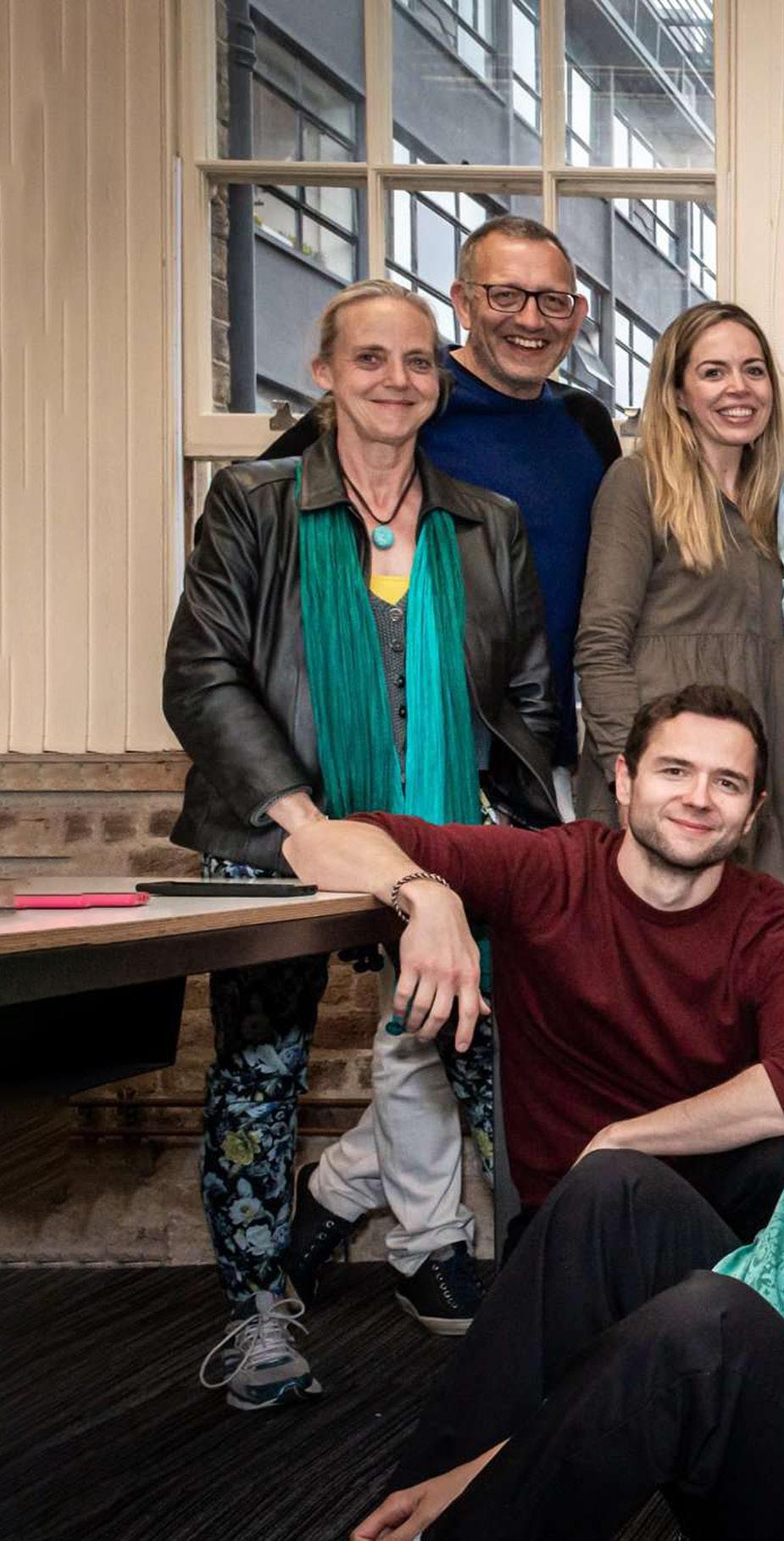
June/July 202276 FAST TRACK
TRACK
idea that the wisdom of a large group of independent and diverse people is always going to give you a more accurate understanding of human behaviour than the group of experts who are talking on their behalf, or a small group just talking to consumers through one lens.
and codify this data. We spent the first five or six years doing a lot of bespoke research on this, but we recognised that if we wanted to scale properly, we needed to find a method or system to do that and that’s where we started to come up with what has now become the Consumer Activation System™.”
Their flagship product has allowed Catalyx to work with 75% of the world’s top Fast-Moving Consumer Goods (FMCG) companies. So, what is about the Consumer Activation System™ that has helped them to become such a disruptive force?
traditionally used to give data for or was done in silos and we’ve created a model that allows us to capture a more holistic view of the consumer and blend that data together to create a much more accurate picture of what consumer behaviours tend
CREATING SUCCESS
Whilst the introduction of the Consumer Activation System™ has certainly aided their growth, it’s not the only reason for Catalyx’s success. As White explains, the pandemic – of all things – proved hugely beneficial for the company.
He continues: “I can’t underestimate the effect of Covid on predominantly onlineled research companies like ourselves. All of our work is enabled through accessing consumers remotely. We do a lot of offline work in terms of getting consumers to take videos and images of their lives and how they engage with the product, but we don’t physically visit them. So, when Covid happened, companies that were reticent to try this online-first approach suddenly had no other option.
“So, a lot of clients, who were maybe a bit nervous about that, suddenly dusted down our business card, gave us a go, and found that there are enormous benefits from this
Although a shift to online might have prompted more people to try their services, this wouldn’t have been much use if Catalyx was unable to deliver for their clients. However, delivering for their clients is something the company prides itself on.
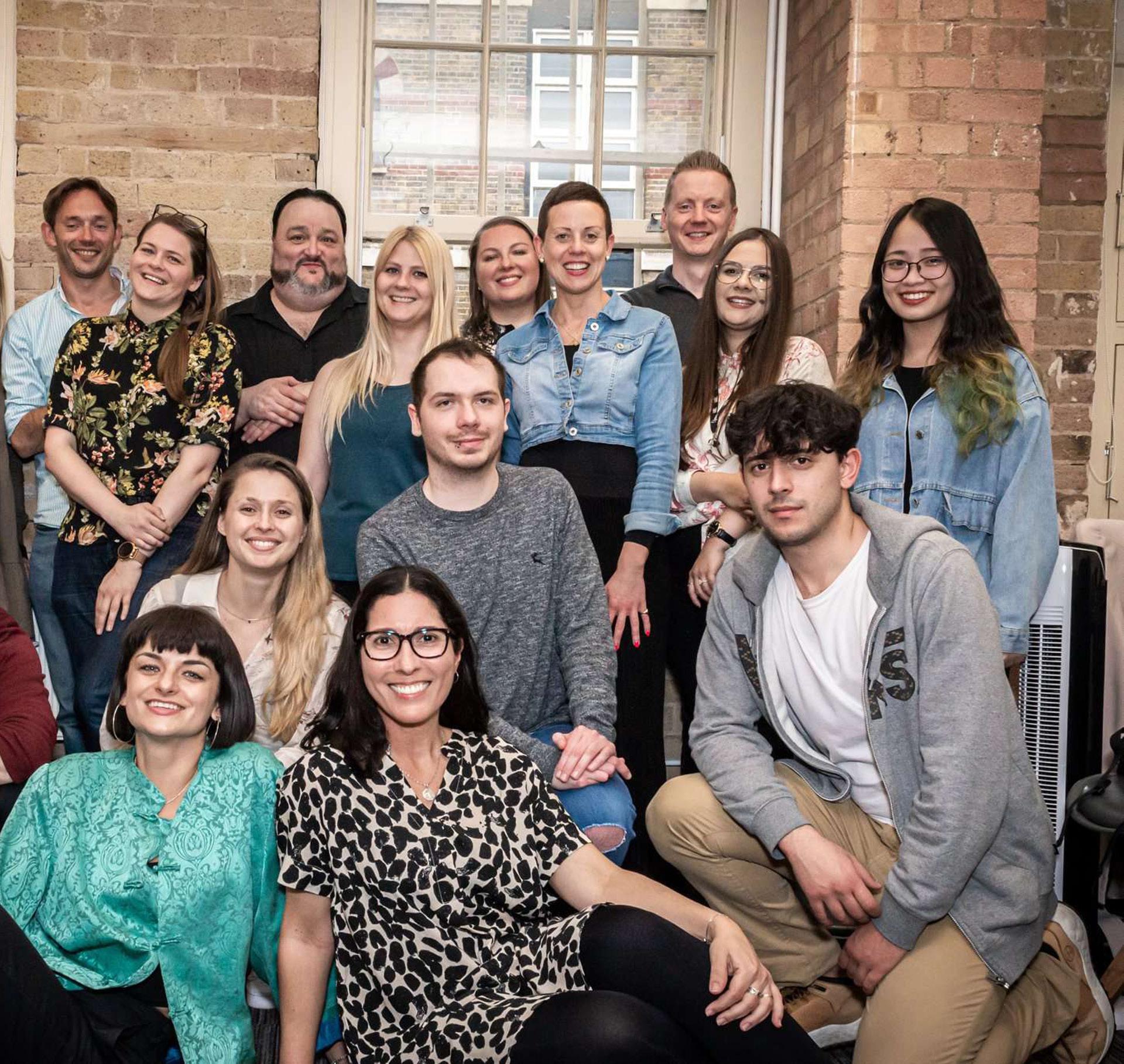
White explains: “As a company, we are very focused on saying to a client ‘if you work with us, you will walk away with two or three things’. This could be a better product, better innovation, and a strategy that unlocks more growth. That’s what we promise, and then we talk about how we’ll do it.
“So, we started crowdsourcing with groups of 200 people or so and then used quantitative techniques, such as evaluation type modelling, to process
“In one sentence, we’re able to do highly complex research that gives you answers to build your business very quickly and very cost effectively,” continues White. “We’ve looked at what used to take months to do and was only done at small scale, we’ve looked at what you
“I think that the way we are so forthright in the promise that we give our clients and then, obviously, we deliver and follow through, has given an assuredness and a trust when working with Catalyx along with a perceived usefulness. Rather than just going and getting data, we see getting data as the first step, so ultimately, the reason you’re spending money to work with us is because we’re going to give you something that’s going to unlock more growth.”
Business Leader - Inspire • Inform • Connect 77 CATALYX
Cont.
“AS A COMPANY, WE ARE VERY FOCUSED ON SAYING TO A CLIENT ‘IF YOU WORK WITH US, YOU WILL WALK AWAY WITH TWO OR THREE THINGS’.”
Guy White
THE CHALLENGE OF GROWTH
It hasn’t always been plain sailing for Catalyx over the past few years and one challenge has proved particularly difficult for White to overcome.
He comments: “I would say the biggest challenge that we faced was growth itself. A good rule of thumb for a business like us is every year to 18 months, you’re going to have to disrupt and change your business model in some respects because for a 10, 20 or 50-person company, the model, organisational structure, processes and products that you’re going to continue to be able to scale are going to be different. So, being able to continue to evolve and then embed that into the organisation in a way that people accept is incredibly difficult.
“I once heard a wonderful quote that resonated with me: ‘Building a business is like designing a new aeroplane while flying the current one’ and that’s exactly how I feel. Interestingly, I think that gets a little bit easier the bigger you get because as you get bigger, you can have certain people driving the current world and others designing the future.”
As a global research agency, the supply chain issues affecting many of the UK’s businesses have not proved so directly problematic to Catalyx. However, as their client base is predominately made up of fast-moving consumer goods companies, the ongoing shortages have meant Catalyx has experienced some knock-on effects.
White explains: “We work with food companies that are affected by the supply chain issues caused by the Ukraine crisis. We also had clients affected by the paper products shortages during the pandemic. That affects us because it changes the business questions that our clients want solving. For instance, if you think about snack consumption during Covid and say everyone’s at home eating biscuits, our clients might want to know is that a trend or will it reverse once they’re back in the office.
“So, this means we need to have our finger on the pulse to understand what could be affecting our clients so that we can go out to them, take thought leadership and know what we’re talking about when it comes to their supply chain issues.”
IMPORTANCE OF A GOOD TEAM
Continuously delivering for clients would
not be possible without a great team and White cites his as the biggest reason for the company’s success. In the era of the Great Resignation, White has also managed to successfully navigate the difficulties of attracting and retaining talent that have plagued so many companies.
He continues: “We have something we call the Culture Crowd, which can be described as an employee-led team of people working from the bottom up that are able to say what’s important, what works and what doesn’t. They can then go away and implement things that are important to them, rather than leadership or management trying to force culture down, which just does not work, in my opinion. So, we think quite deeply about how we can empower and enable people to engage in ways that link them together.
“There’s also what we call the happy, healthy, hybrid working. In a hybrid working situation, you have to think carefully about how you can create the stickiness that ultimately creates a culture and a company. We think really carefully about the product, we offer the vision and the mission, and we consider how we can make it worthwhile for our team when they’re in the office.
“I ONCE HEARD A WONDERFUL QUOTE THAT RESONATED WITH ME: ‘BUILDING A BUSINESS IS LIKE DESIGNING A NEW AEROPLANE WHILE FLYING THE CURRENT ONE’ AND THAT’S EXACTLY HOW I FEEL.”
He comments: “Finding great people and inspiring them to invest their time and lives into Catalyx is an absolute joy but also really tough because you’re asking people to invest an awful lot of themselves in a small business, rather than taking the safe option with a big business. So, continuing to make sure we have great people, which we do and I’m so proud of our team, is difficult.

“If you’re in desperate need of someone, it’s very easy to take the first person that comes along, but waiting and making sure you get the great person is always the best option. It can be very tempting, and I’ve certainly made that mistake in the past, but right now we have a wonderful team and I think that’s probably the main part of our success.”
White also believes that two key initiatives have helped Catalyx to keep their hybrid working team in place.
“So, in the office, it’s about training, development, going out and letting your hair down with your employees, meeting your manager and teamwork, rather than coming into the office, sitting behind a computer and doing what you could just do at home.”
FUTURE PLANS
Thanks to its unique product offering, hardworking and happy team of hybrid workers, and partly aided by the shift to online resulting from the pandemic, Catalyx could well be set for further growth soon.
They’ve recently innovated their product to deliver against a clear outcome benefit, that allows people to track in-market success, build better strategy, optimise innovation and communication. These run through the Consumer Activation System™ and will be launched in all countries.
White concludes: “We’re looking to increasingly build an outcome benefitdriven systemised approach that allows us to process complex, mixed-method data quickly to solve for the bigger problems, to enable recommendations that unlock growth, because that’s what we feel is the hardest thing to do in the industry. That’s why there’s a big gap right now, and why we believe this is where the next focus should be.”
June/July 202278
FAST TRACK CATALYX

PUSHING THE BOUNDARIES CREATING EVENTS EST 1986 We are delighted to sponsor and produce the Business Leader Awards www.soundscommercial.co.uk | info@soundscommercial.co.uk | 0117 9355 255
IPOs on the horizon

2021 was a record year for IPOs globally: there were 2,682 IPOs raising $608bn (£498bn). However, the war in Ukraine and the resulting political and economic uncertainty has meant IPO activity in 2022 has not reached the same heights just yet. In Q1 2022, IPOs raised $56.1bn, whilst IPO issuance in Europe totalled €2.7bn (£2.2bn) from 28 IPOs compared to €23.1bn (£19.6bn) from 89 IPOs in Q1 2021. Some of the notable IPOs in 2022 include JE Cleantech Holdings, Var Energi, and Technoprobe SpA.
Business Leader has profiled four upcoming launches that could happen in the remainder of 2022.
Stripe
Founded in 2010 by brothers John and Patrick Collison, Stripe started out in a small Dublin office and has grown to become one of the biggest names in financial services. The company now has more than 4,000 employees across the globe, taking over $7.5bn per year in revenue. After their most recent funding round, Stripe’s valuation has risen to nearly $95bn. They are yet to go public, although they’ve long been tipped to do so. If 2022 is the year where Stripe finally goes public, it could be one of the biggest IPOs of all time.
BrewDog
Multinational brewery and pub chain BrewDog was founded in 2007 by James Watt and Martin Dickie. The Ellon-based company has averaged annual sales growth of 57% over the past decade and is on course to sell around 400 million cans this year. BrewDog has long promised a float to its 200,000 or so shareholders, which were brought on board via several crowdfunding rounds, but in January of this year, Chief Executive James Watt finally confirmed plans for a stock market listing. Law firm Freshfields has been appointed to help them prepare.
Jaguar Land Rover
Selling more than one car every minute, Jaguar Land Rover is the UK’s largest vehicle manufacturer. Jaguar was purchased by Indian automotive giant Tata Motors from Ford in 2008 and employs nearly 40,000 people globally, but a widespread shortage of semiconductors saw a net loss of £150m for parent company Tata in Q4 2021. Tata has described the semiconductor supply situation as “improving gradually”, whilst rumours of a potential public listing, which could help recoup some of those losses, have been ongoing for some time.
Instacart
Instacart, the San Francisco-based grocery delivery chain that employs 10,000 people, recently disclosed that it has submitted a draft registration statement with the US Securities and Exchange Commission (SEC) pursuant to an initial public offering. Founded in 2012, the company doubled its sales in 2020, whilst its most recent funding round took its valuation to around $39bn. Instacart slashed its own valuation to nearly $24bn to adapt to challenging market conditions, but this could soon rise again with their IPO on the horizon.
IPO ROUND-UP

TO GET INVOLVED WITH THE 2023 GO:TECH AWARDS, CONTACT SPONSORSHIP@BUSINESSLEADER.CO.UK CONGRATULATIONS TO OUR WINNERS
The first truly joined-up approach to
safety, and wellbeing for
employee health,
SMEs BT201 • Flexible health, safety and wellbeing solutions tailored to your needs • Unique tools to benchmark your organisation • Access to industry leading HR, health, safety and wellbeing tools • Advice and support from industry experts to help you every step of the way. Helps you build a healthy, profitable, and sustainable future for your company. Sign up now: www.beingwelltogether.org support@beingwelltogether.org T. +44 (0)20 8600 1054






































































































































 Emma Walmsley CEO, GSK
Emma Walmsley CEO, GSK





 Jakob Stausholm CEO, Rio Tinto Group
Jakob Stausholm CEO, Rio Tinto Group






























































































